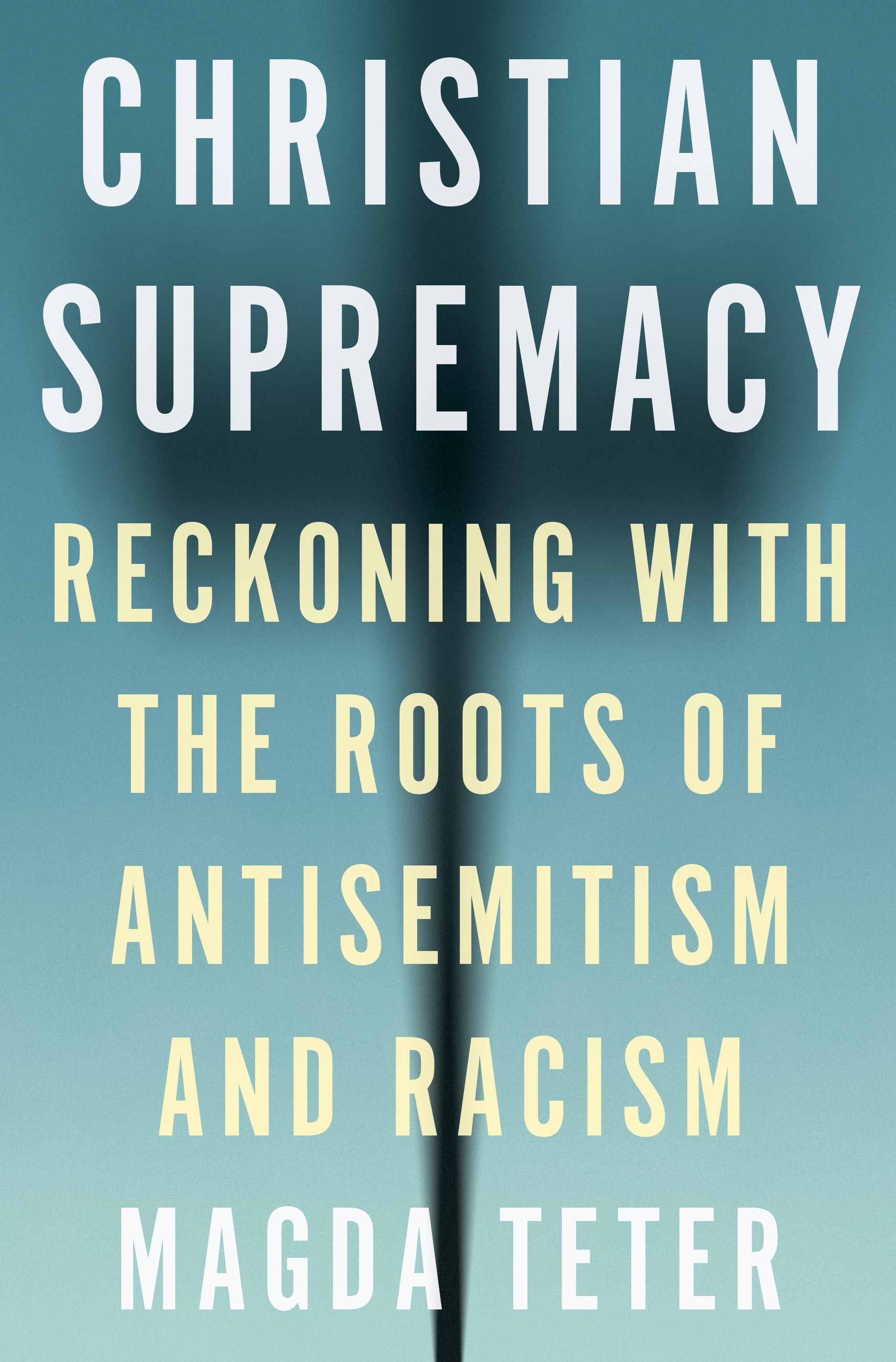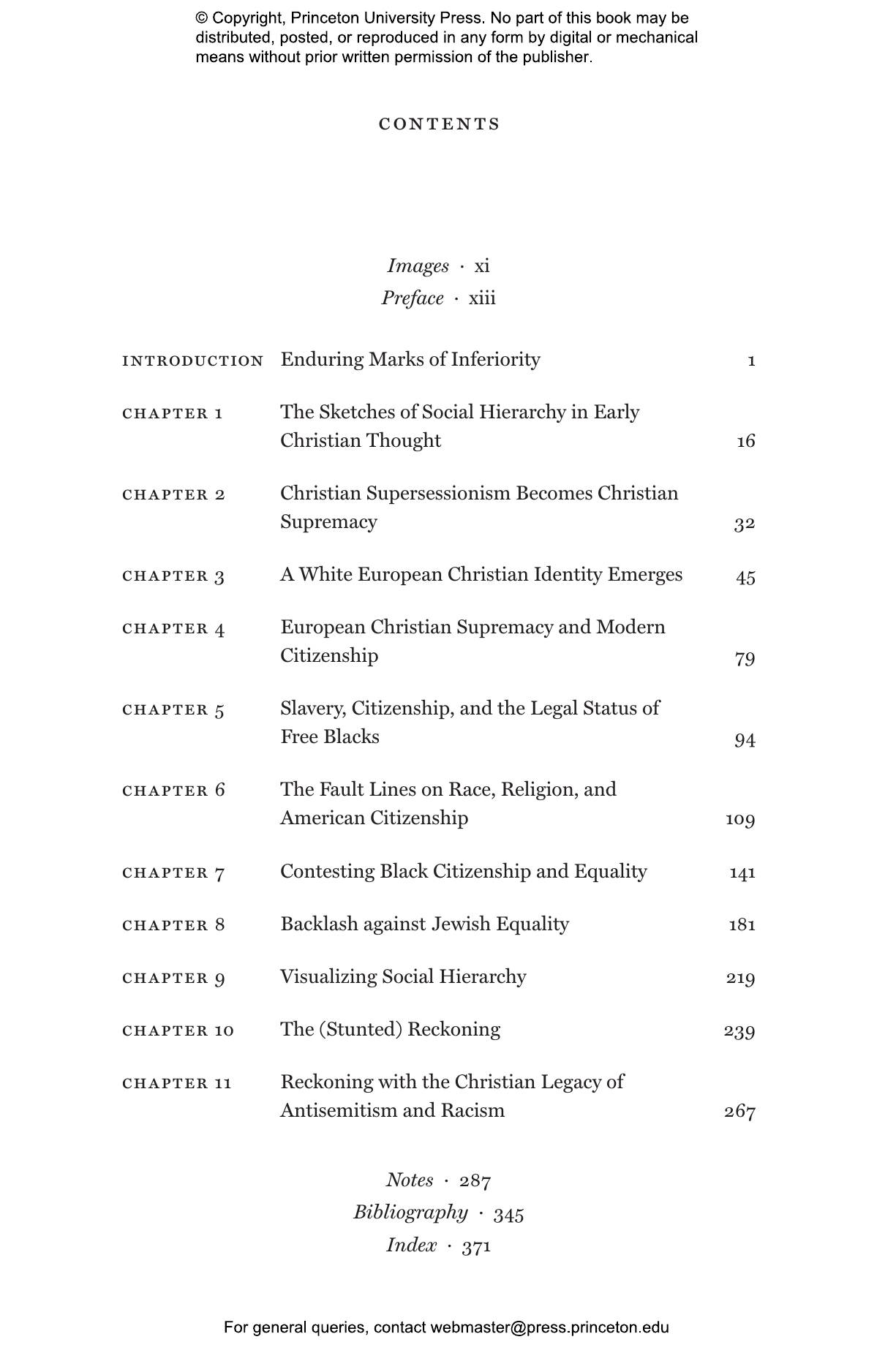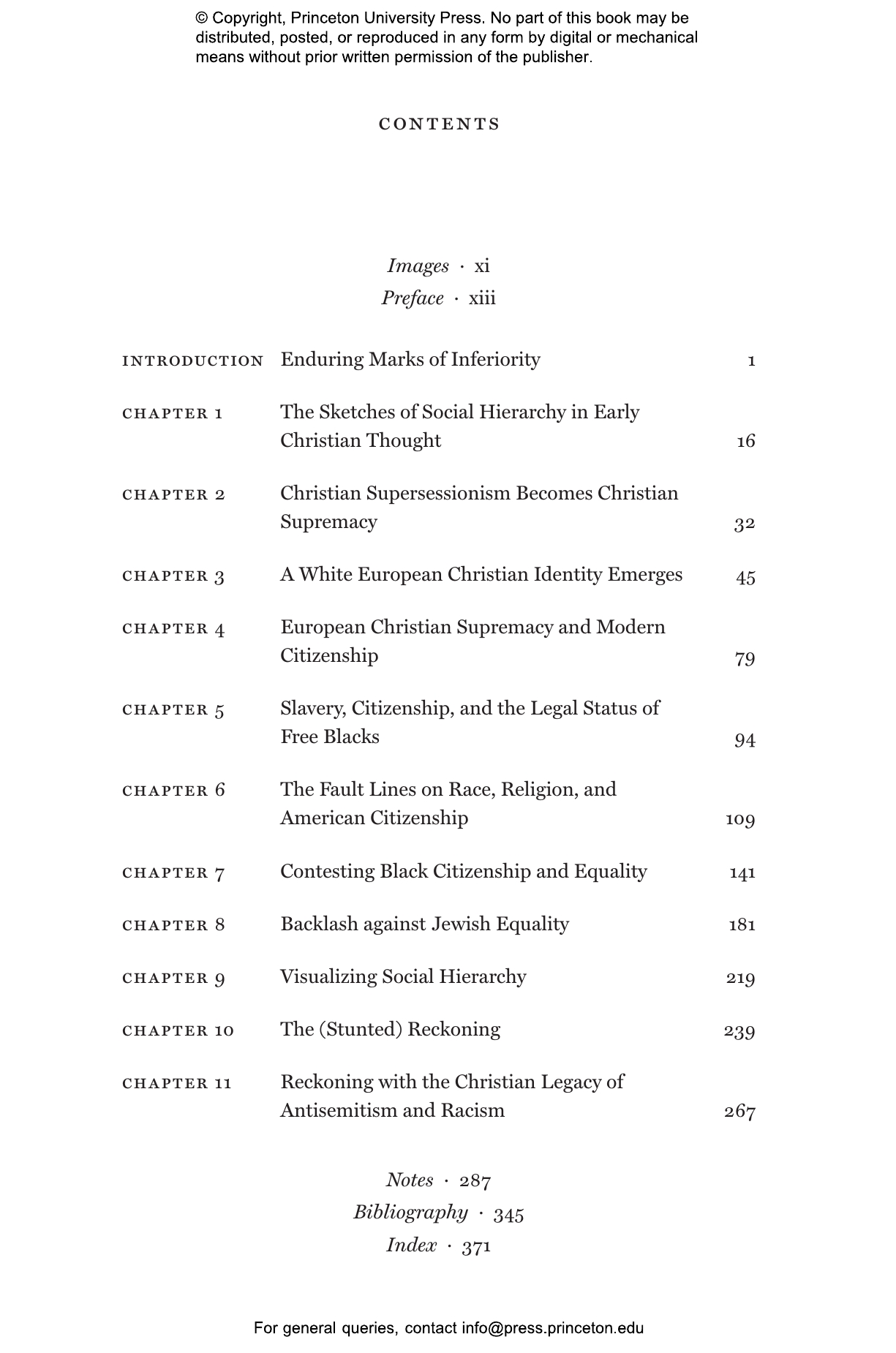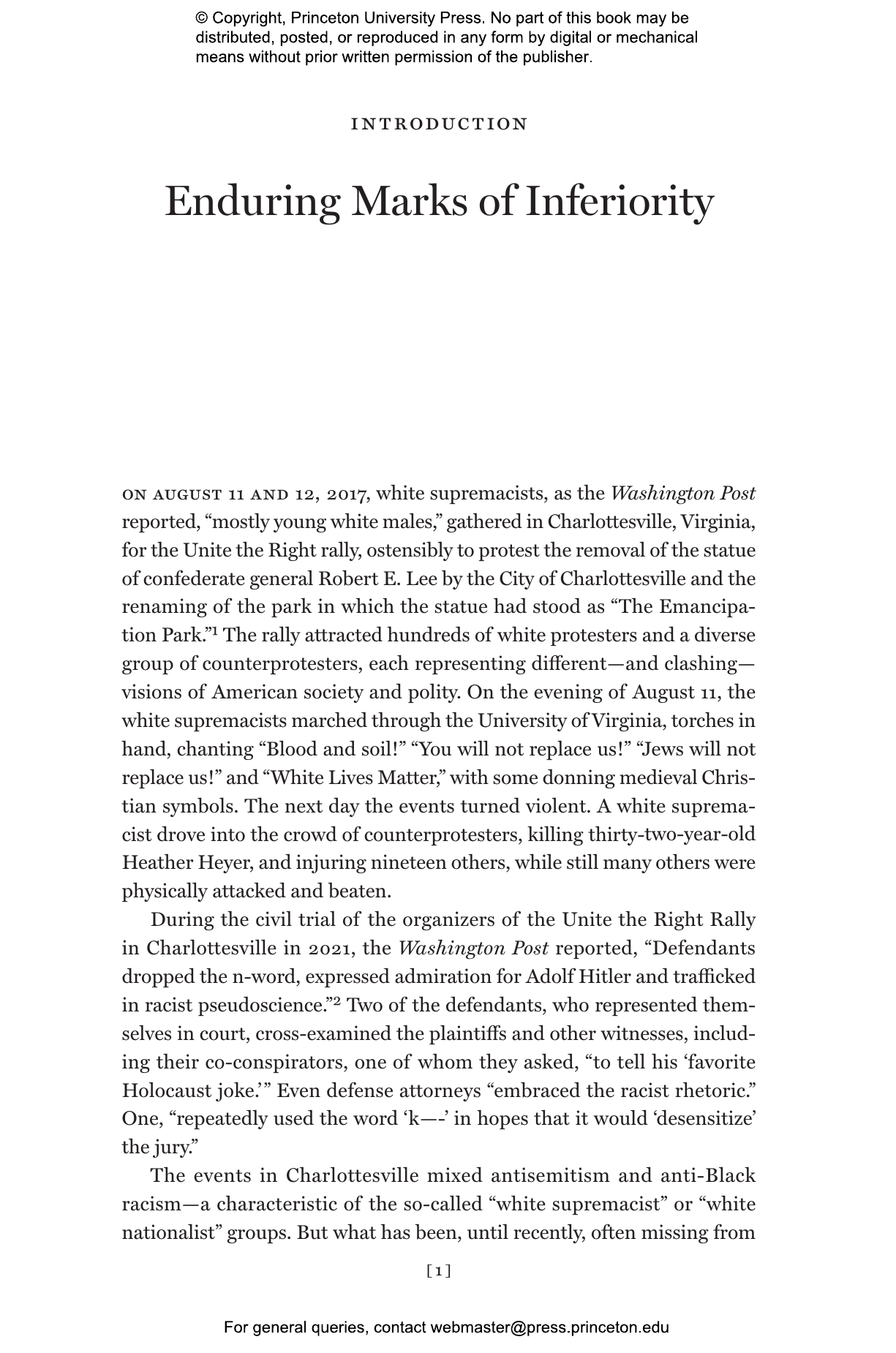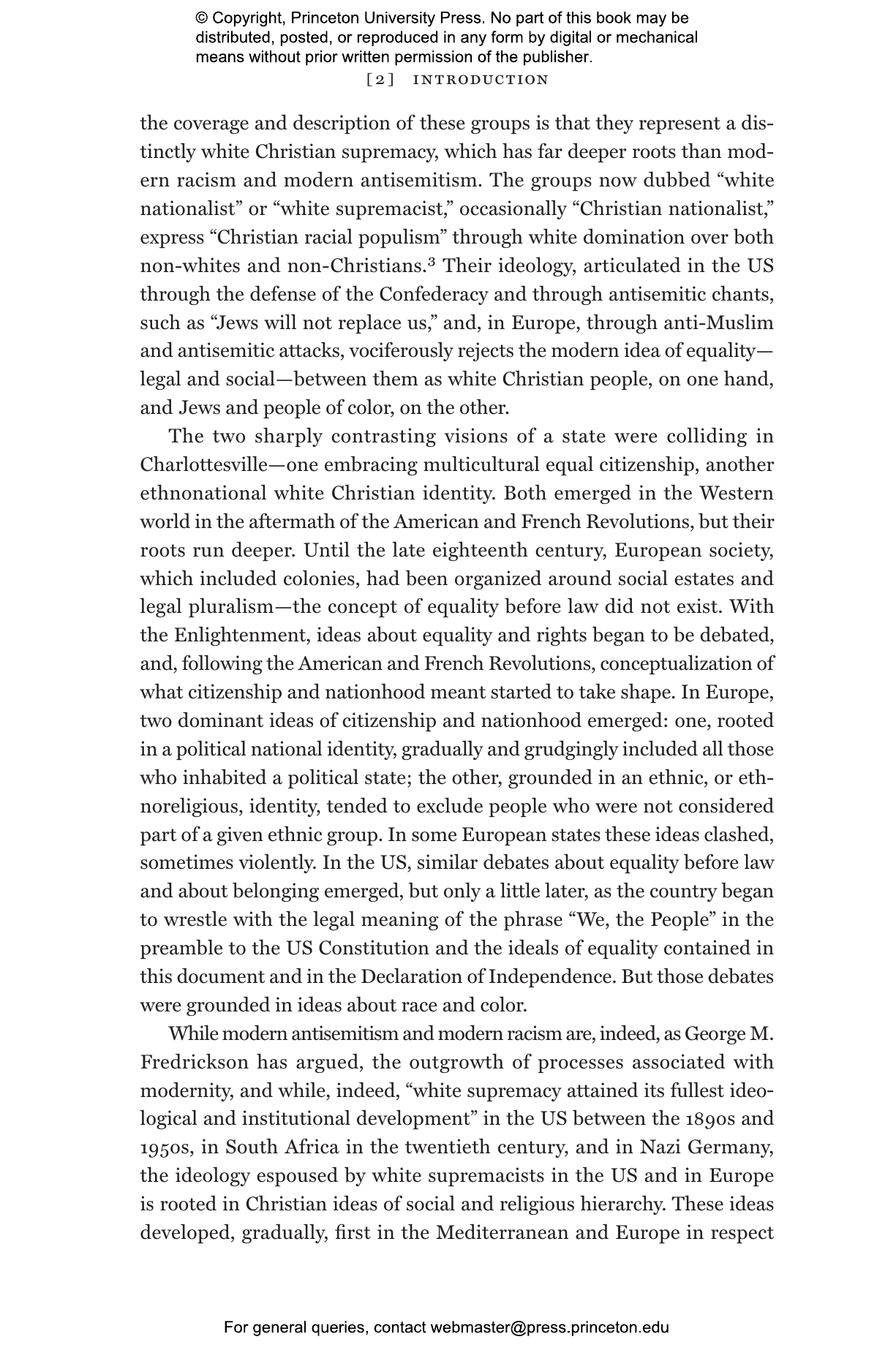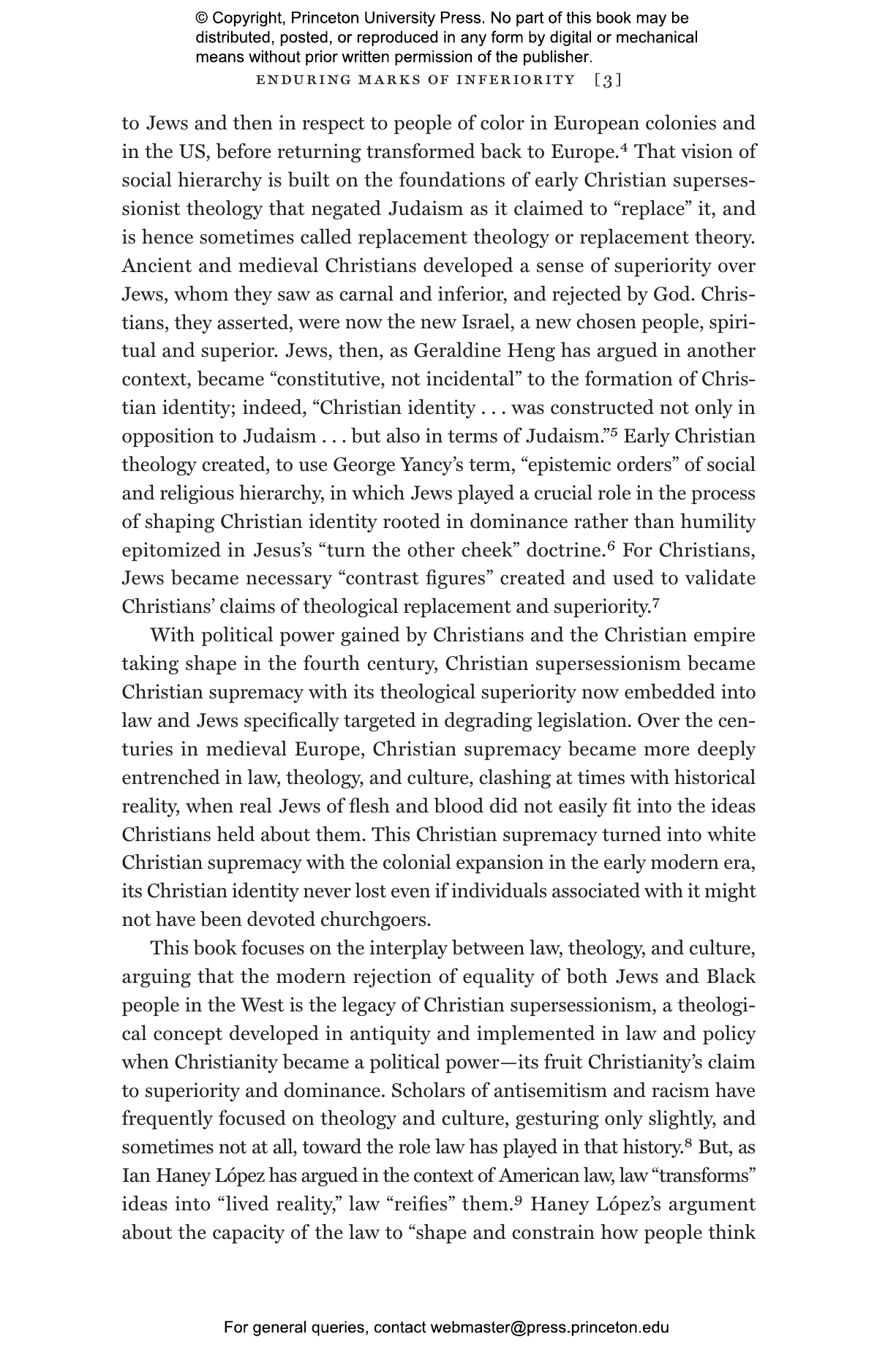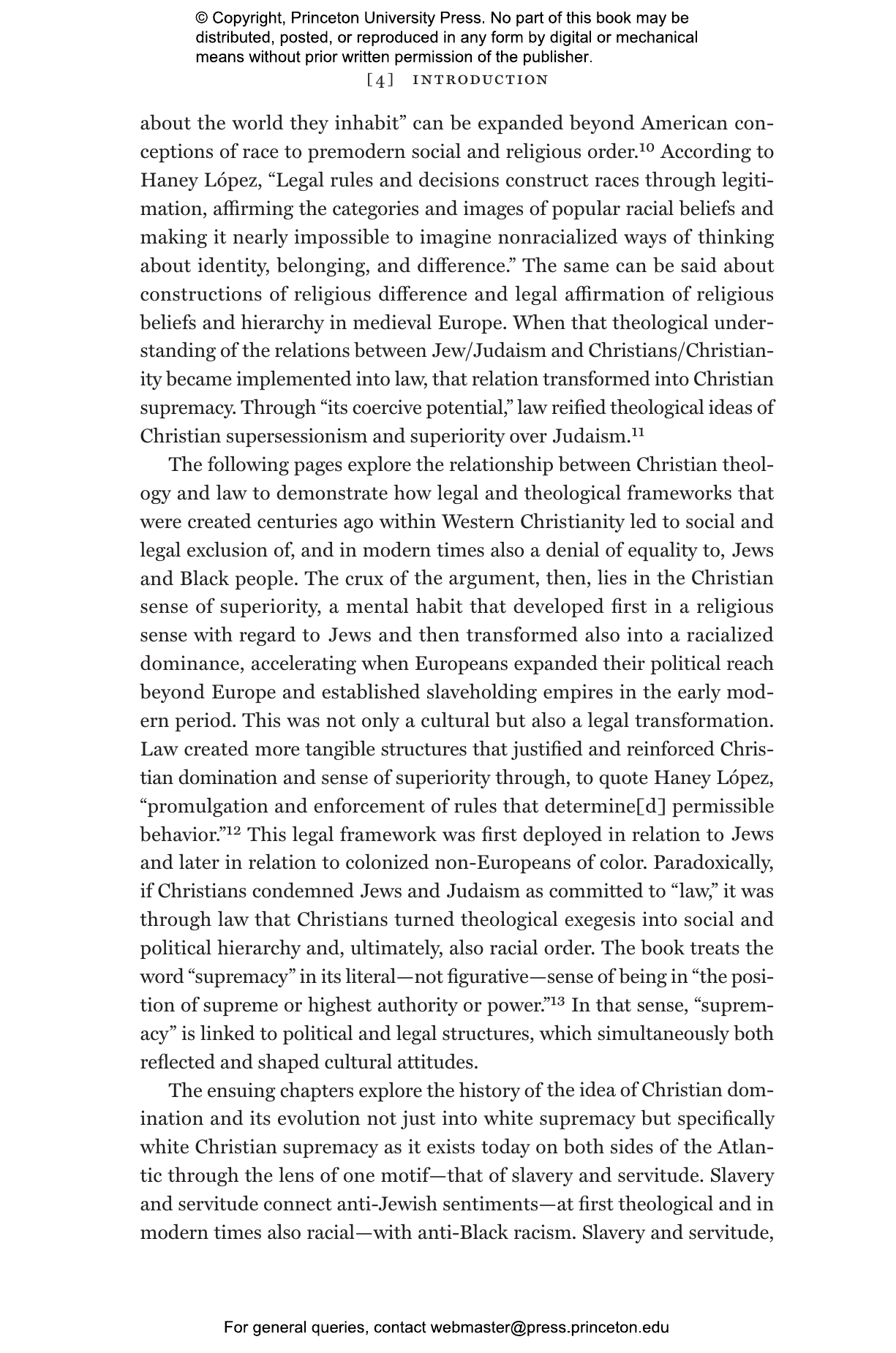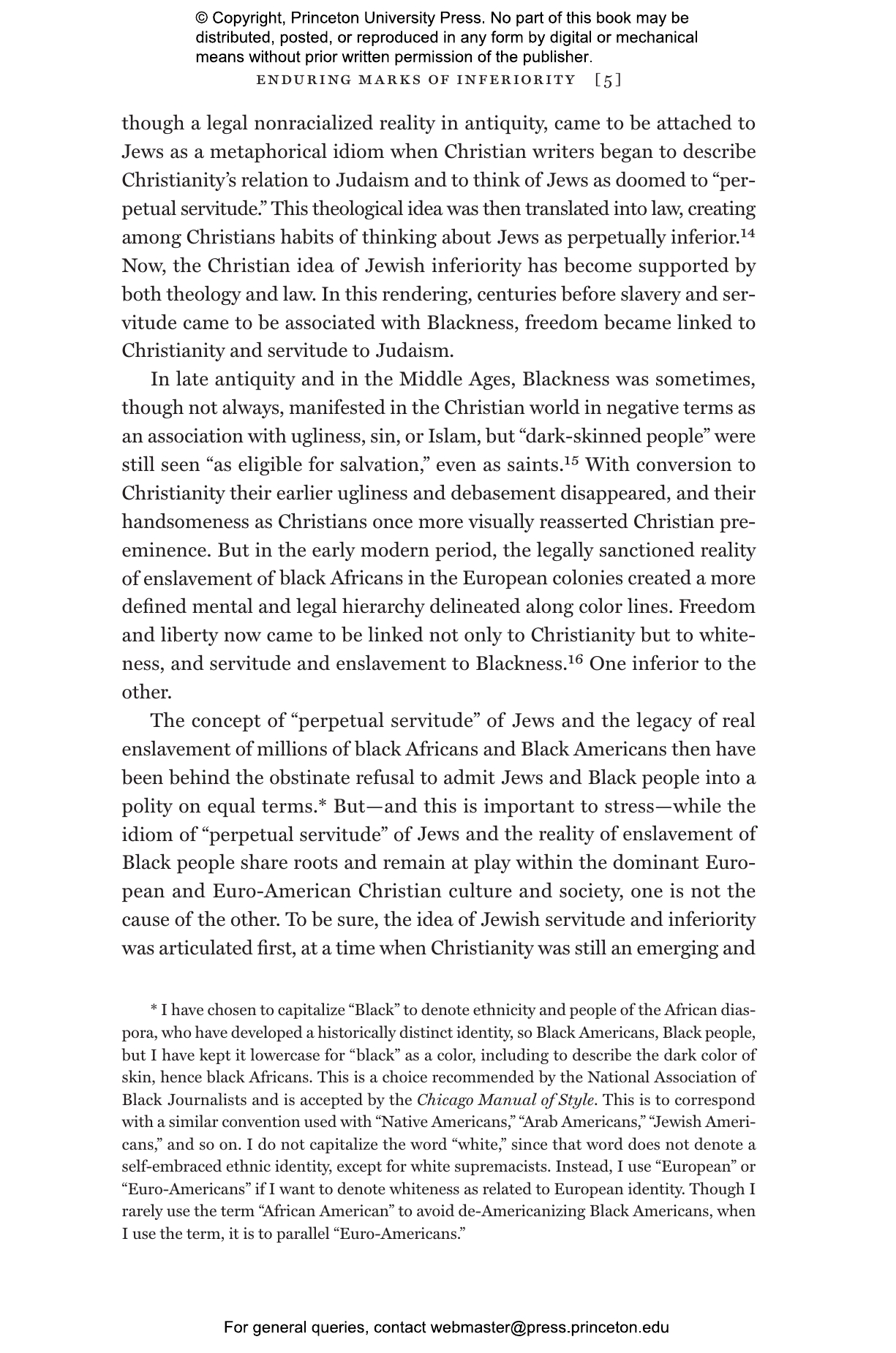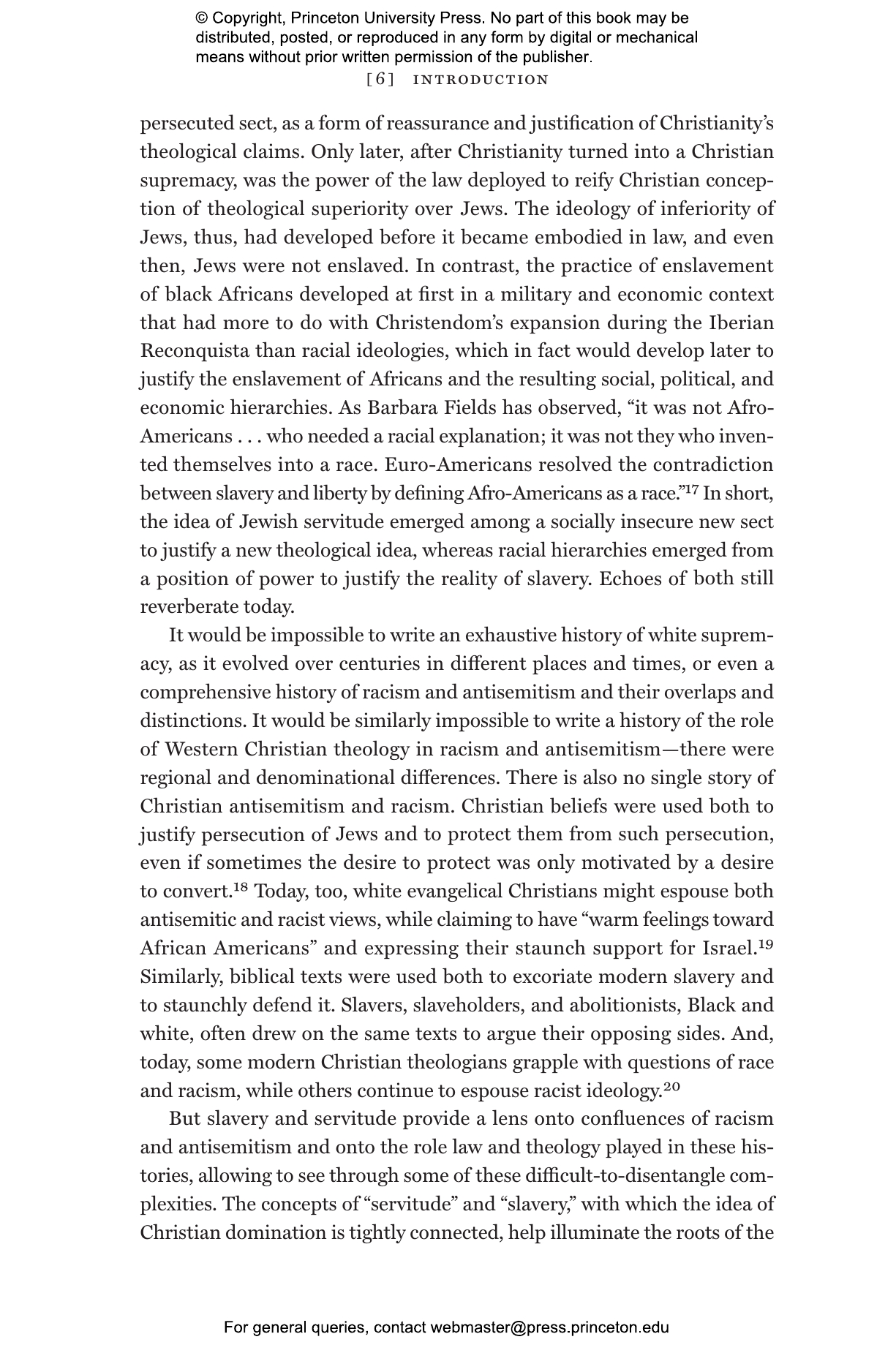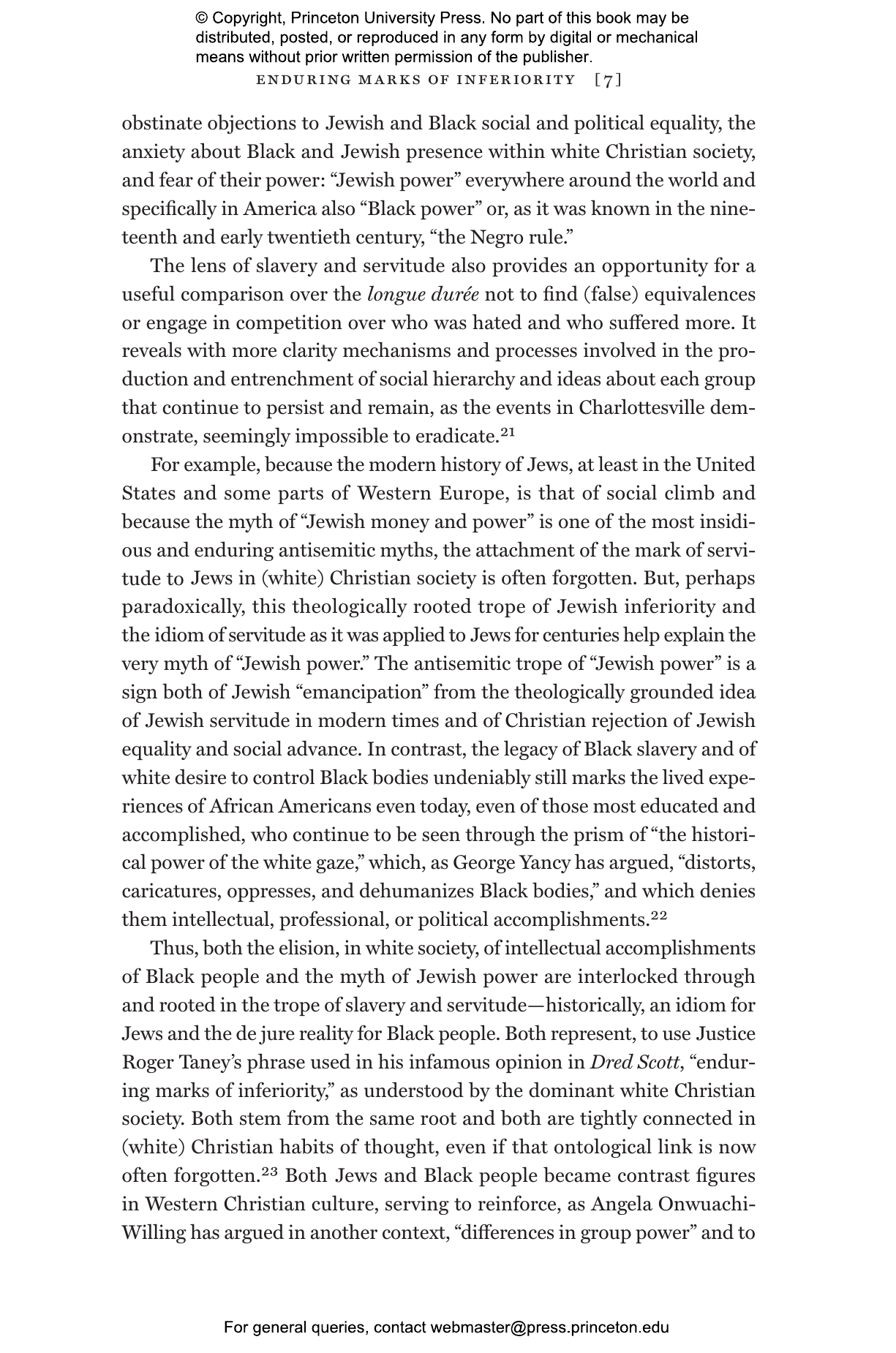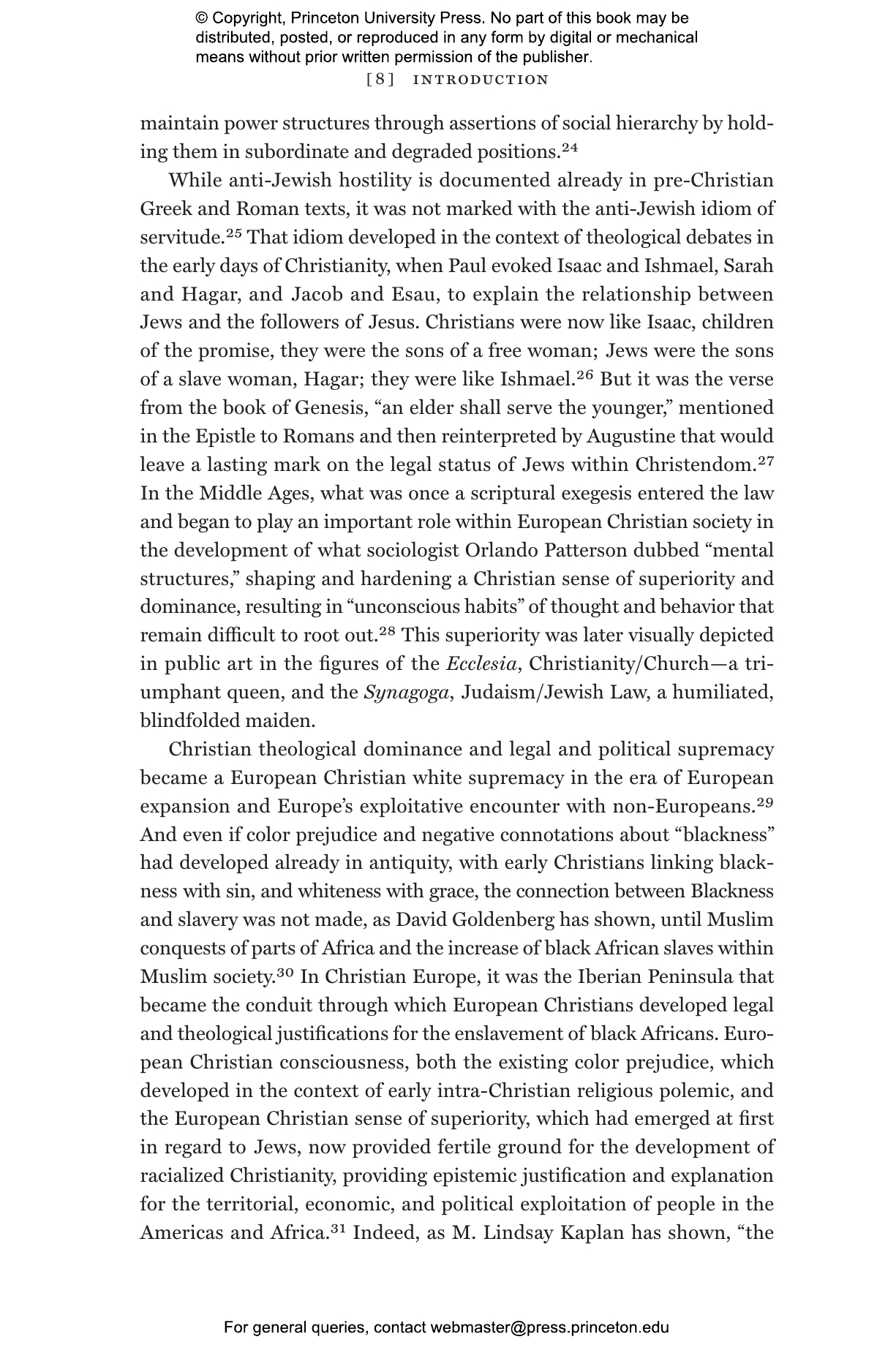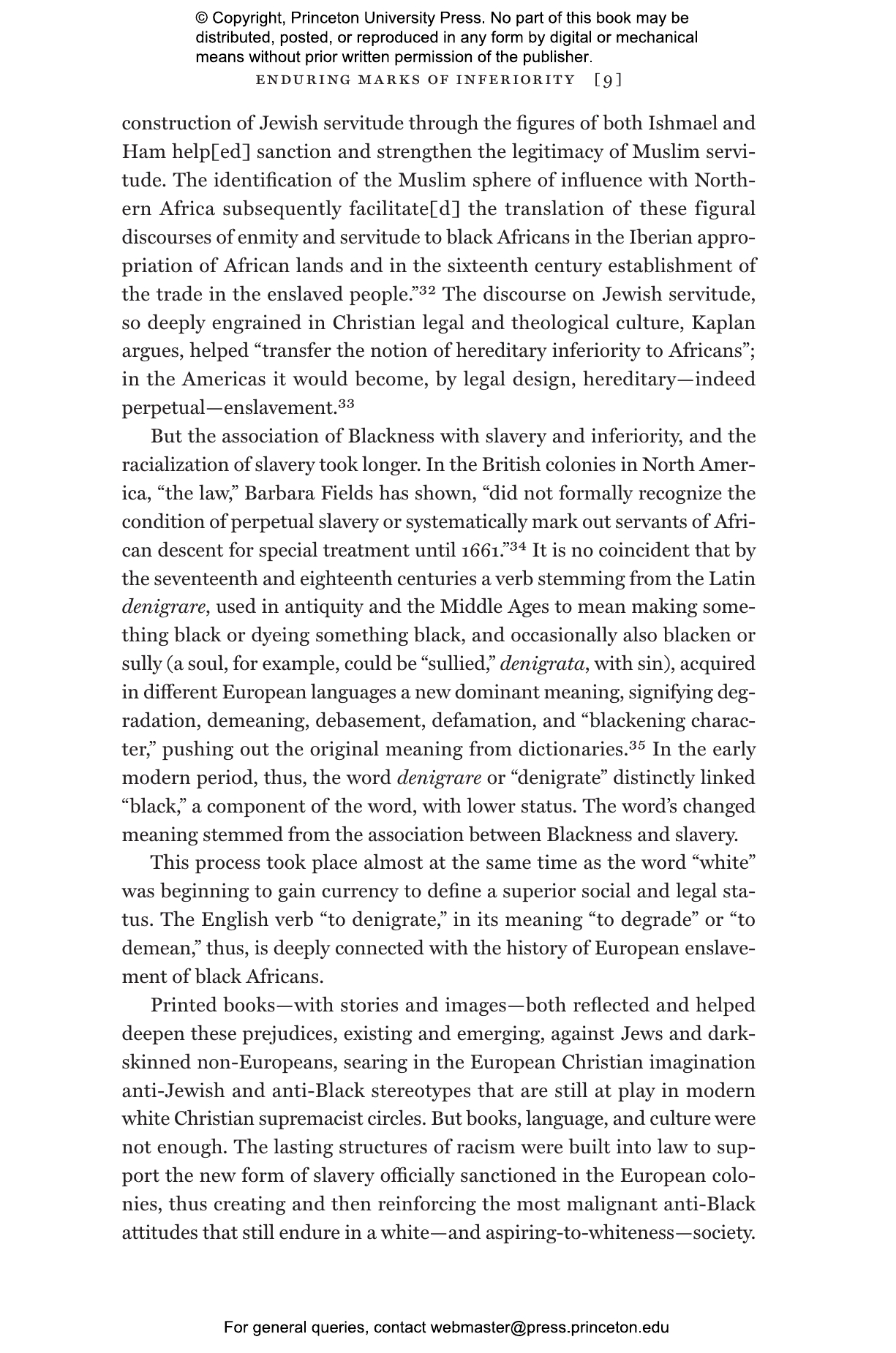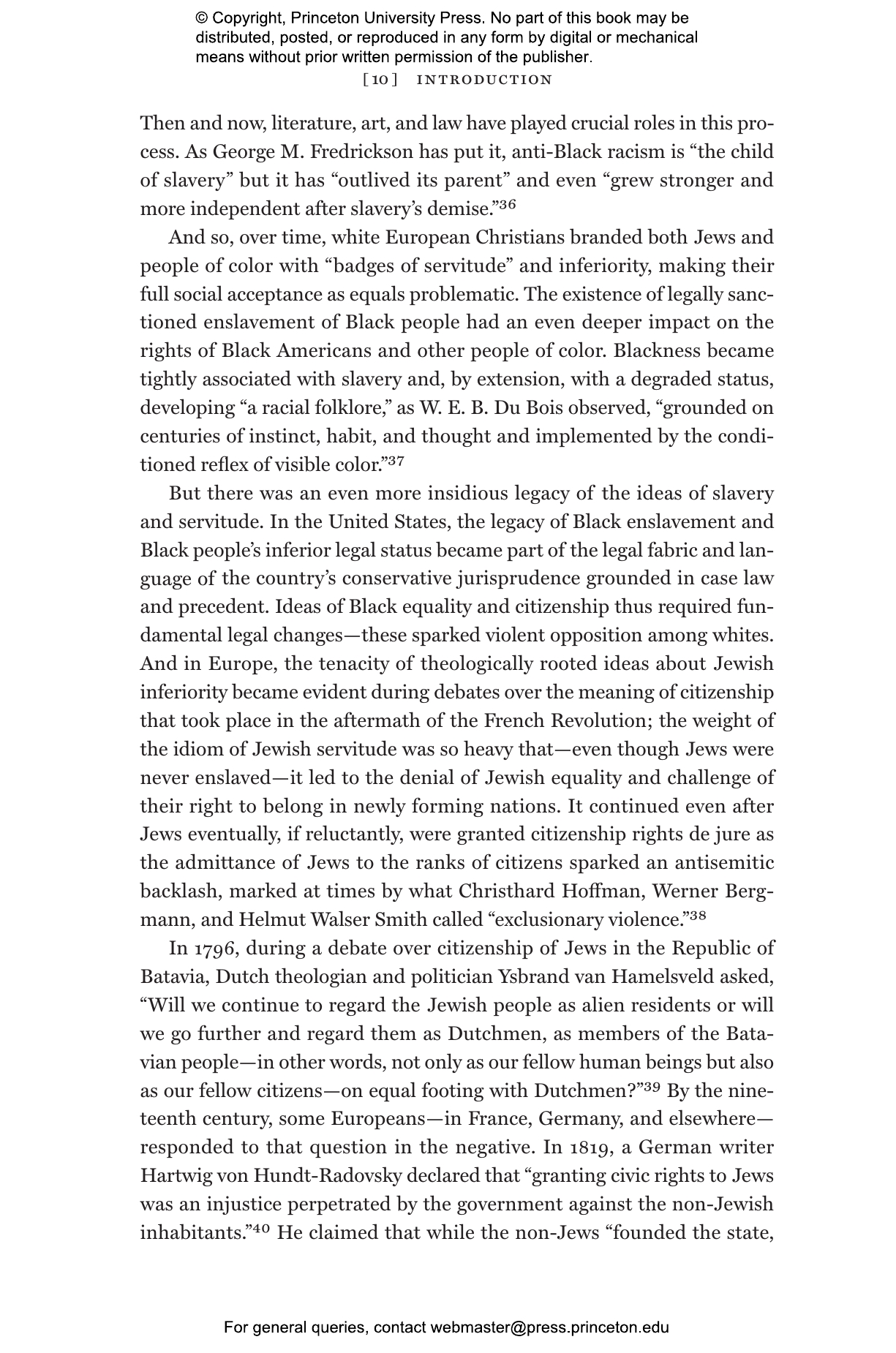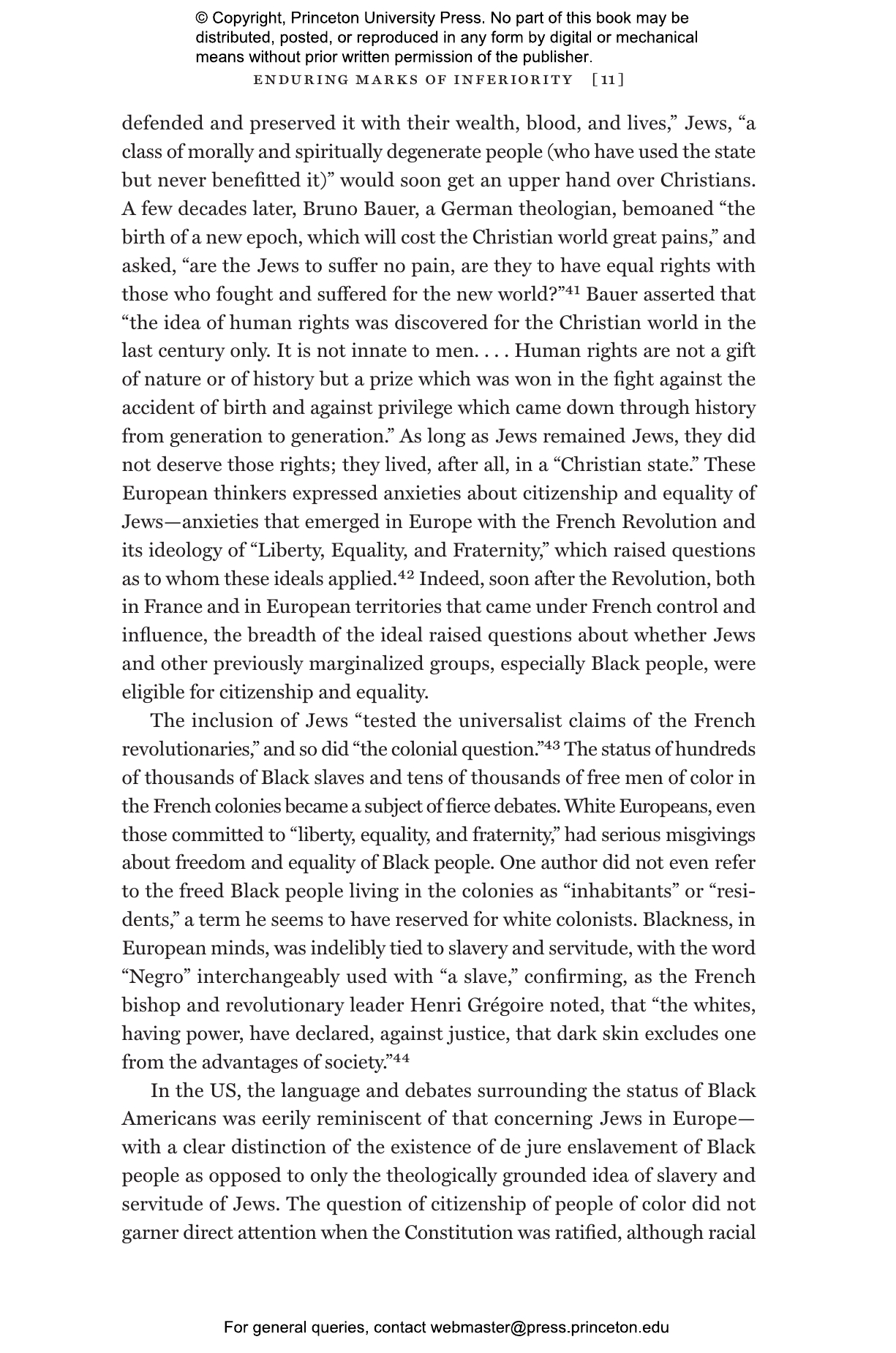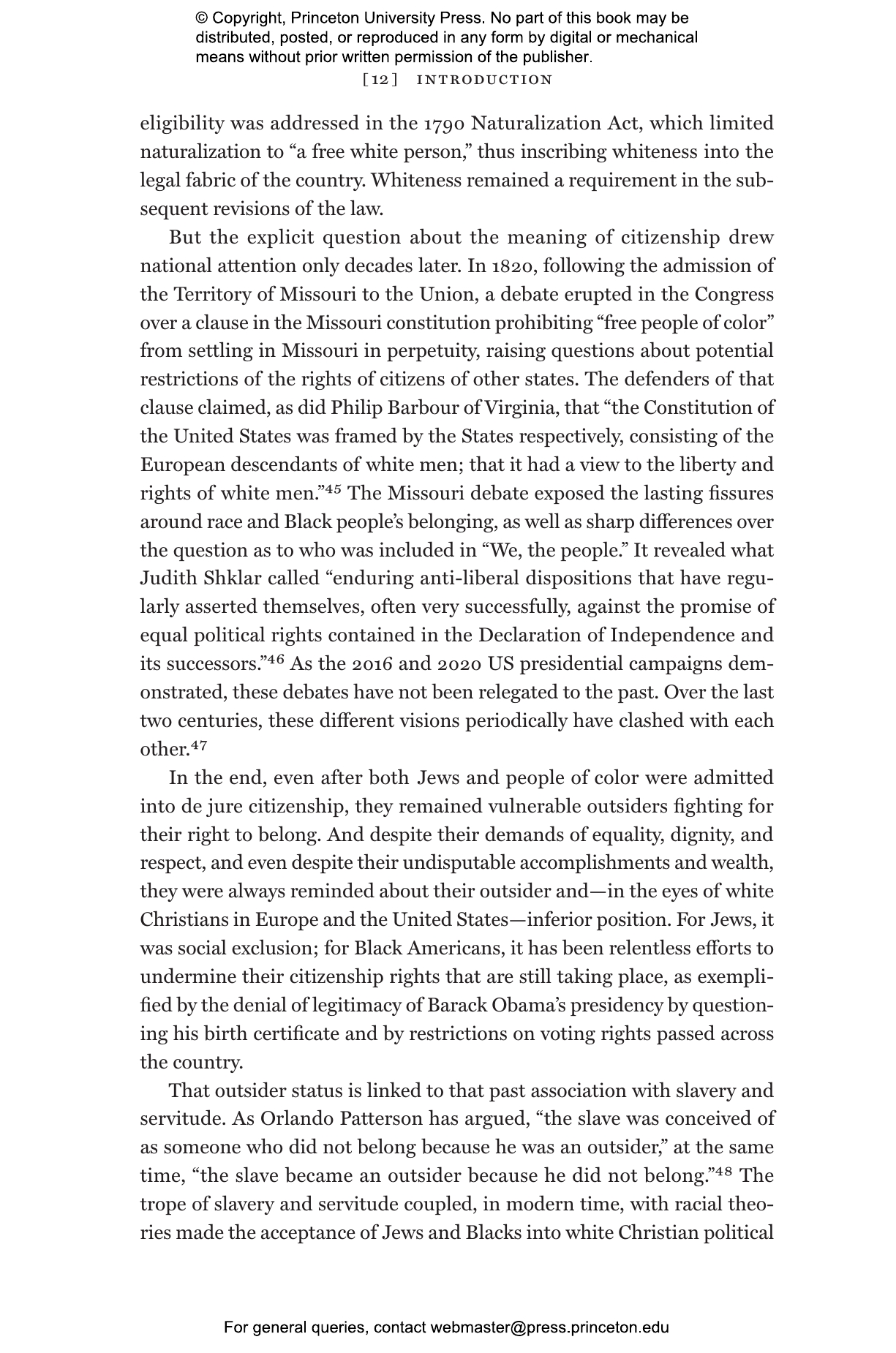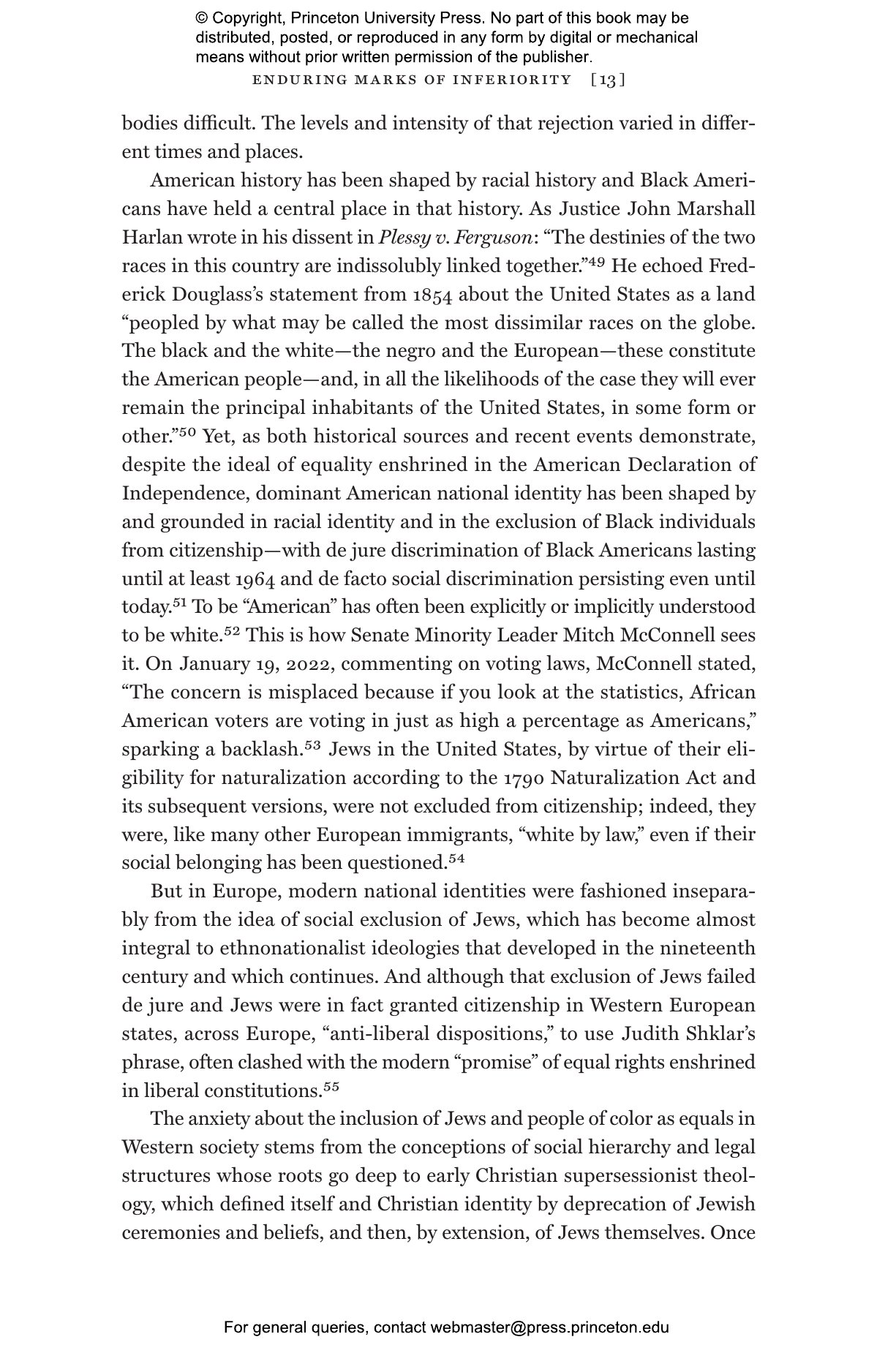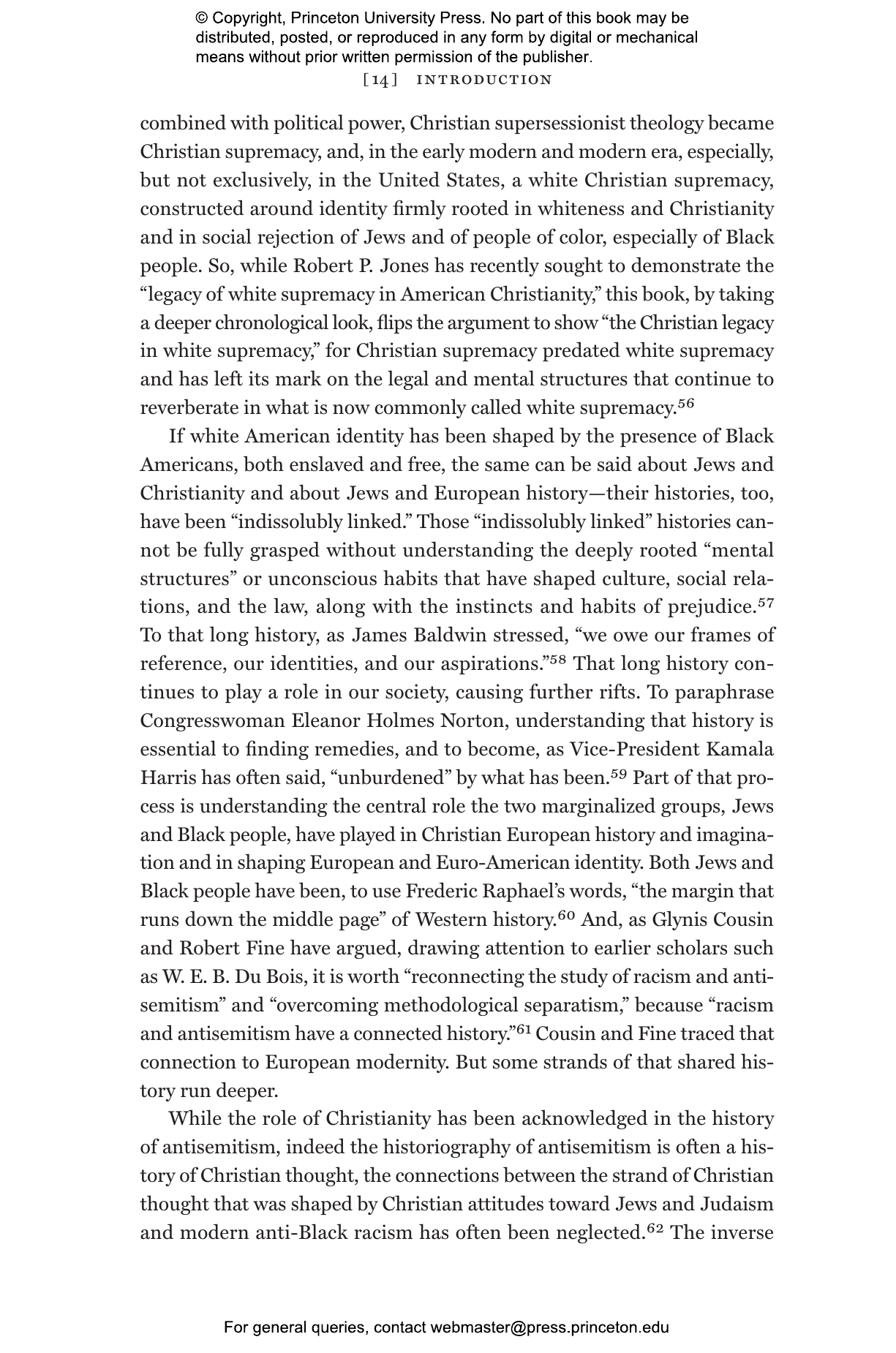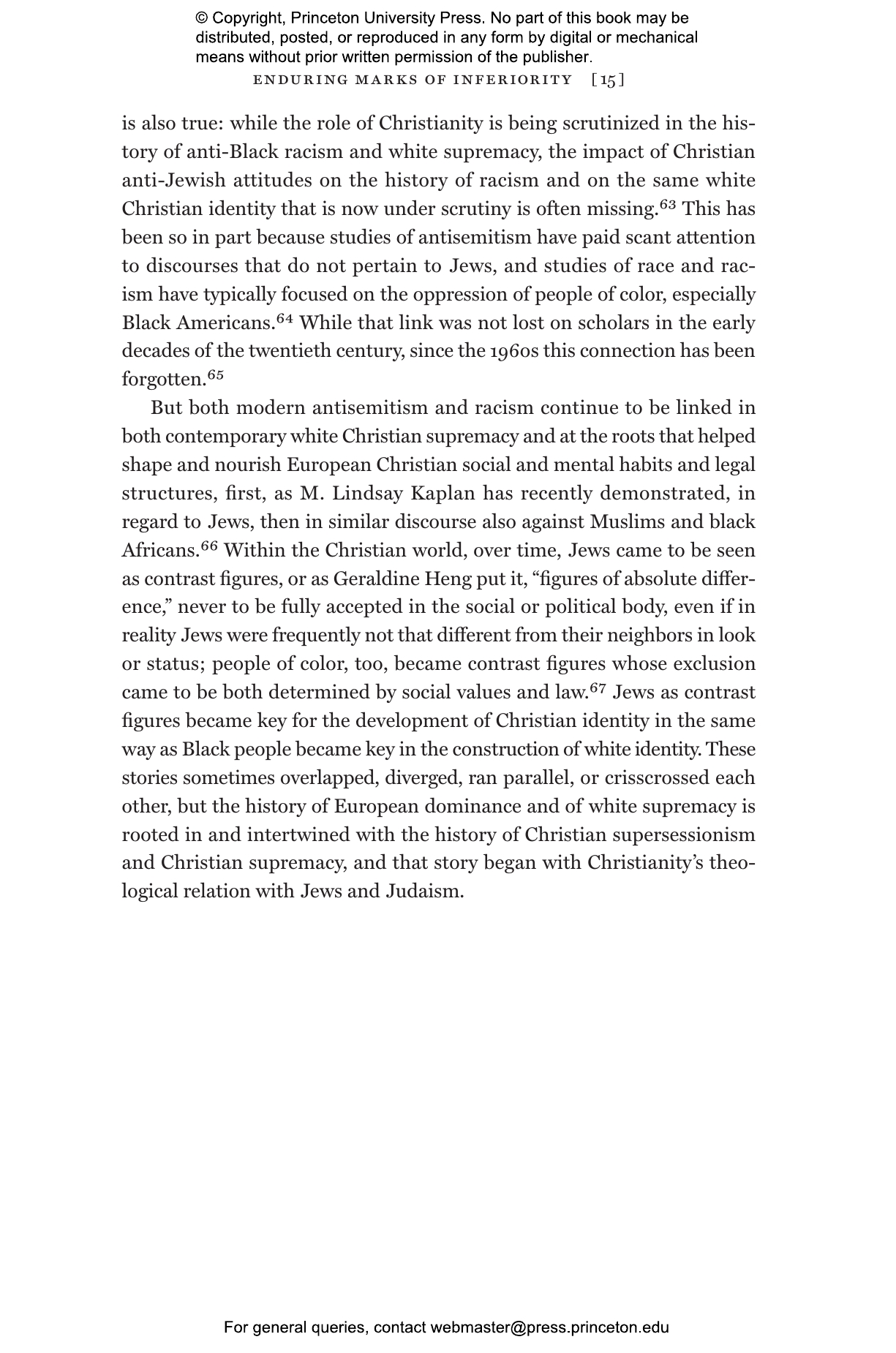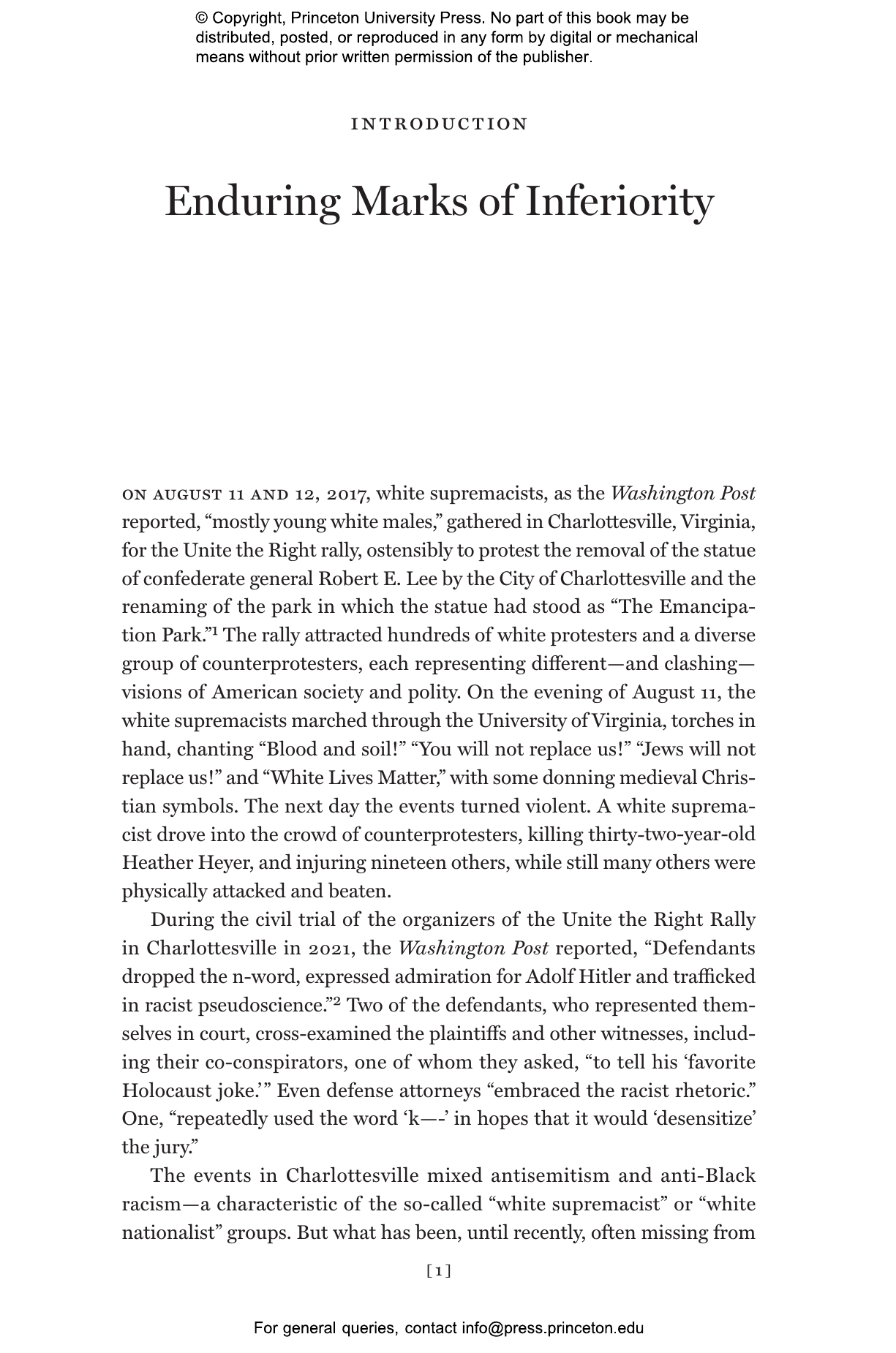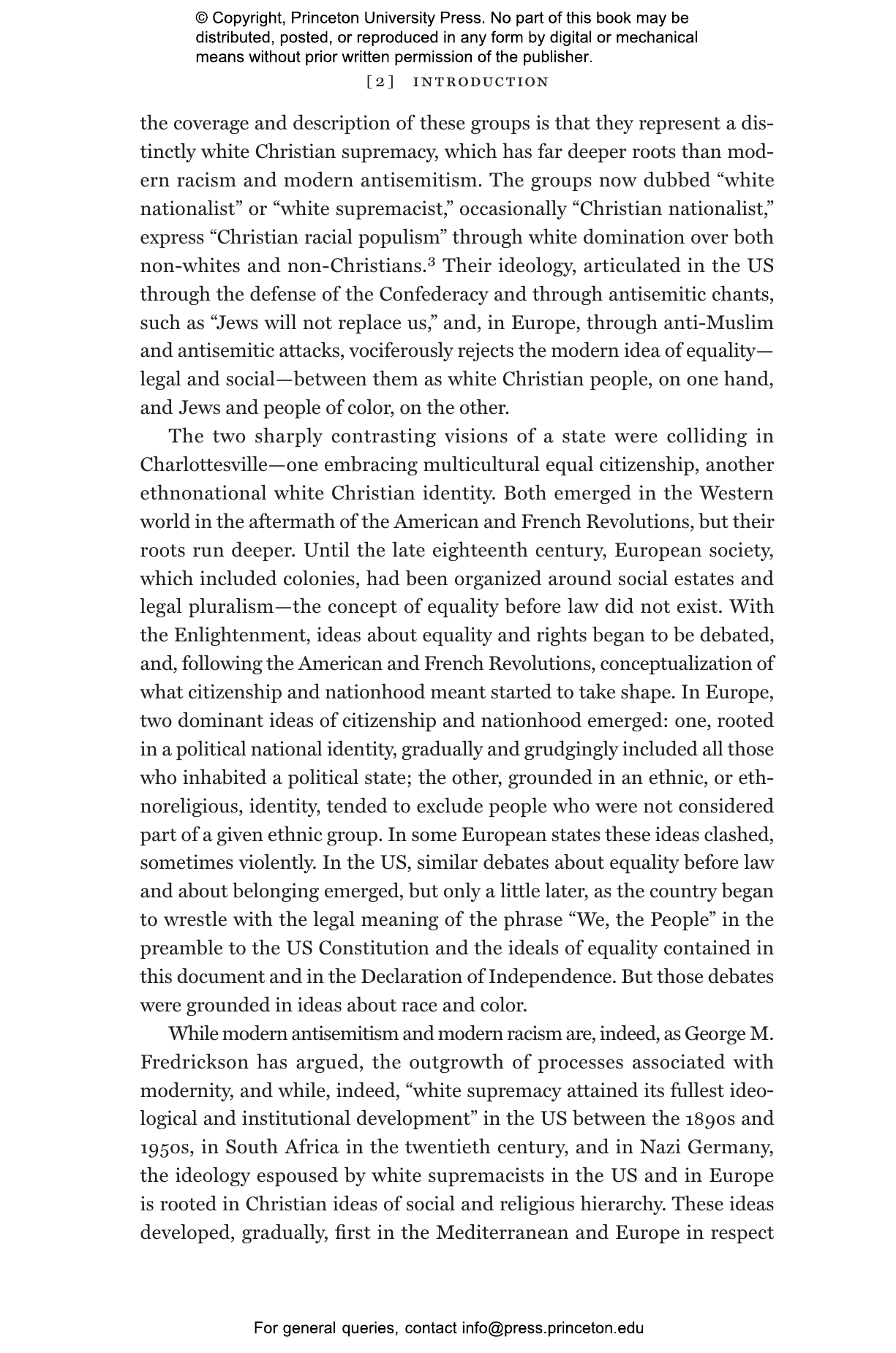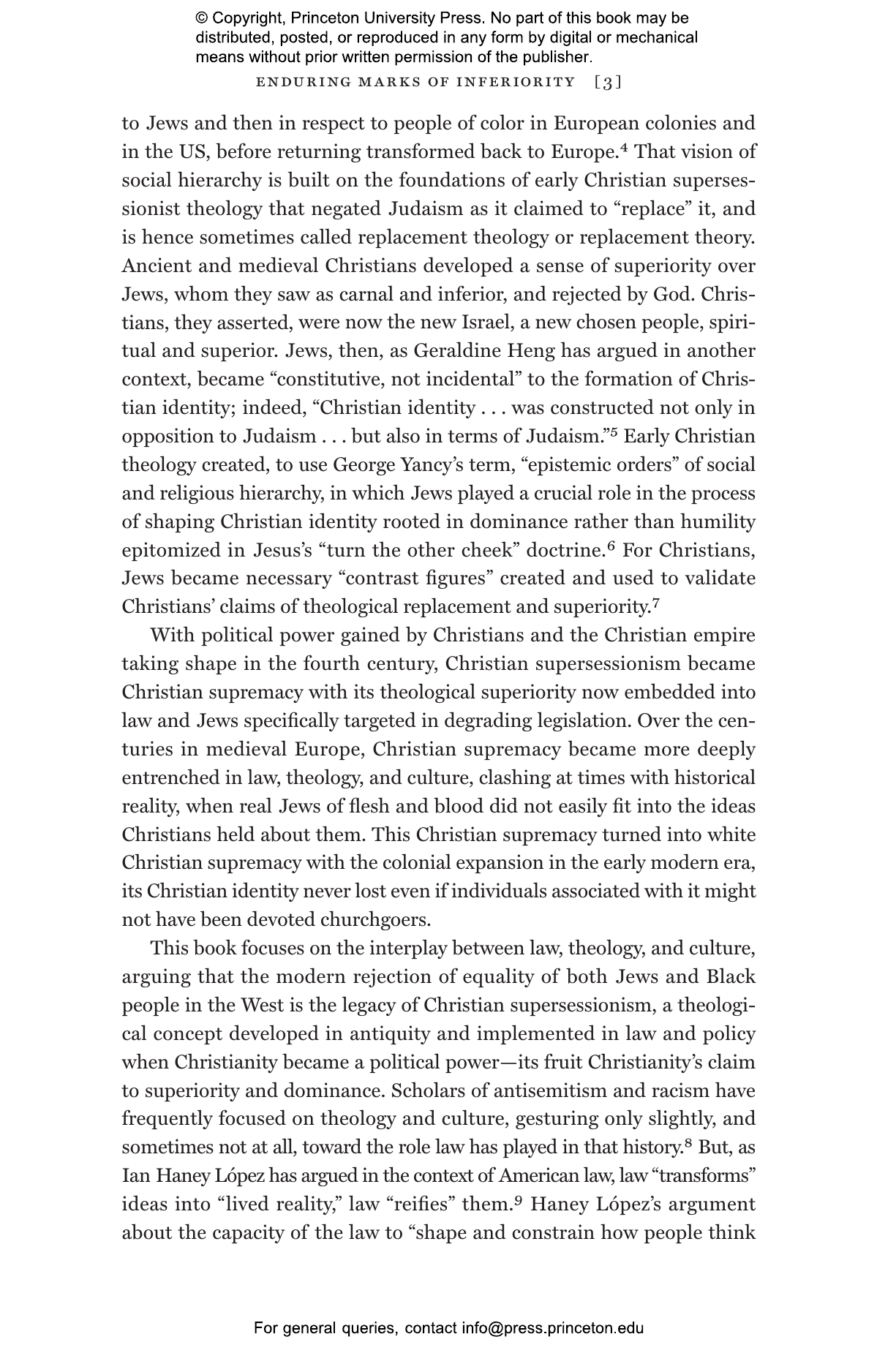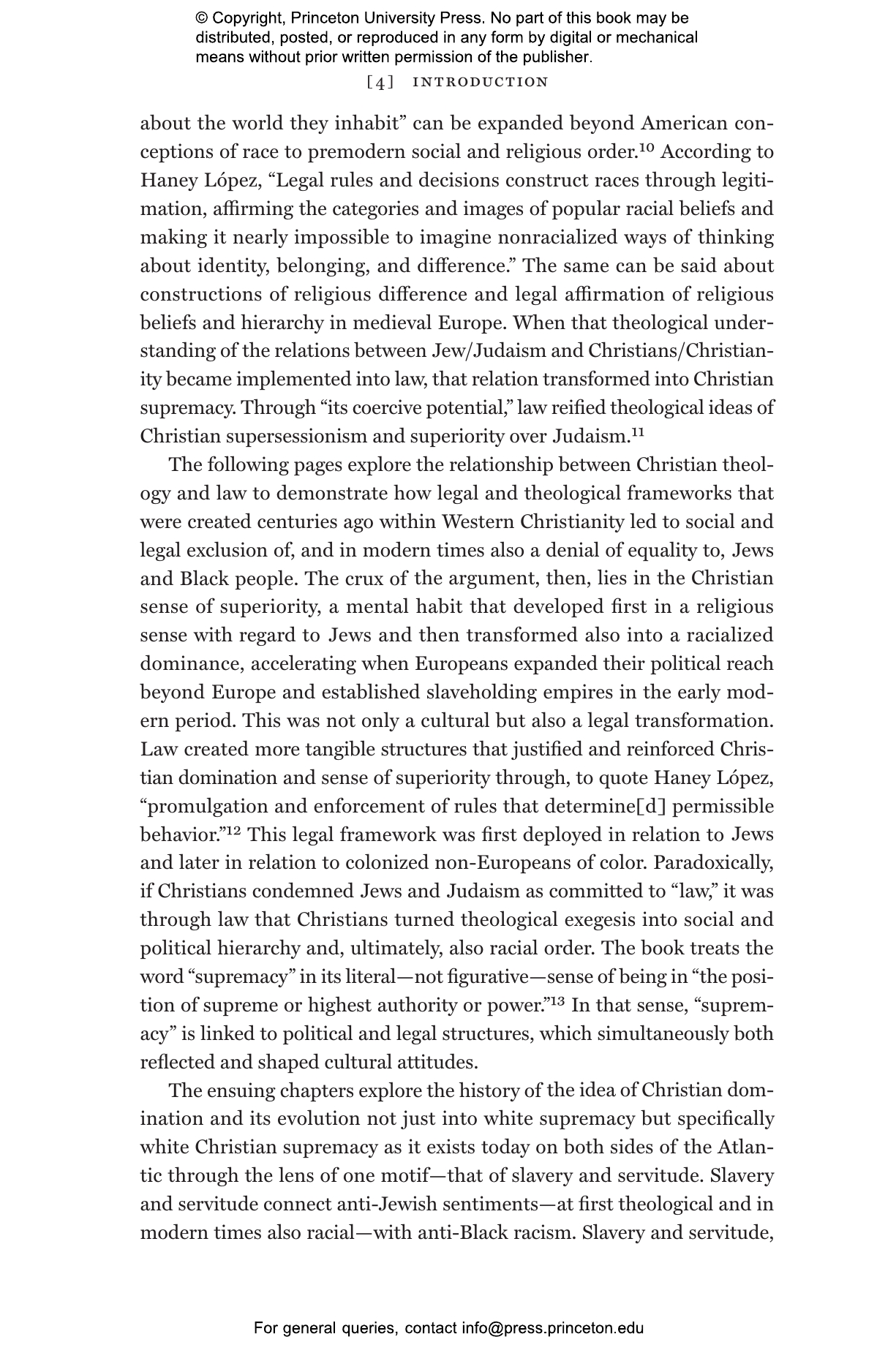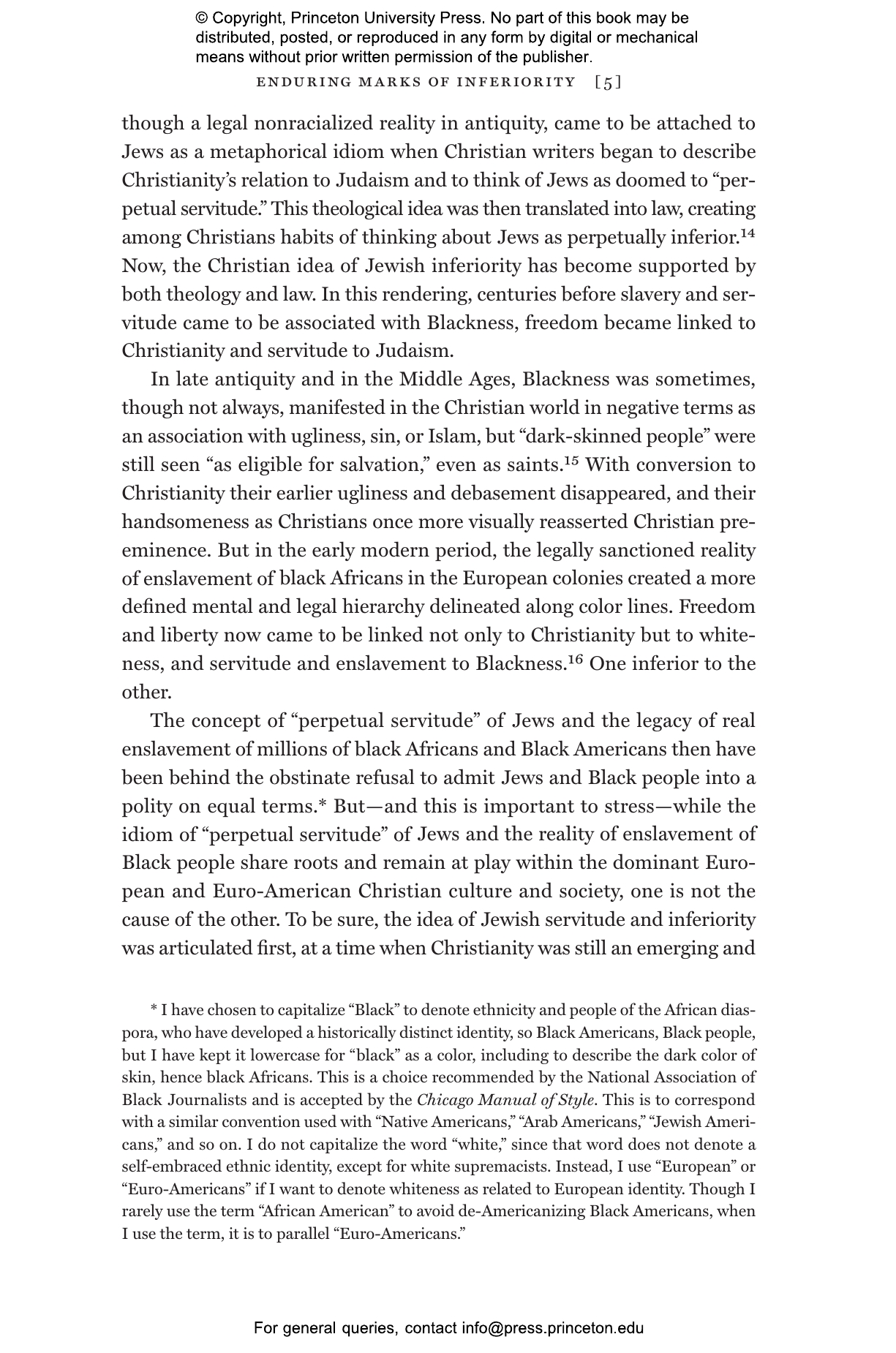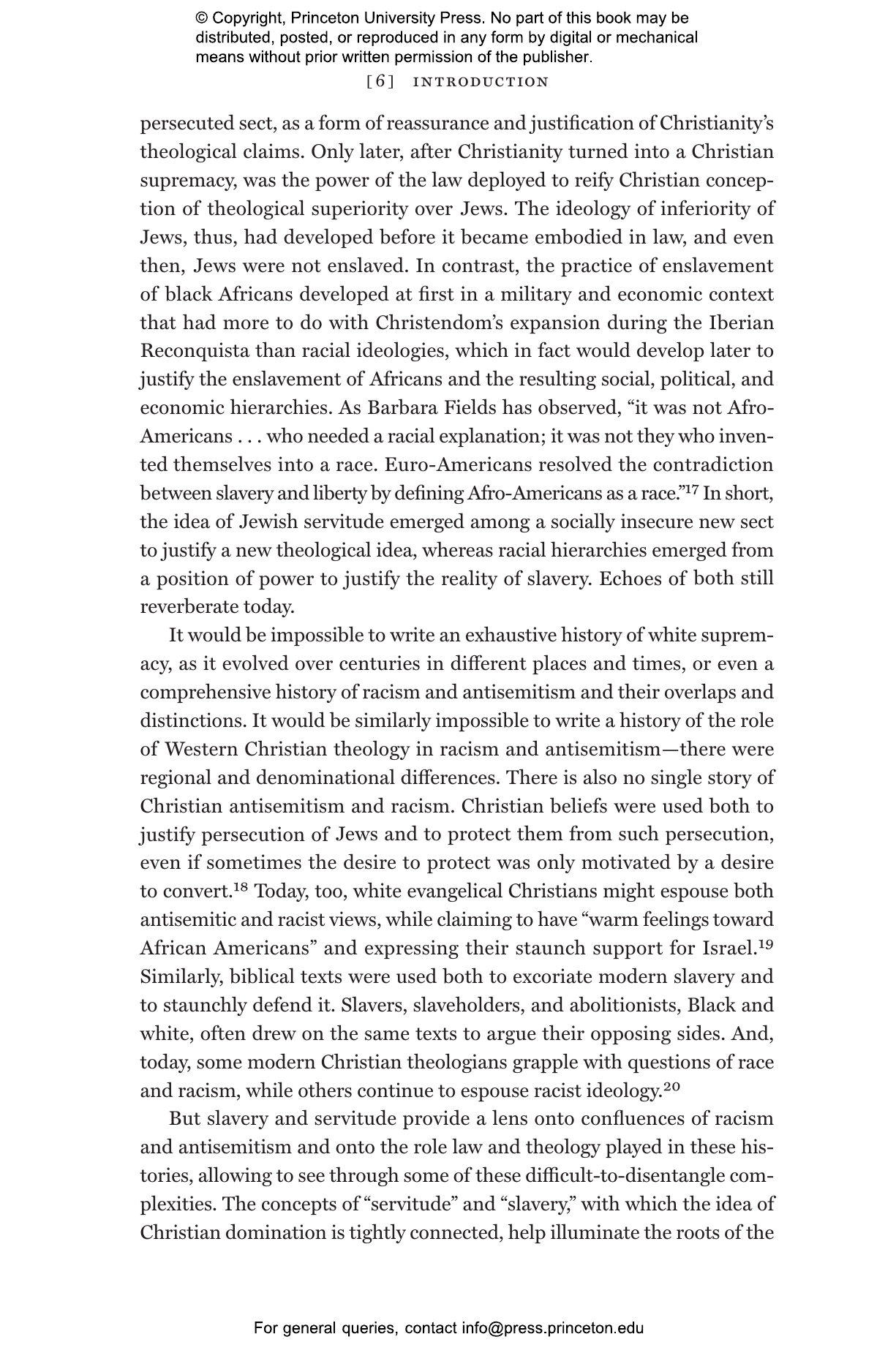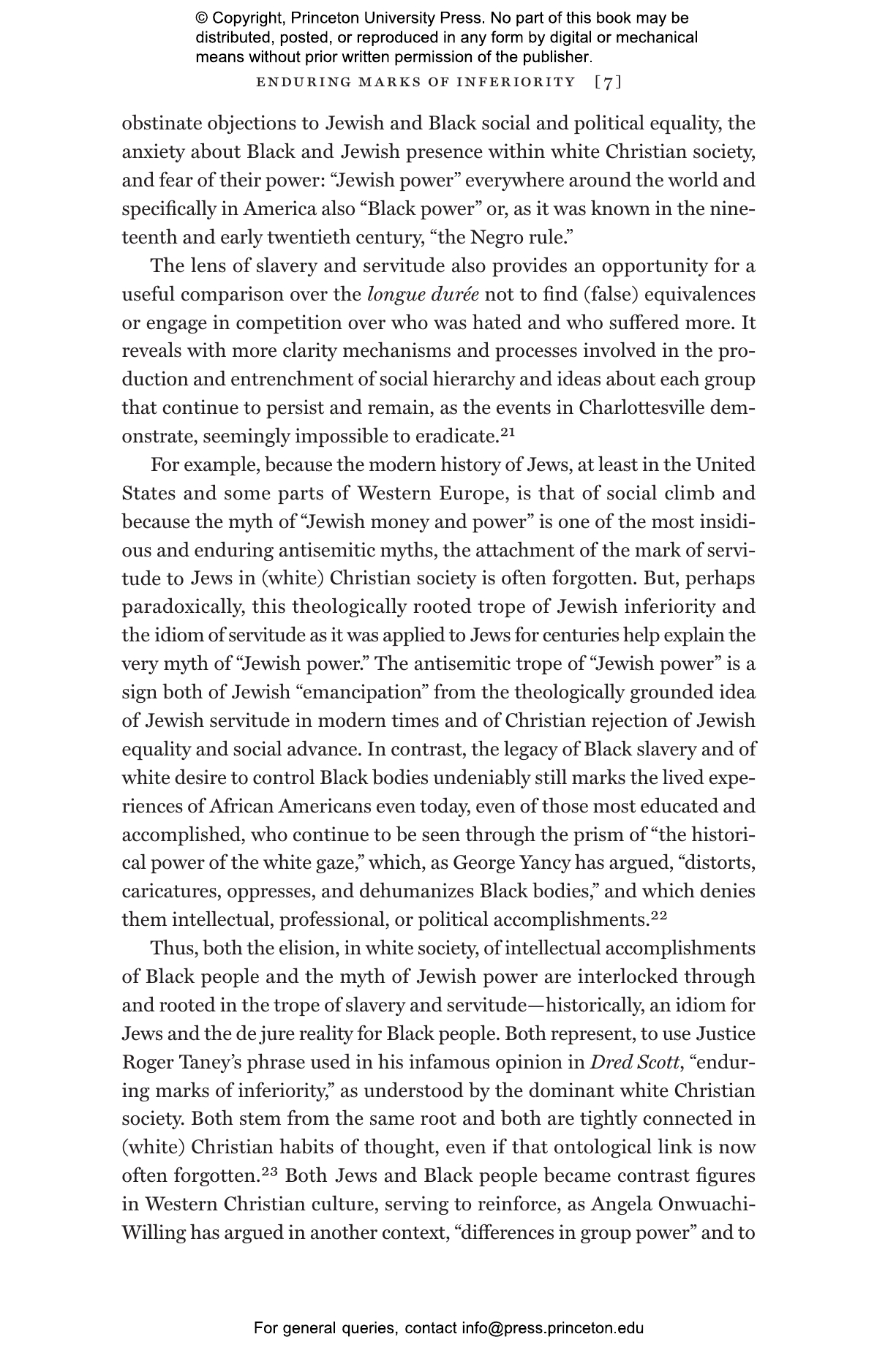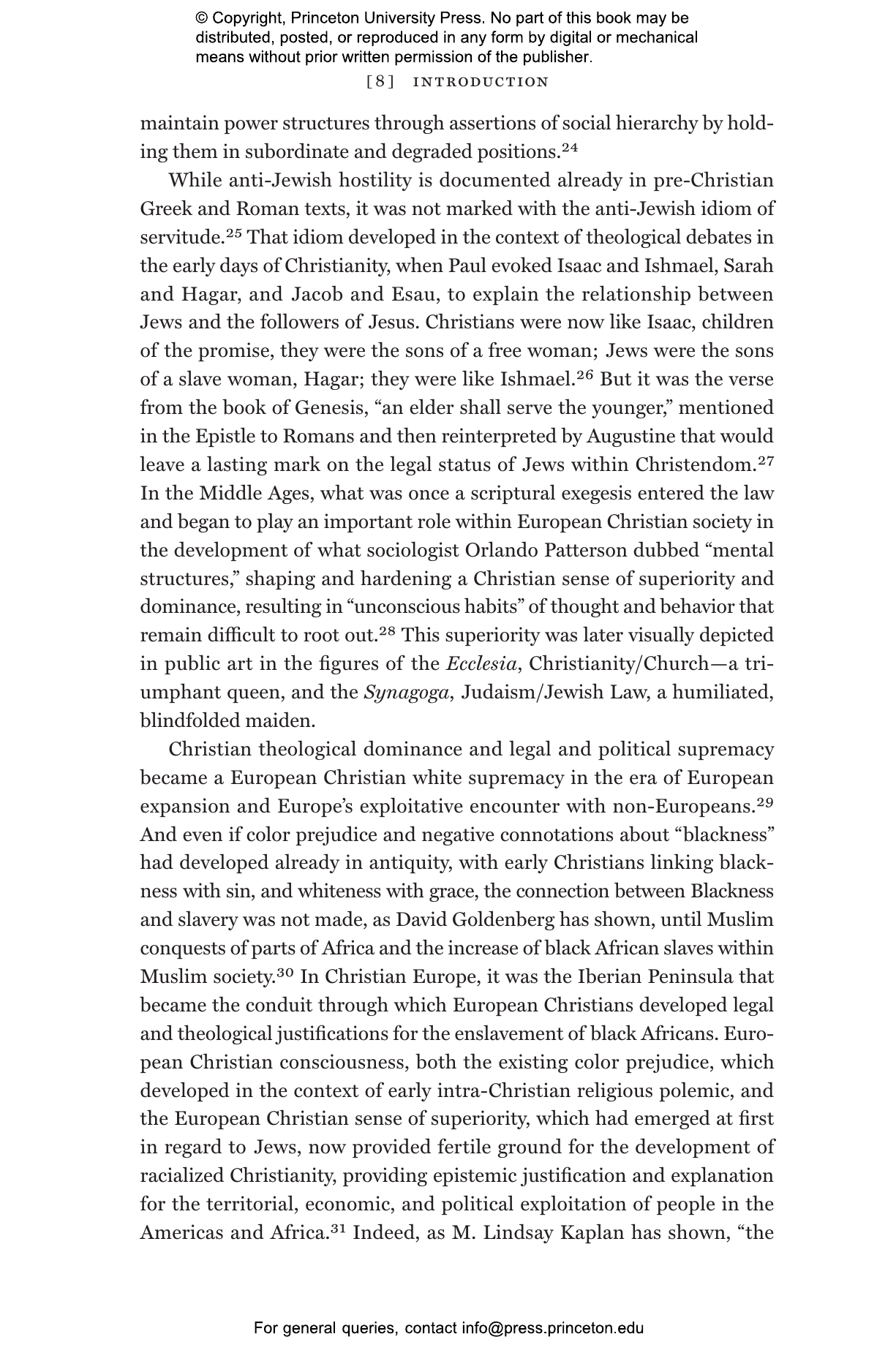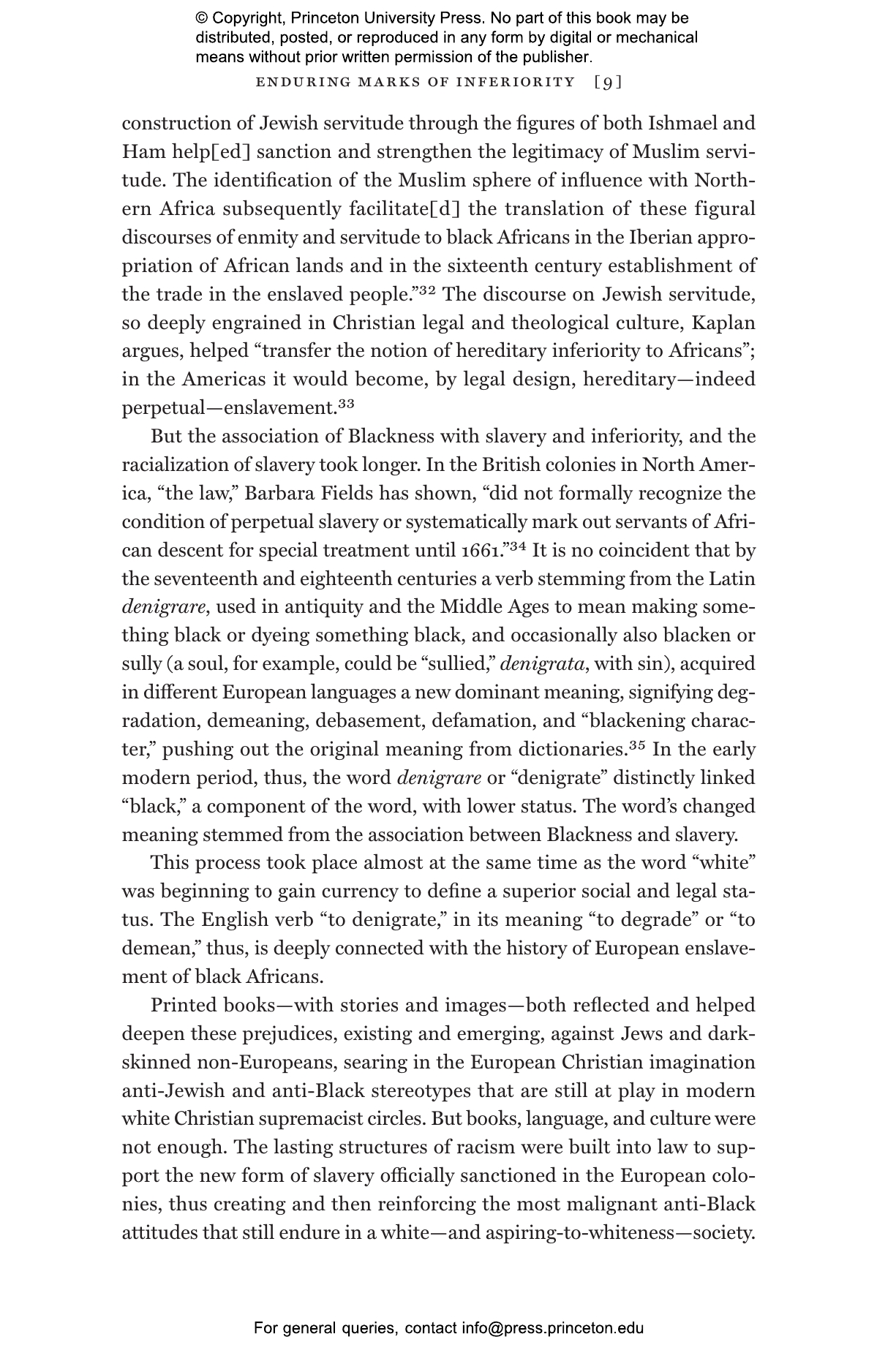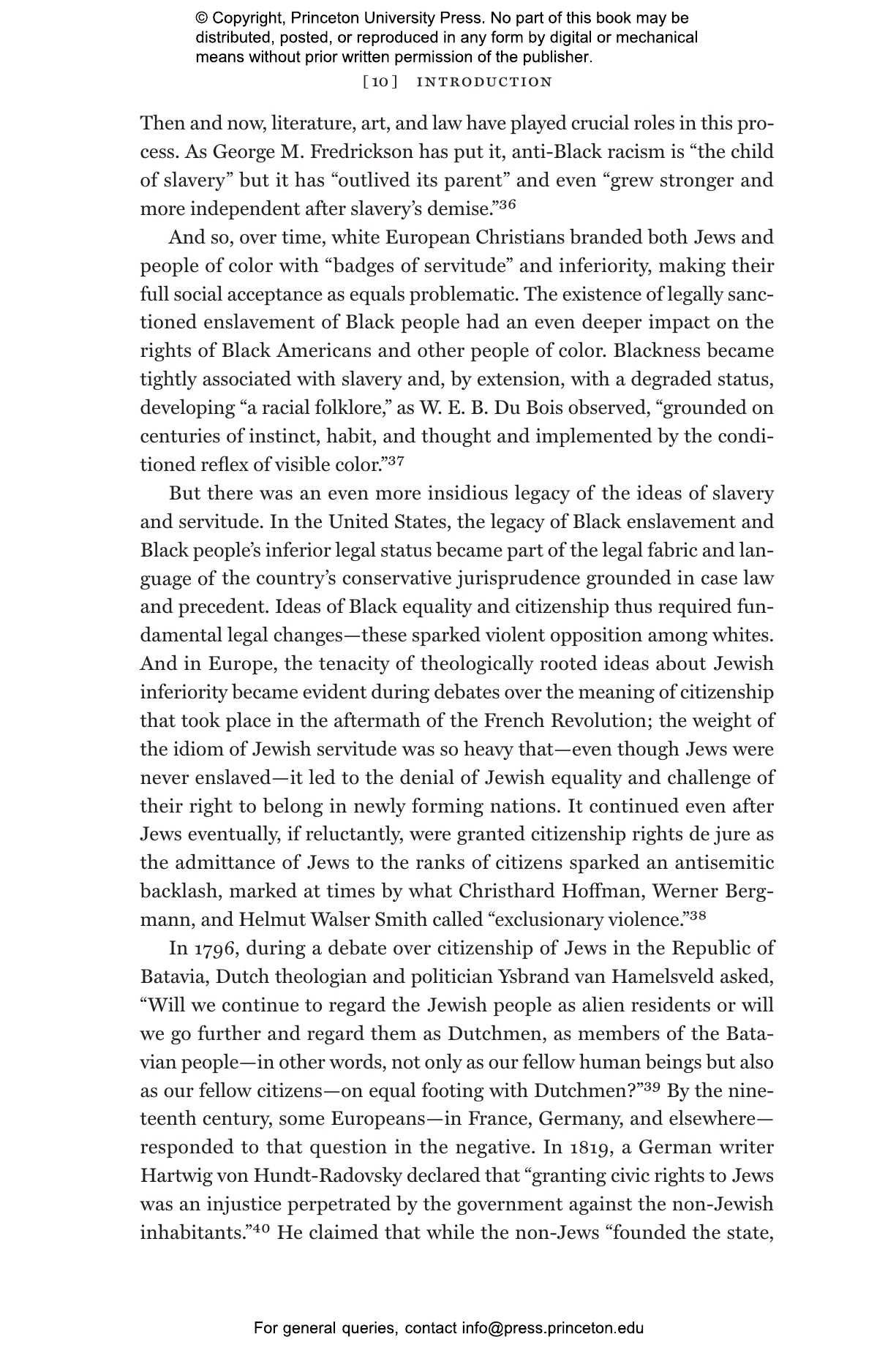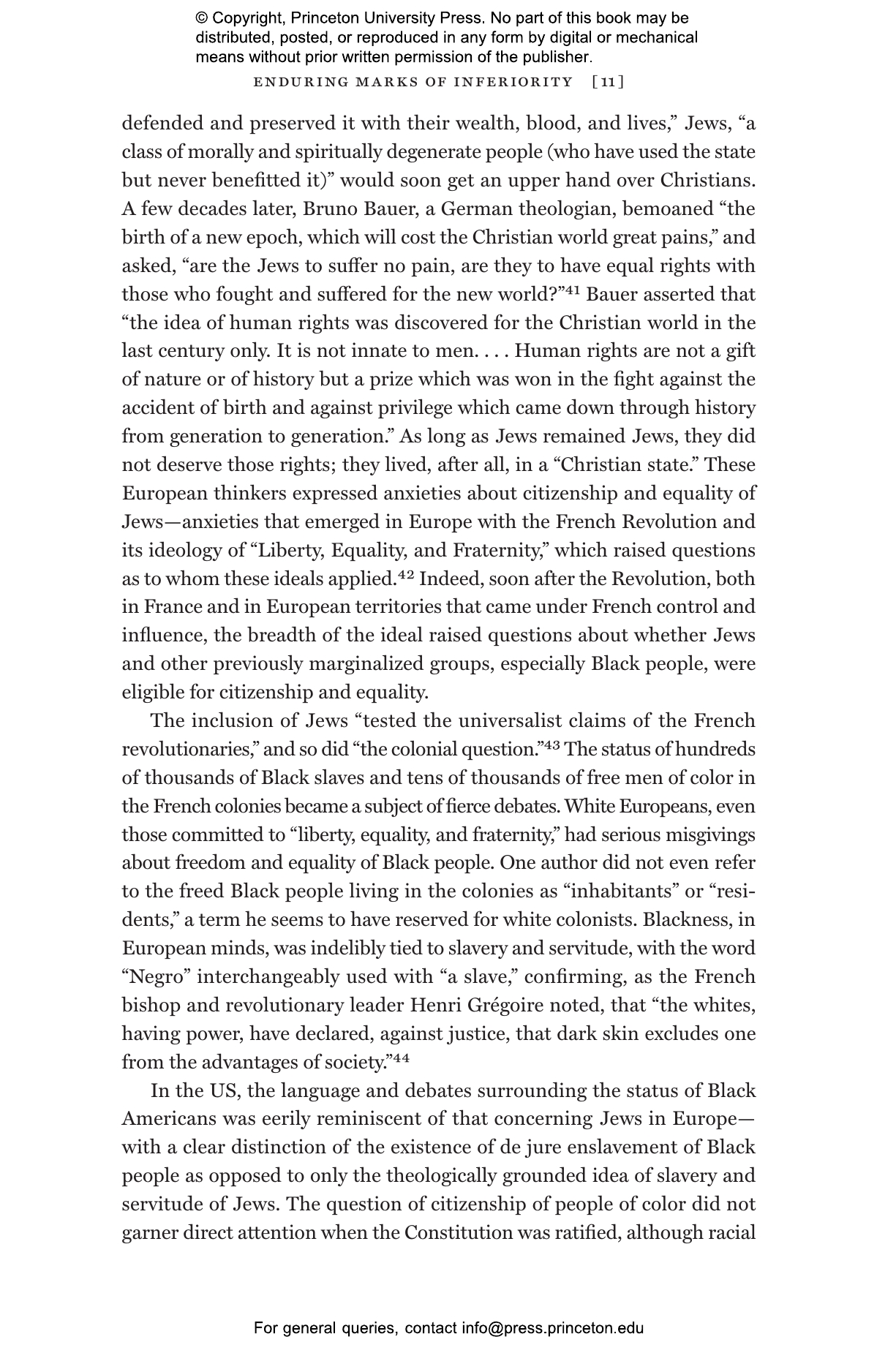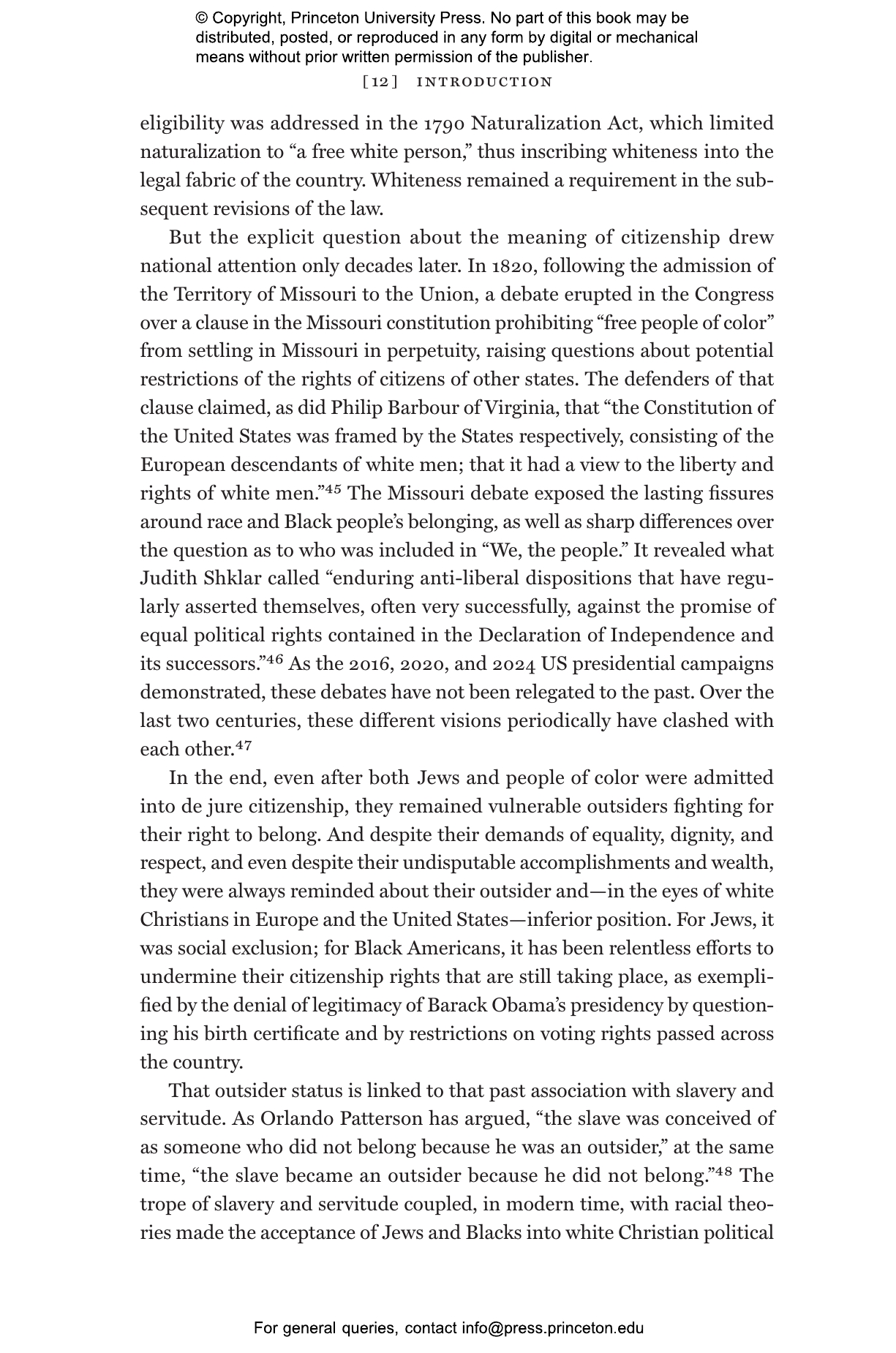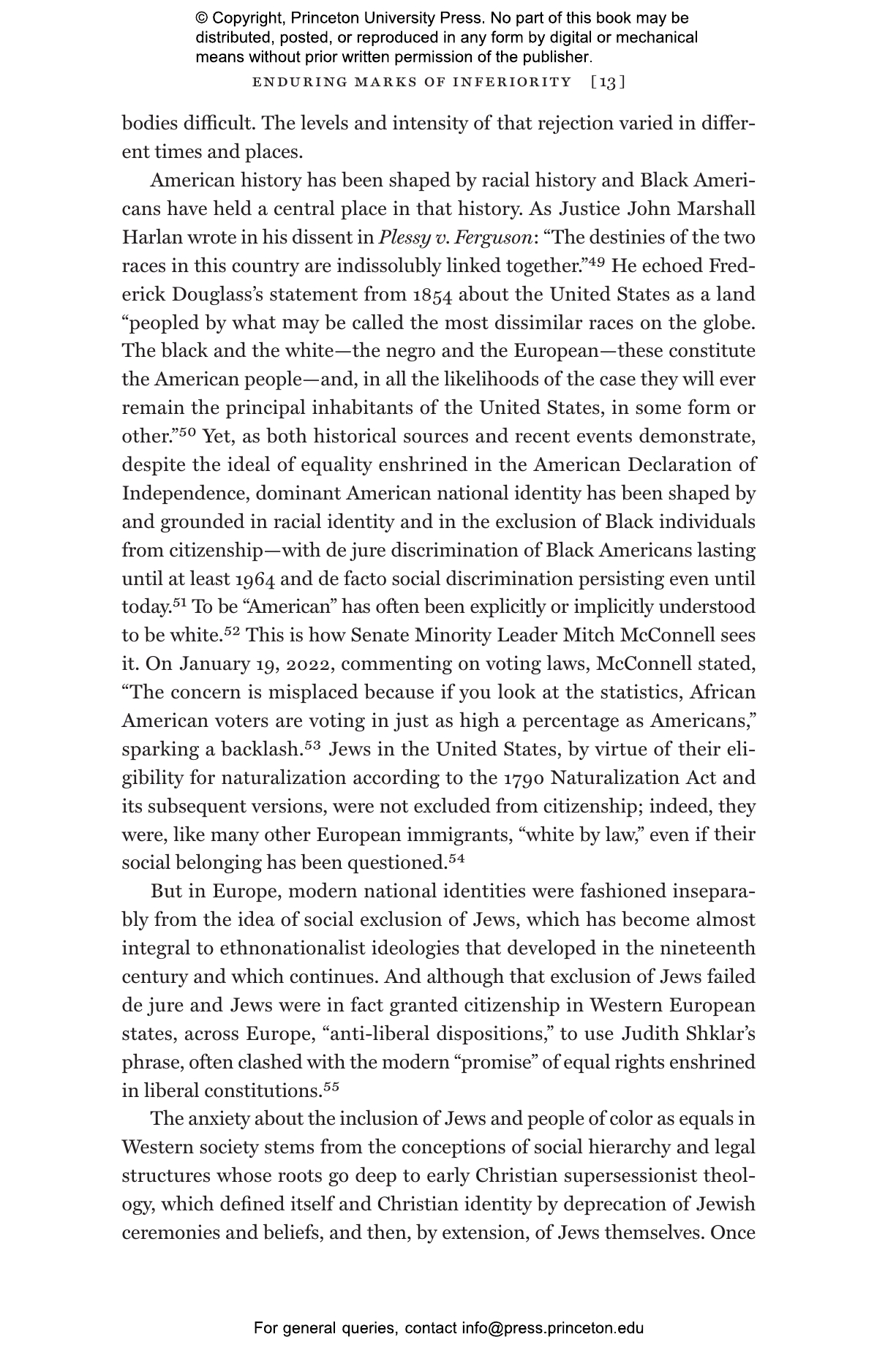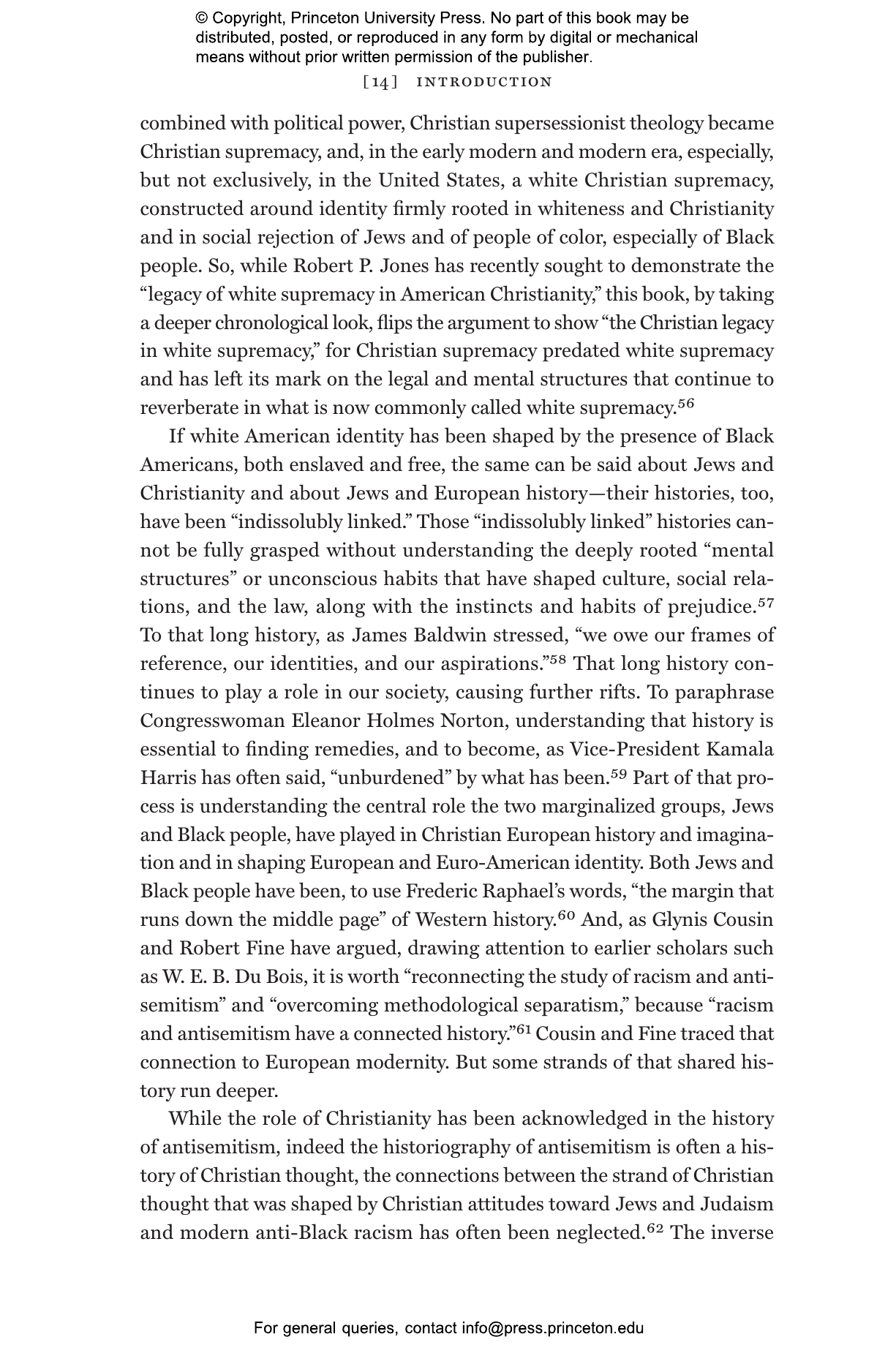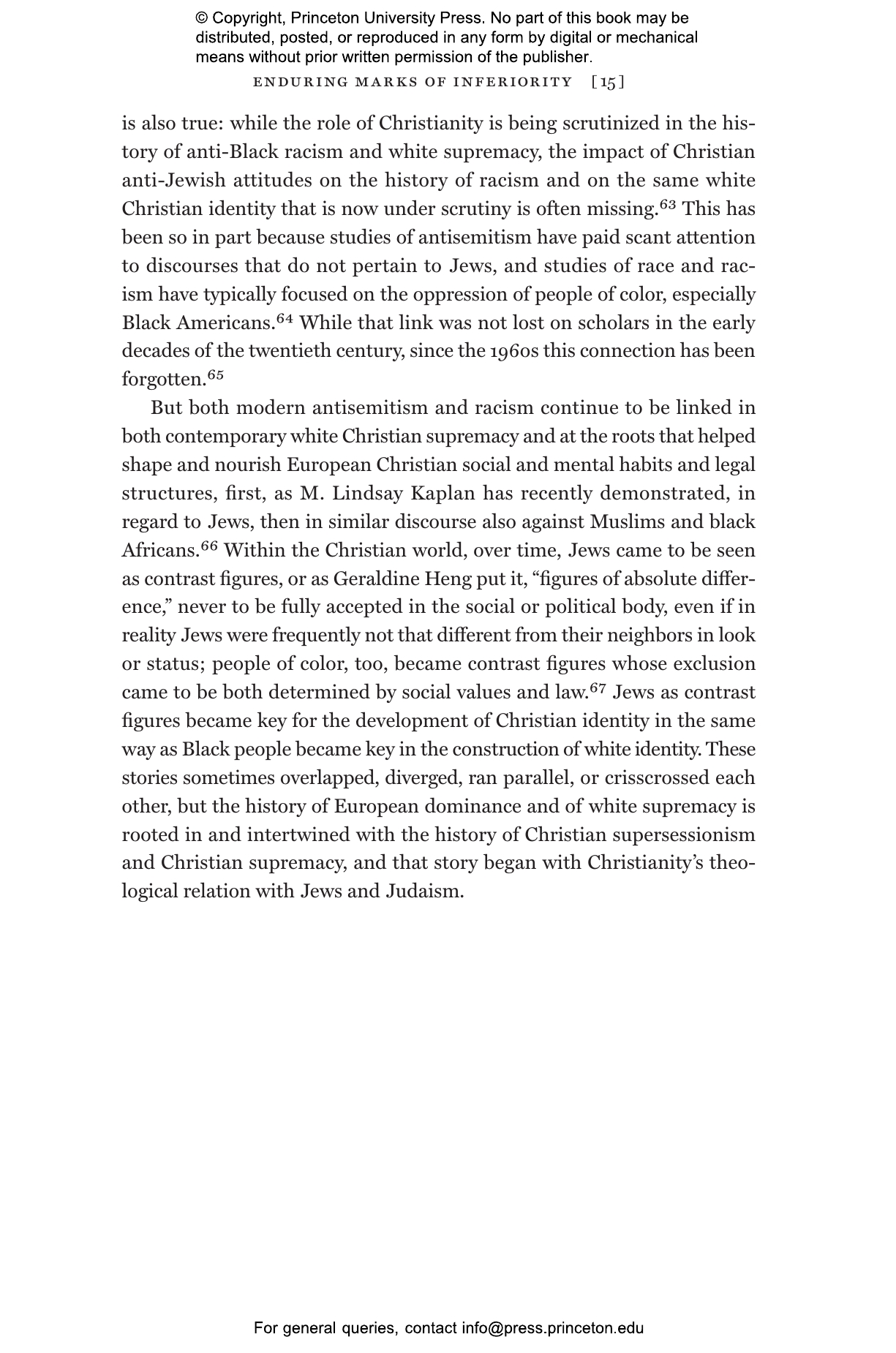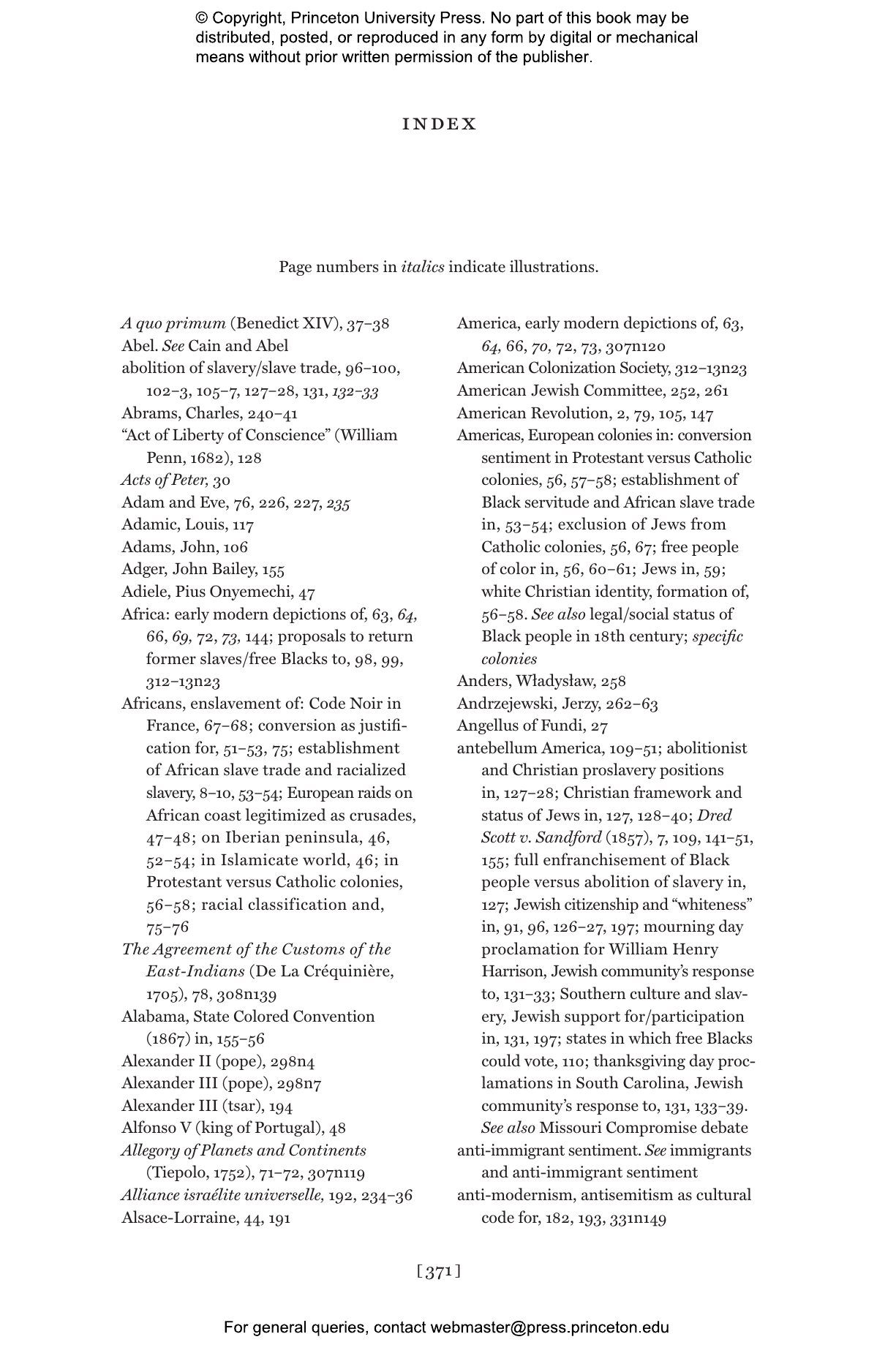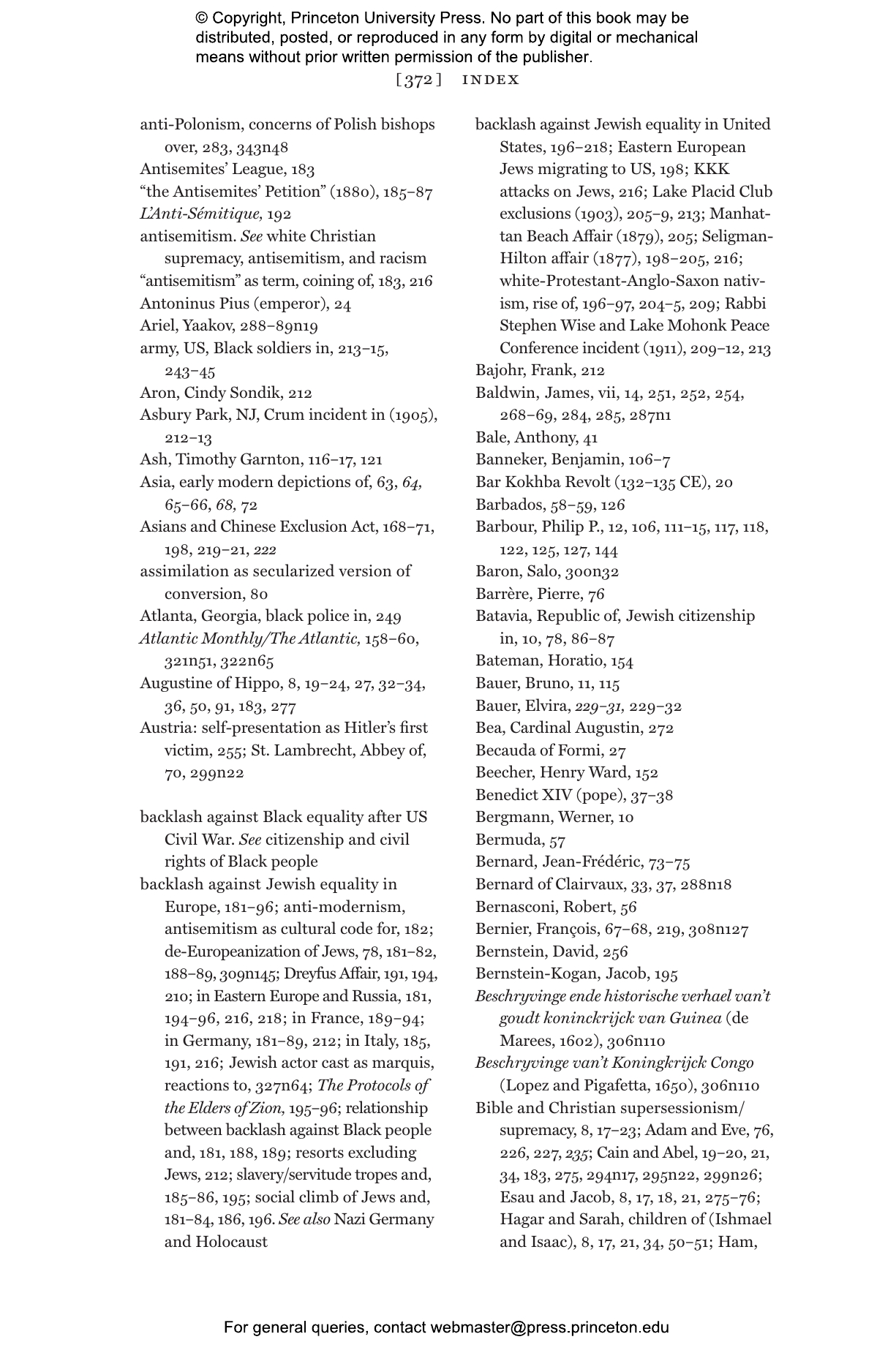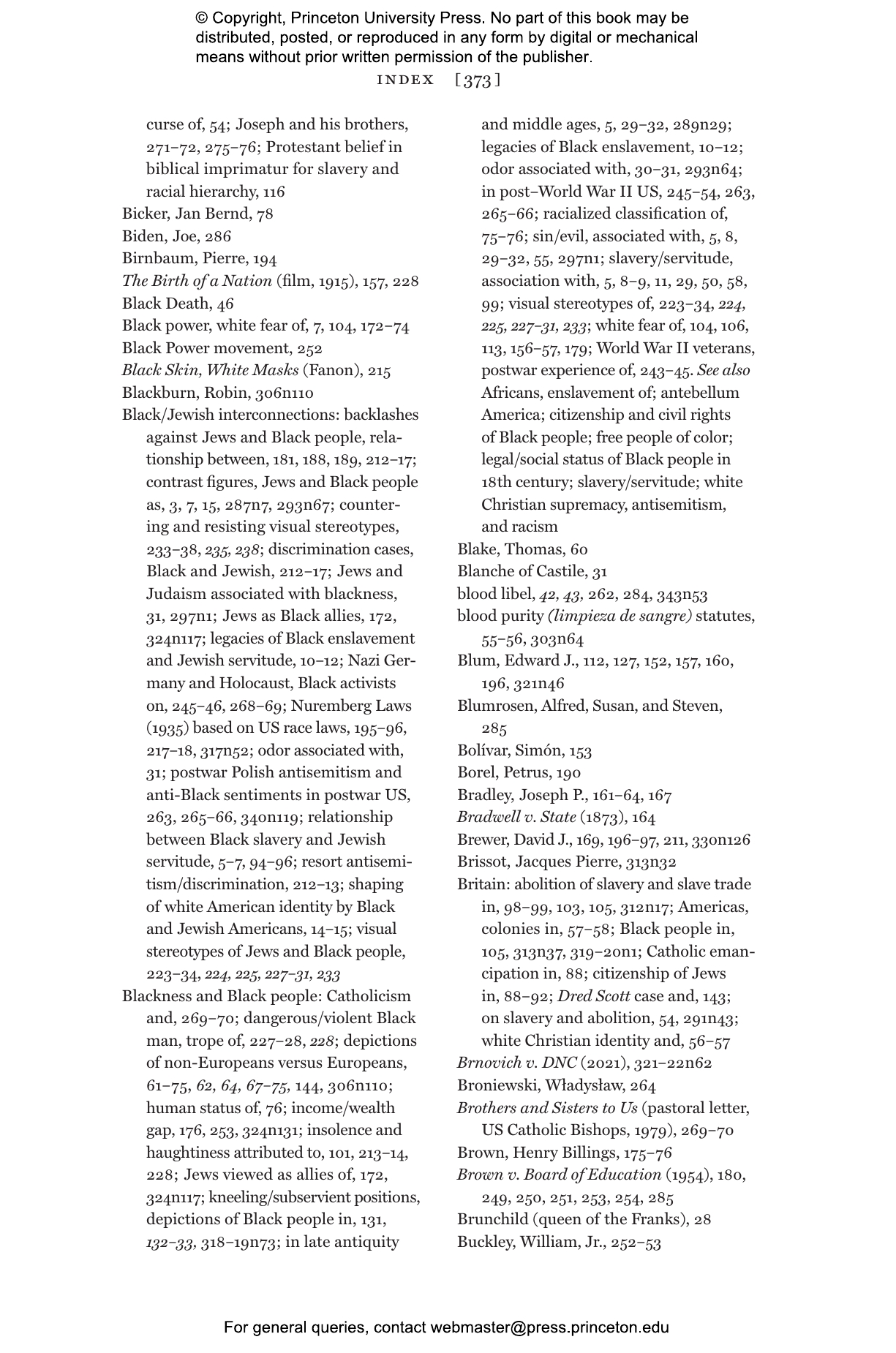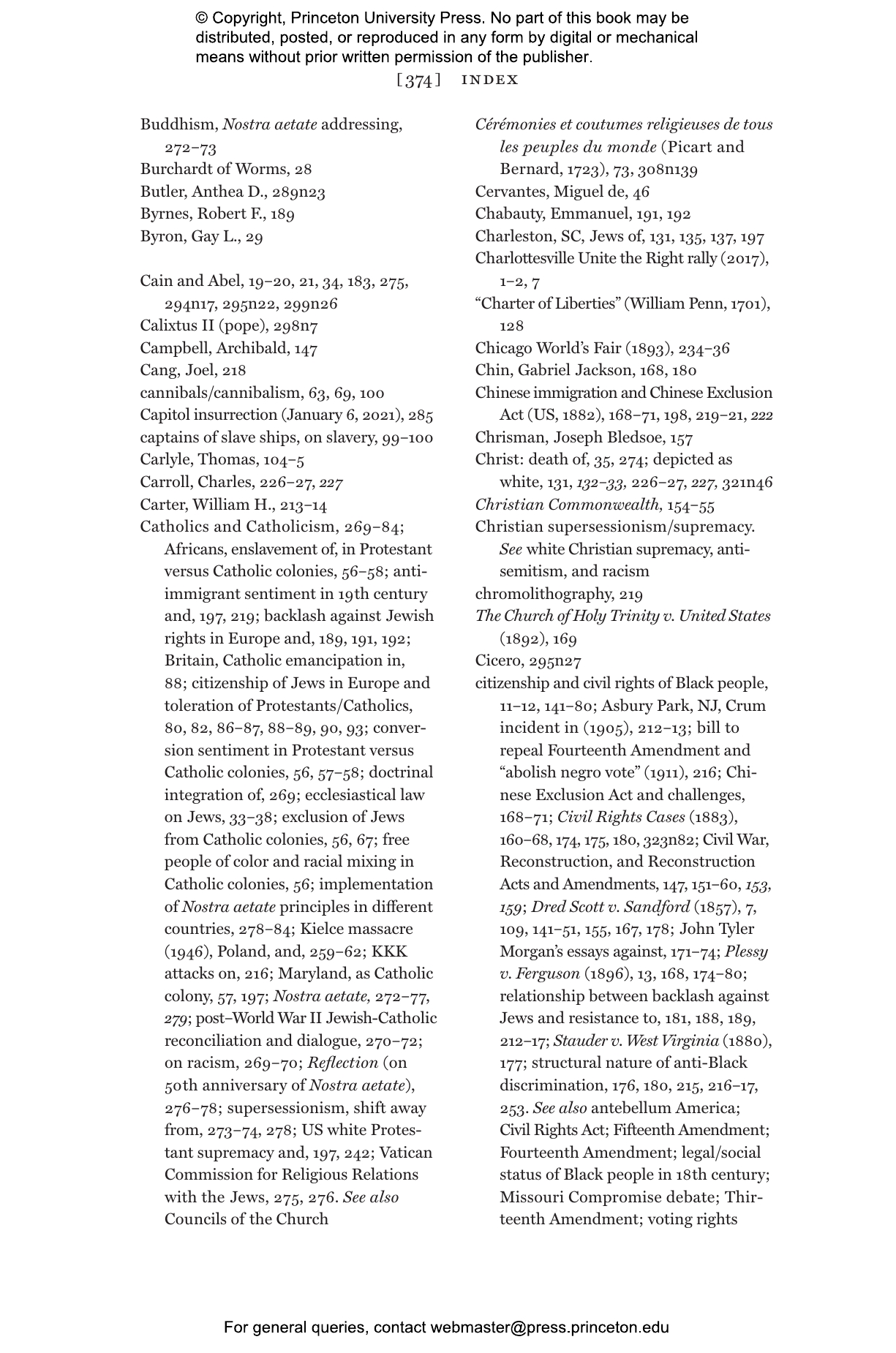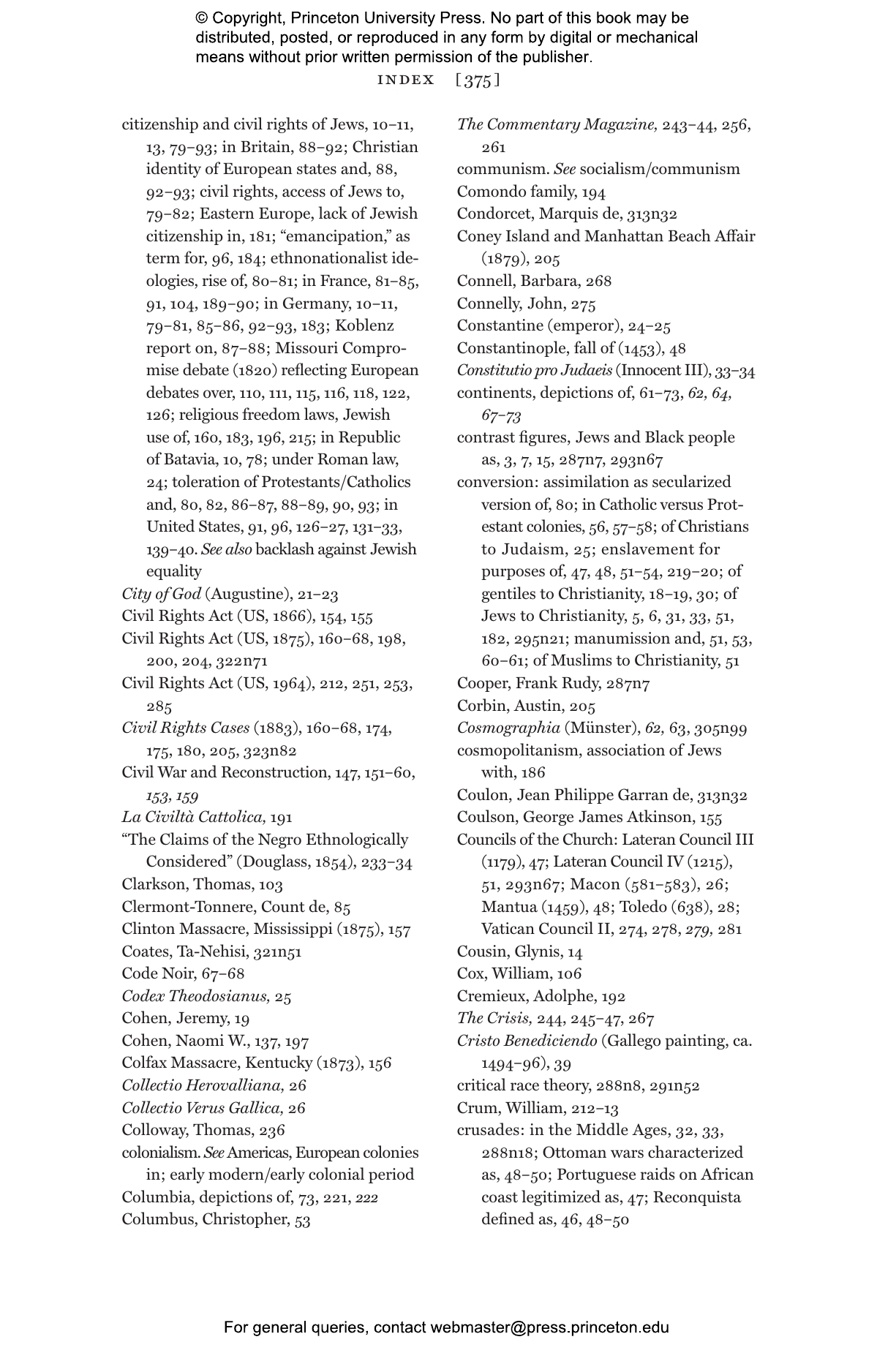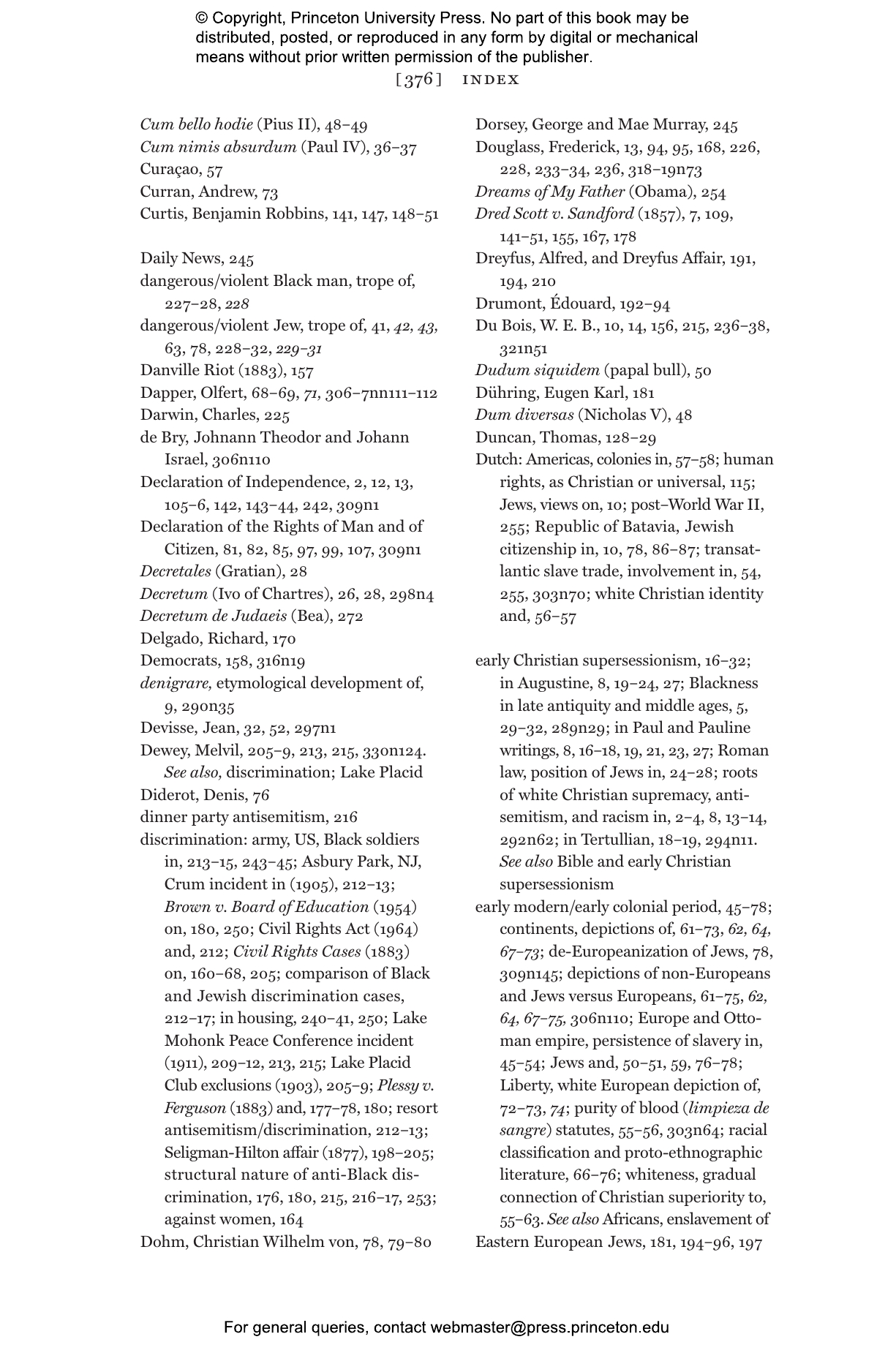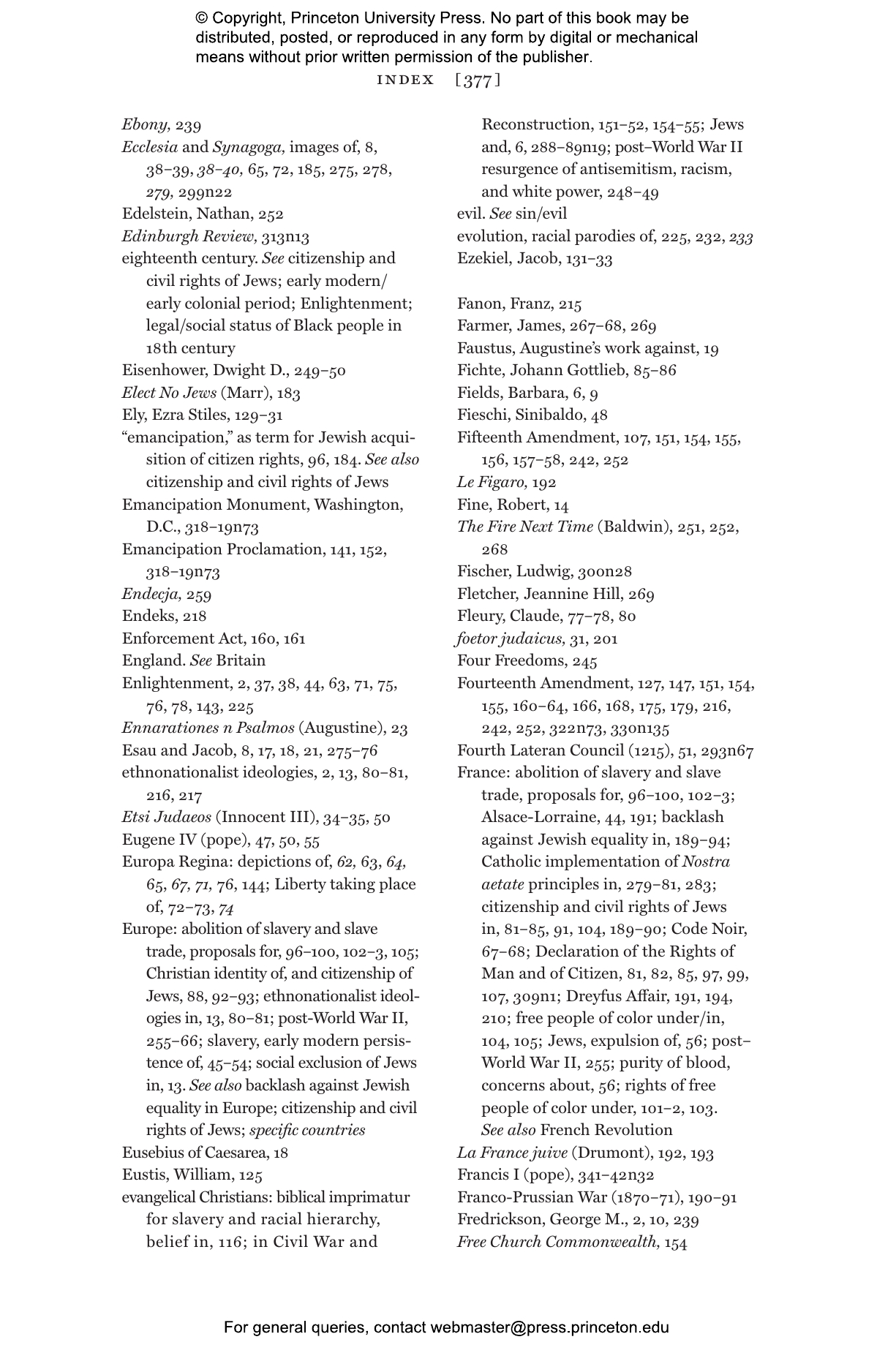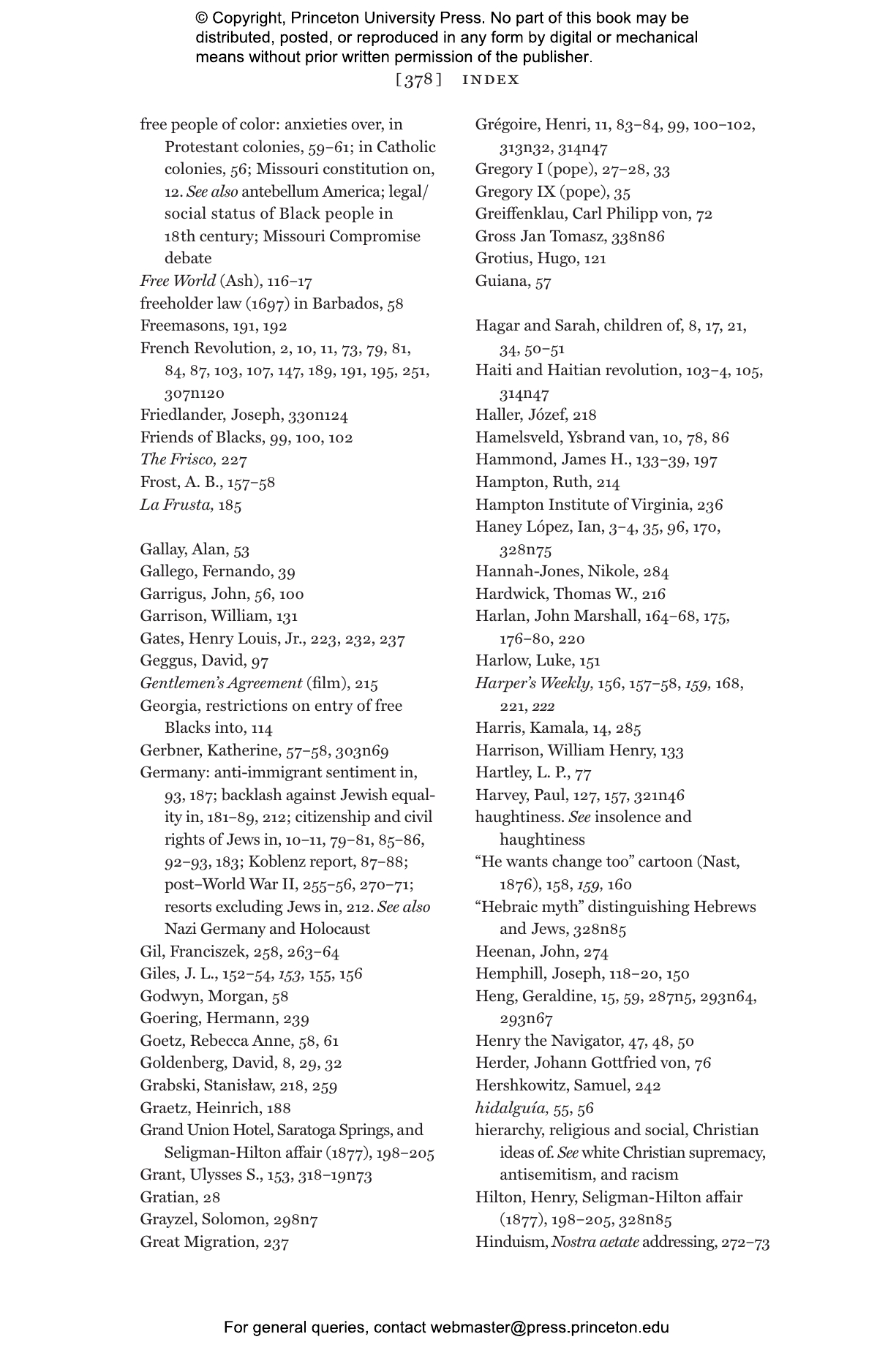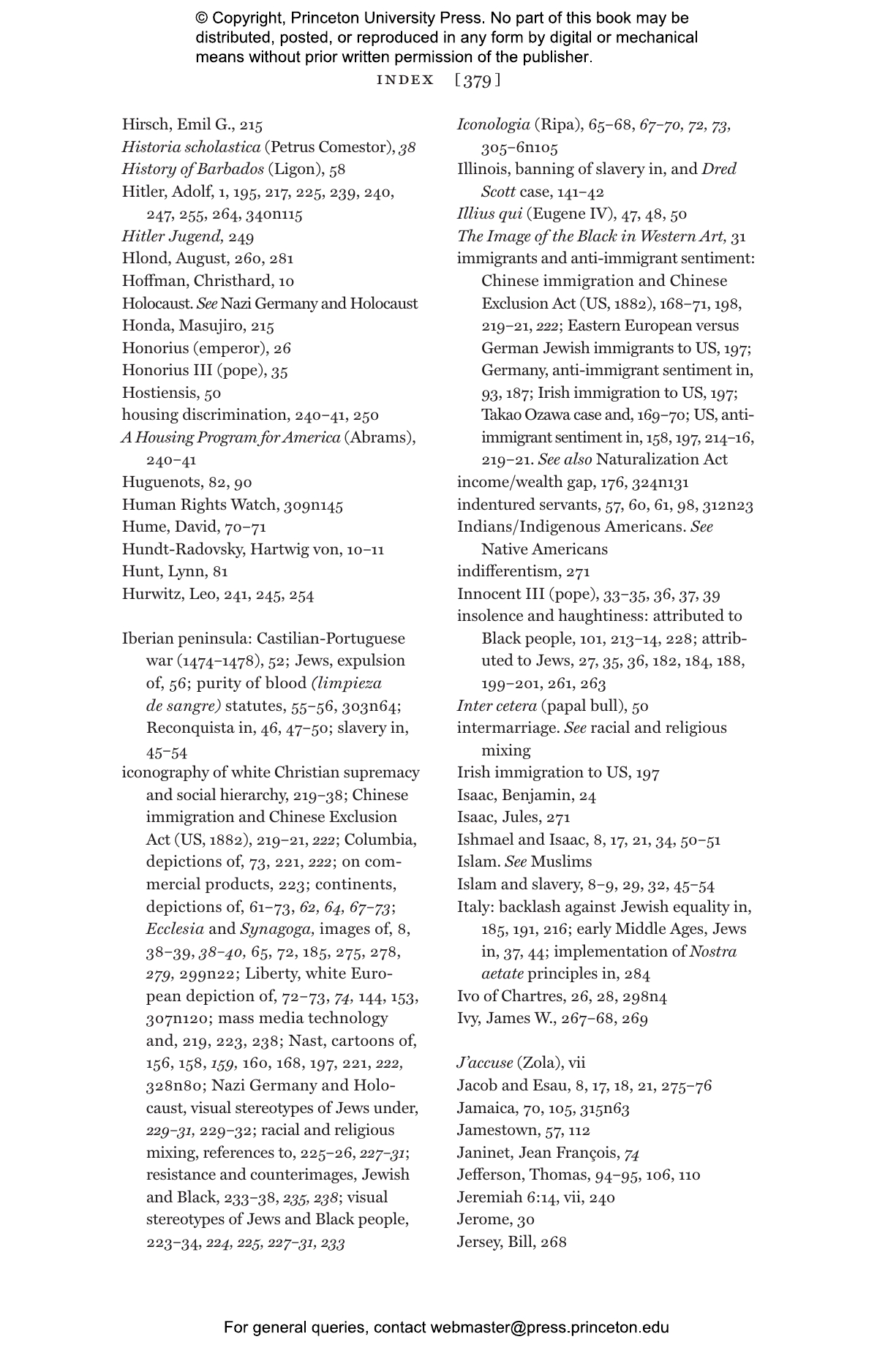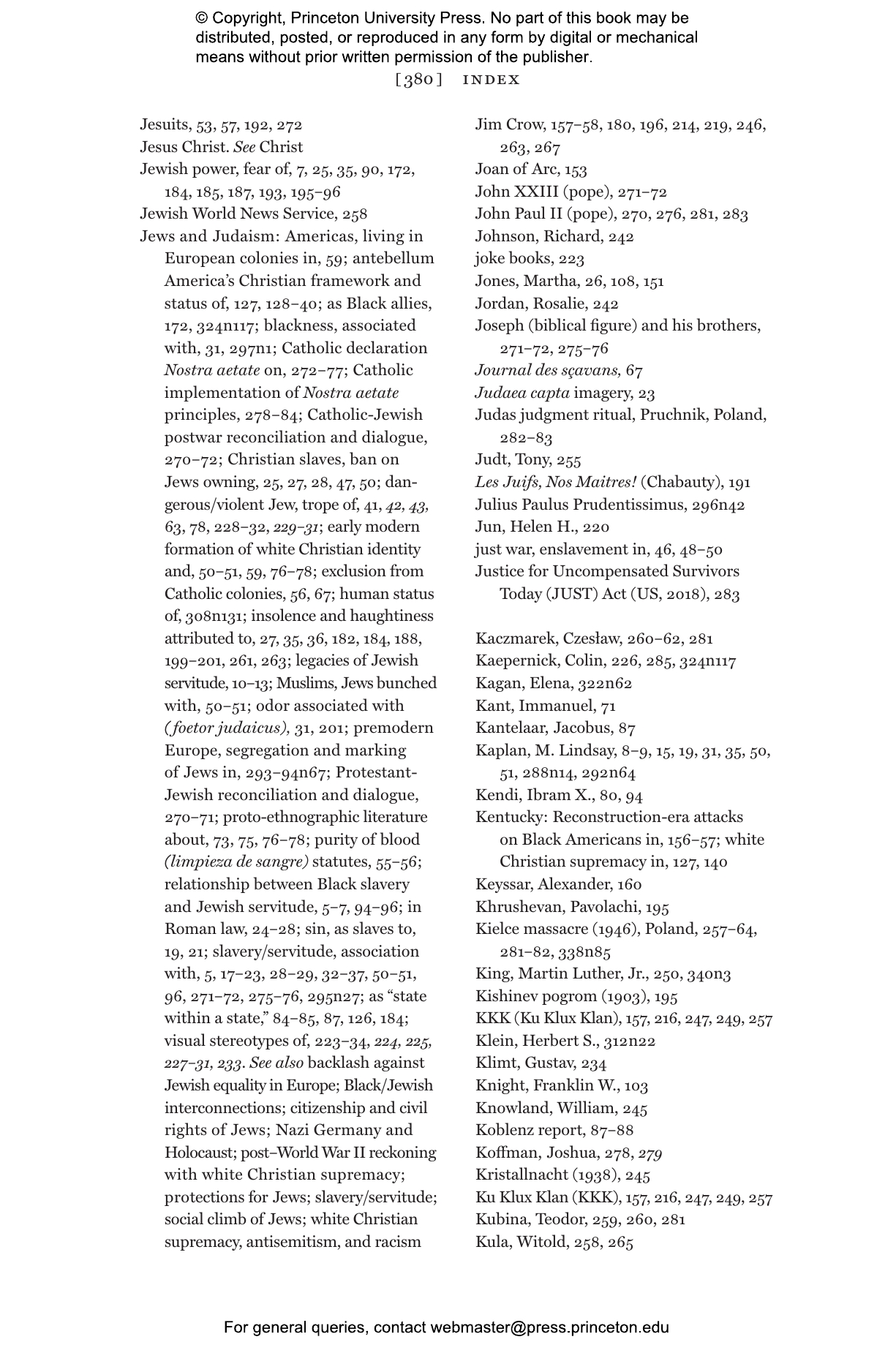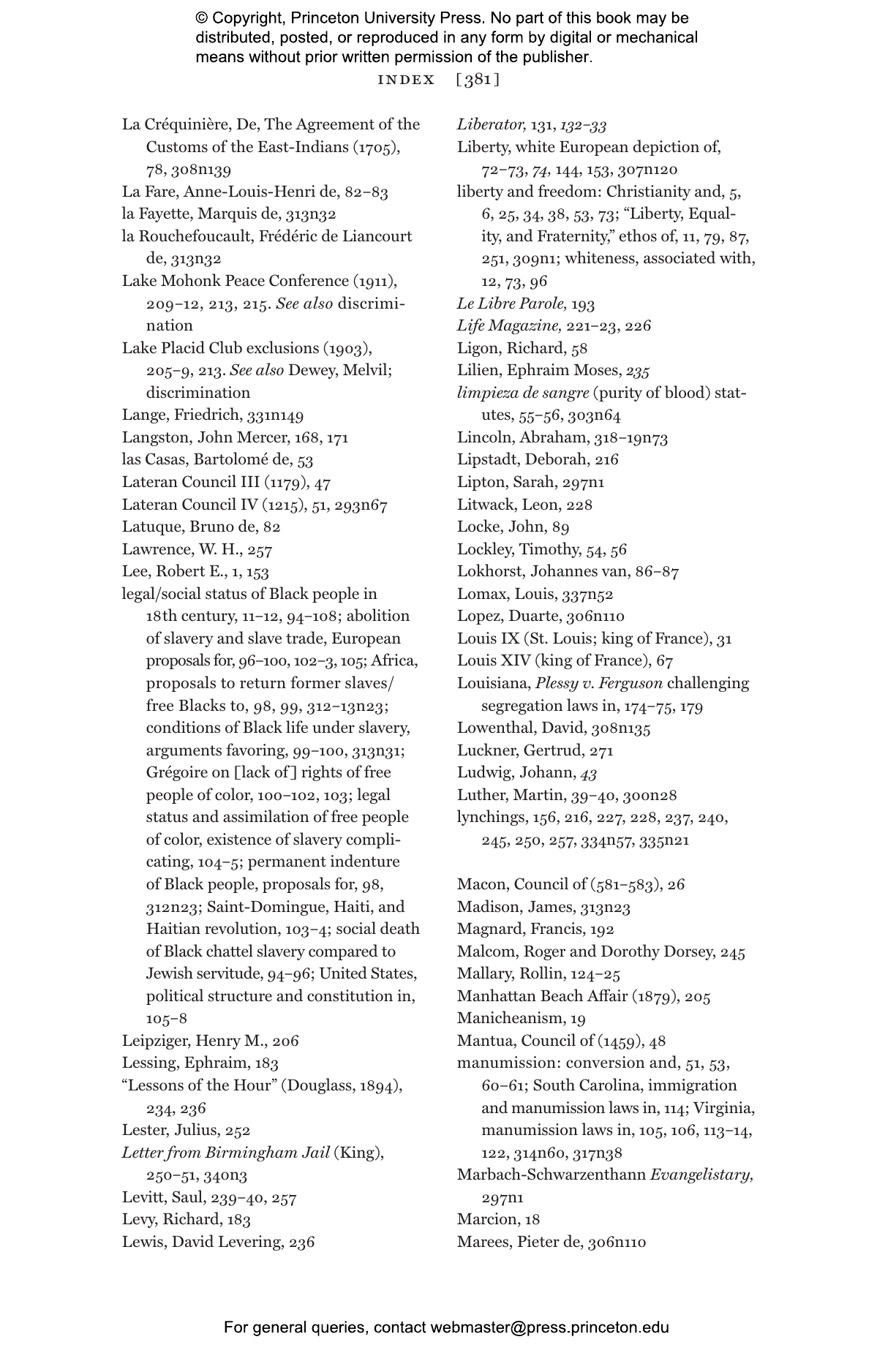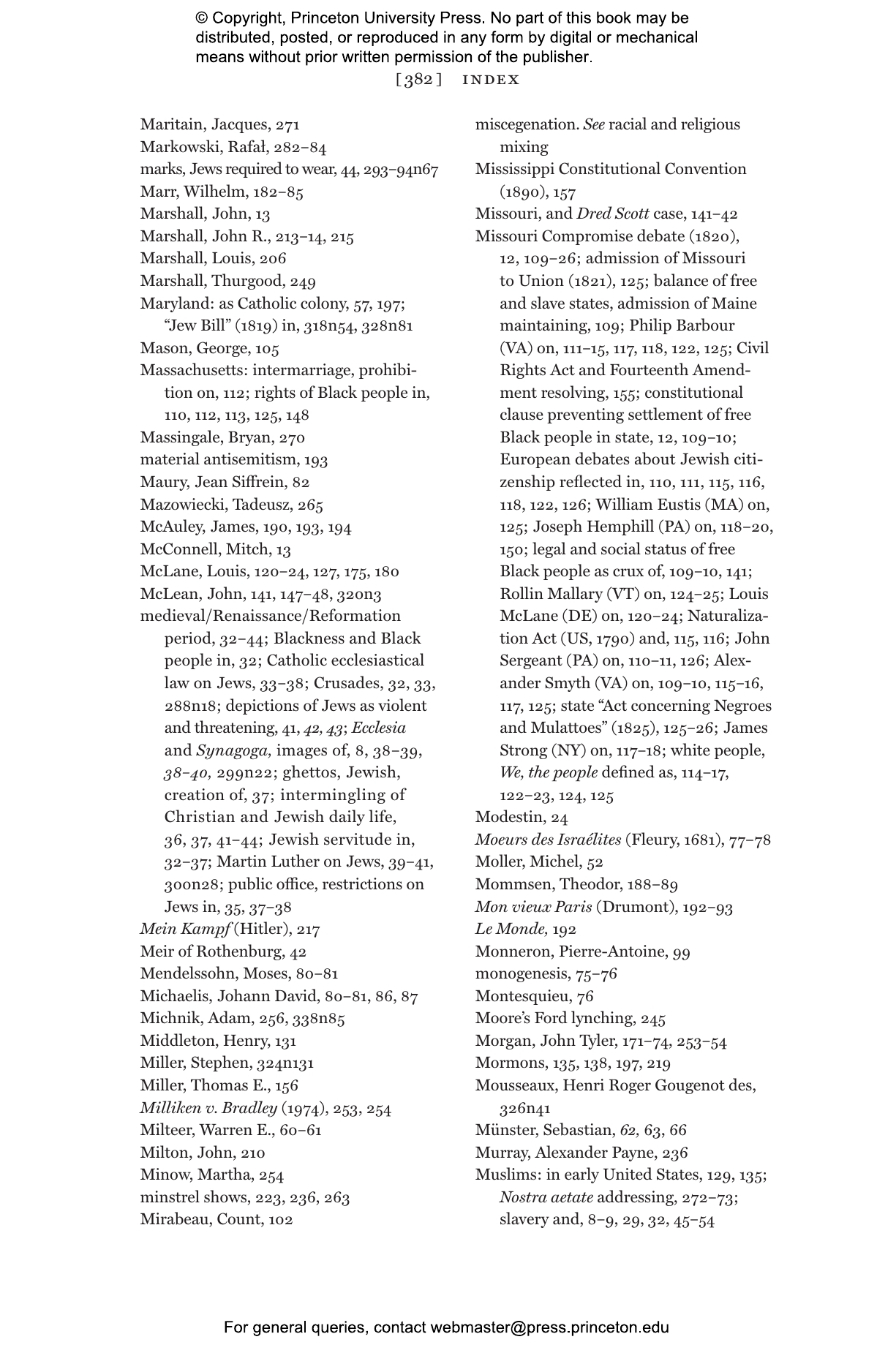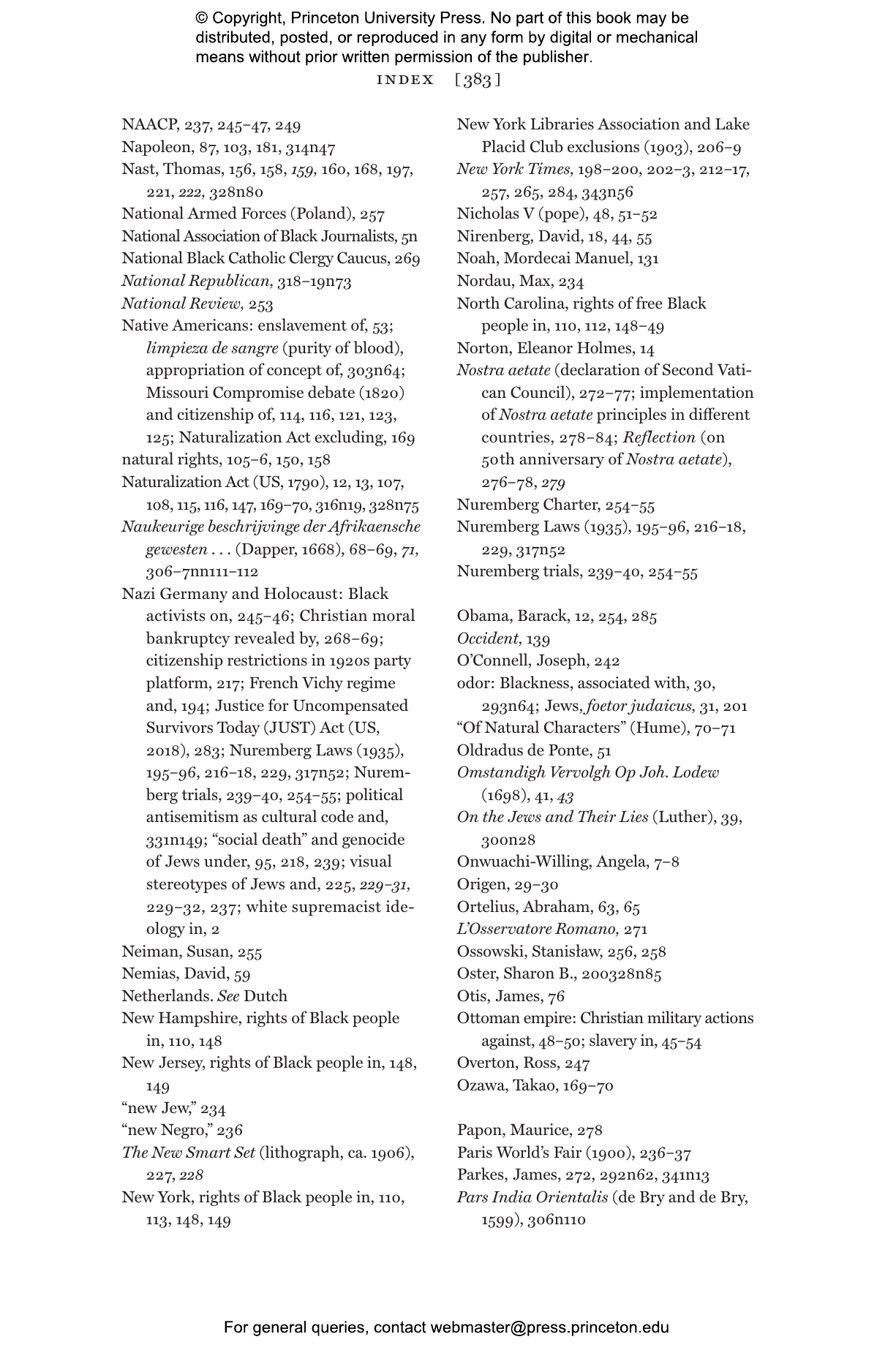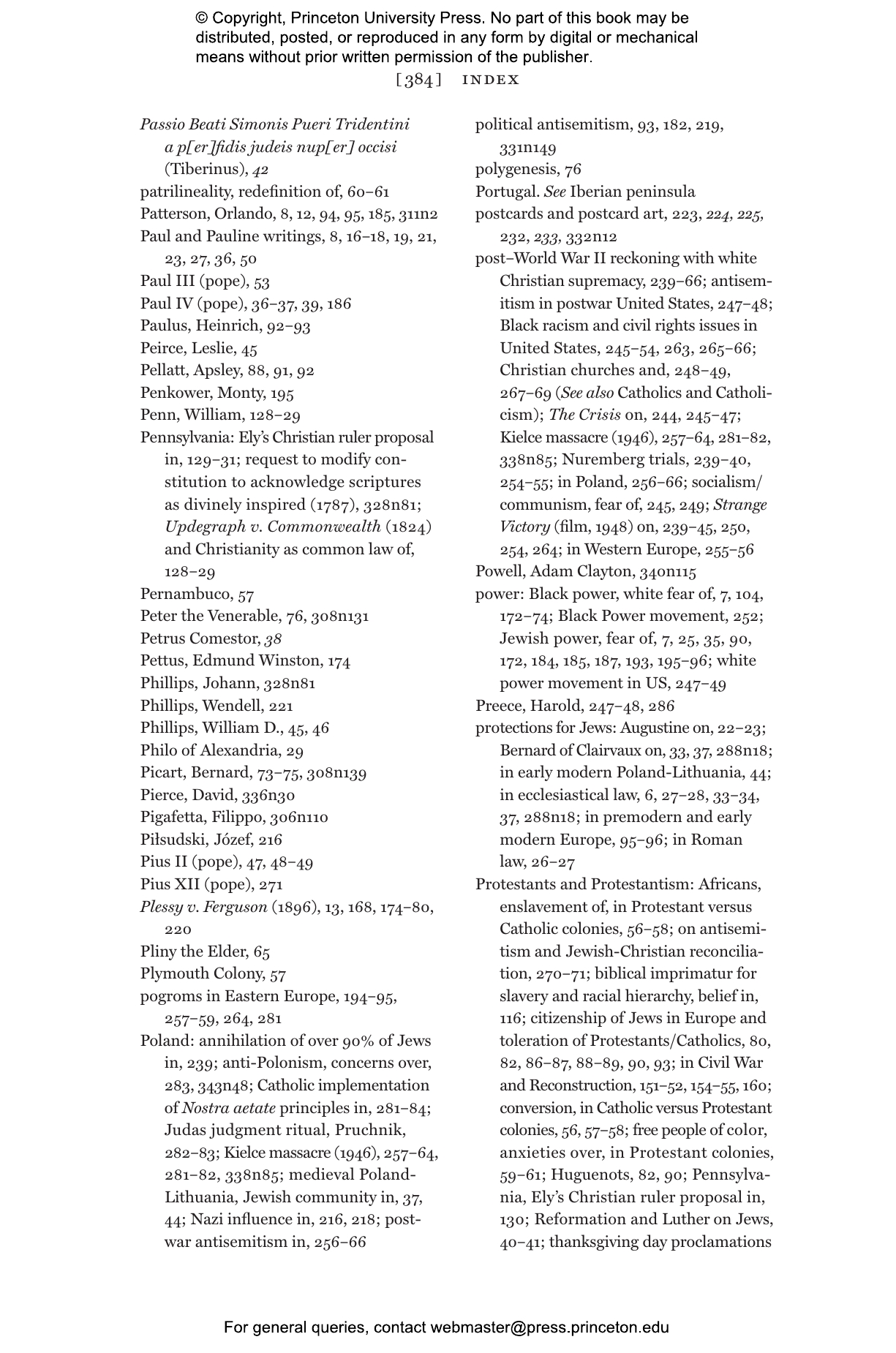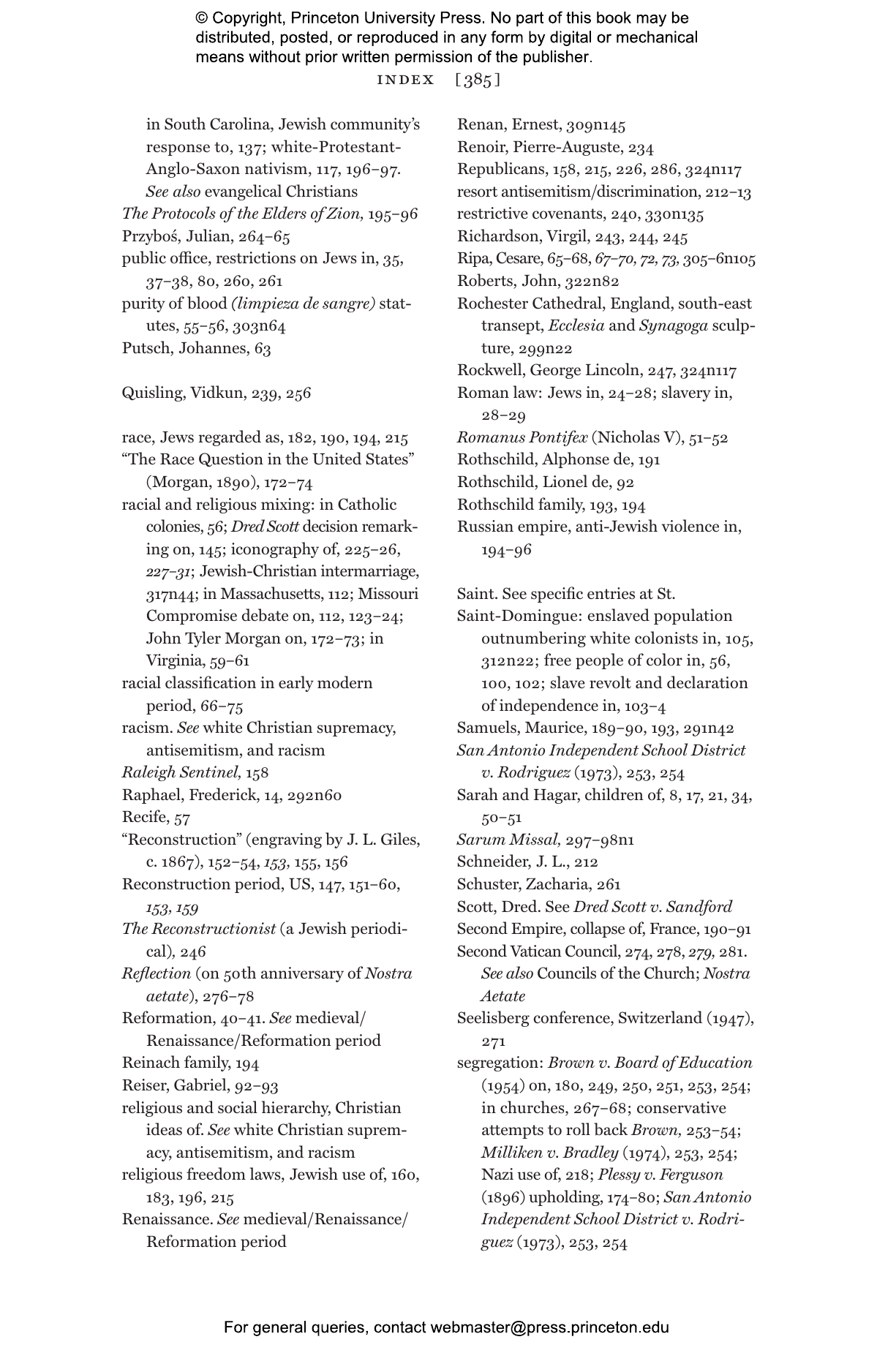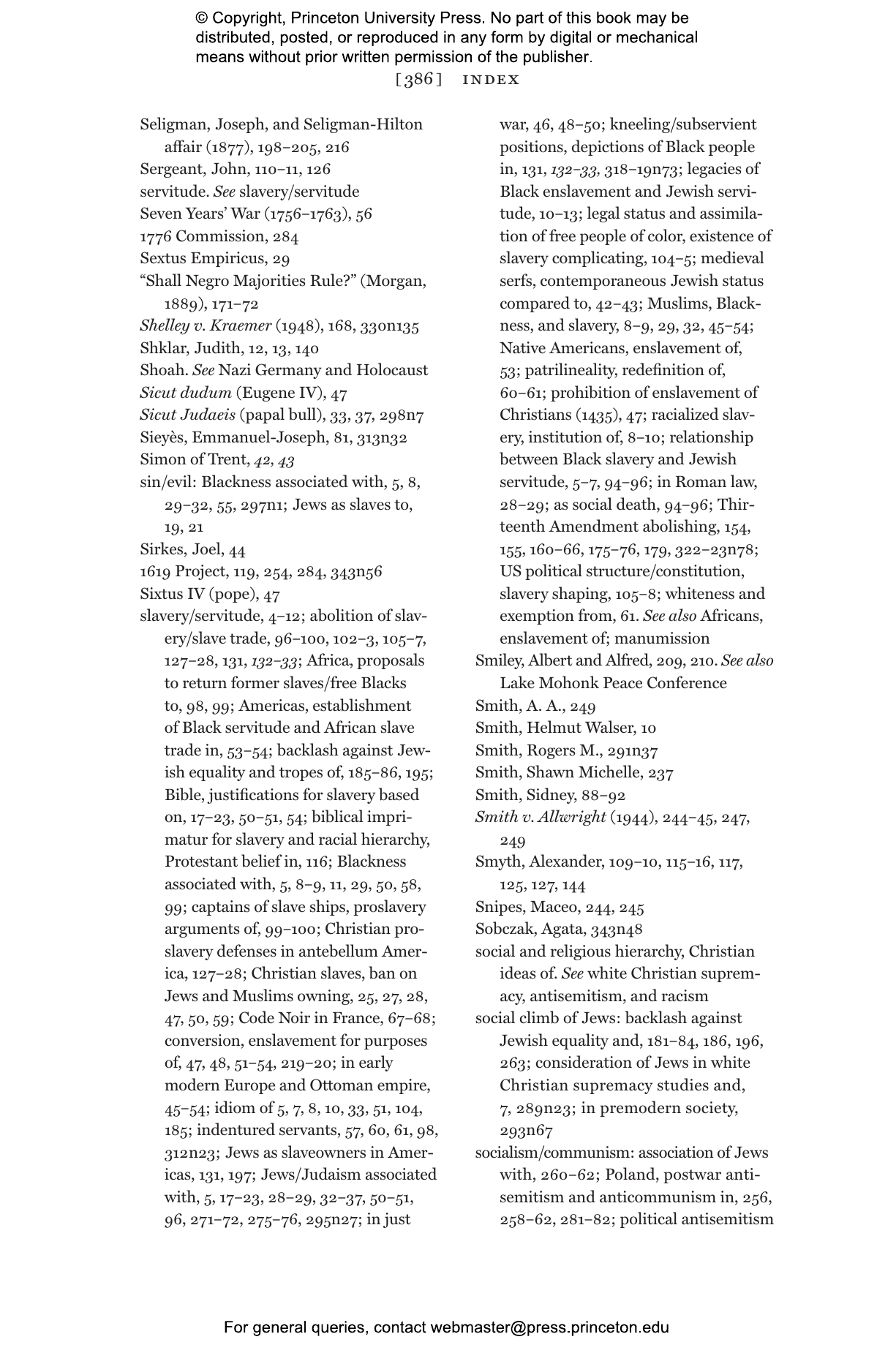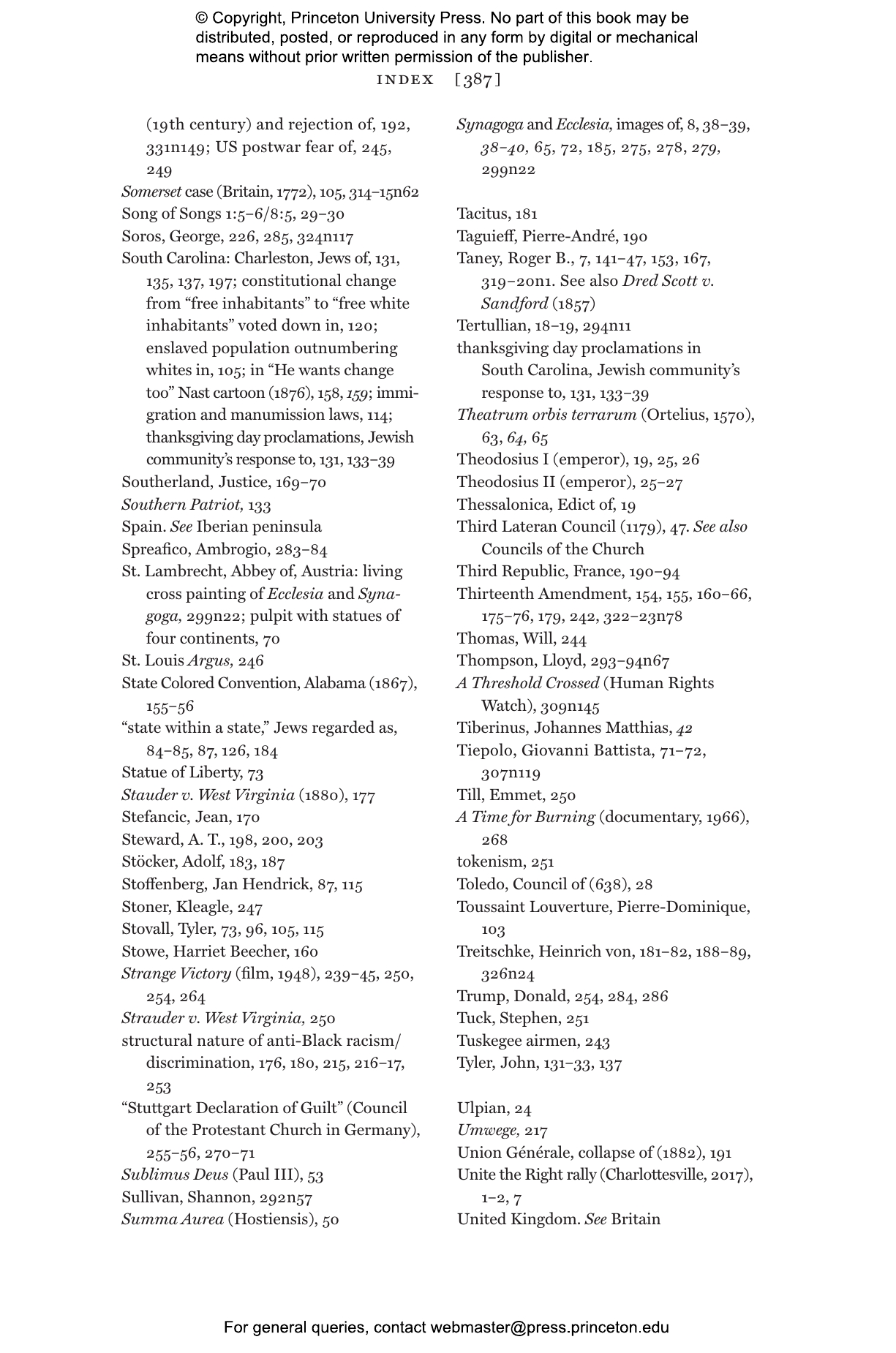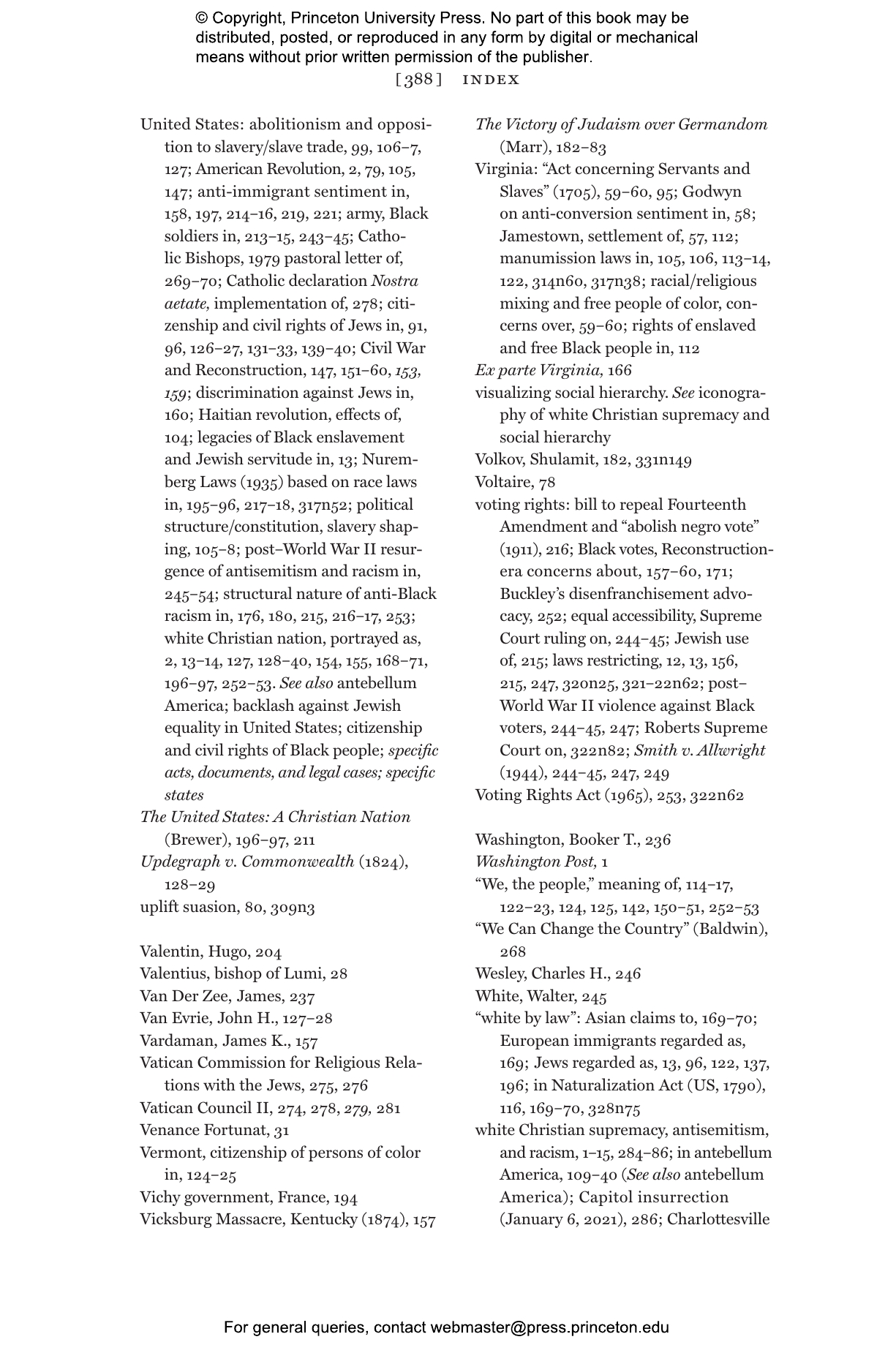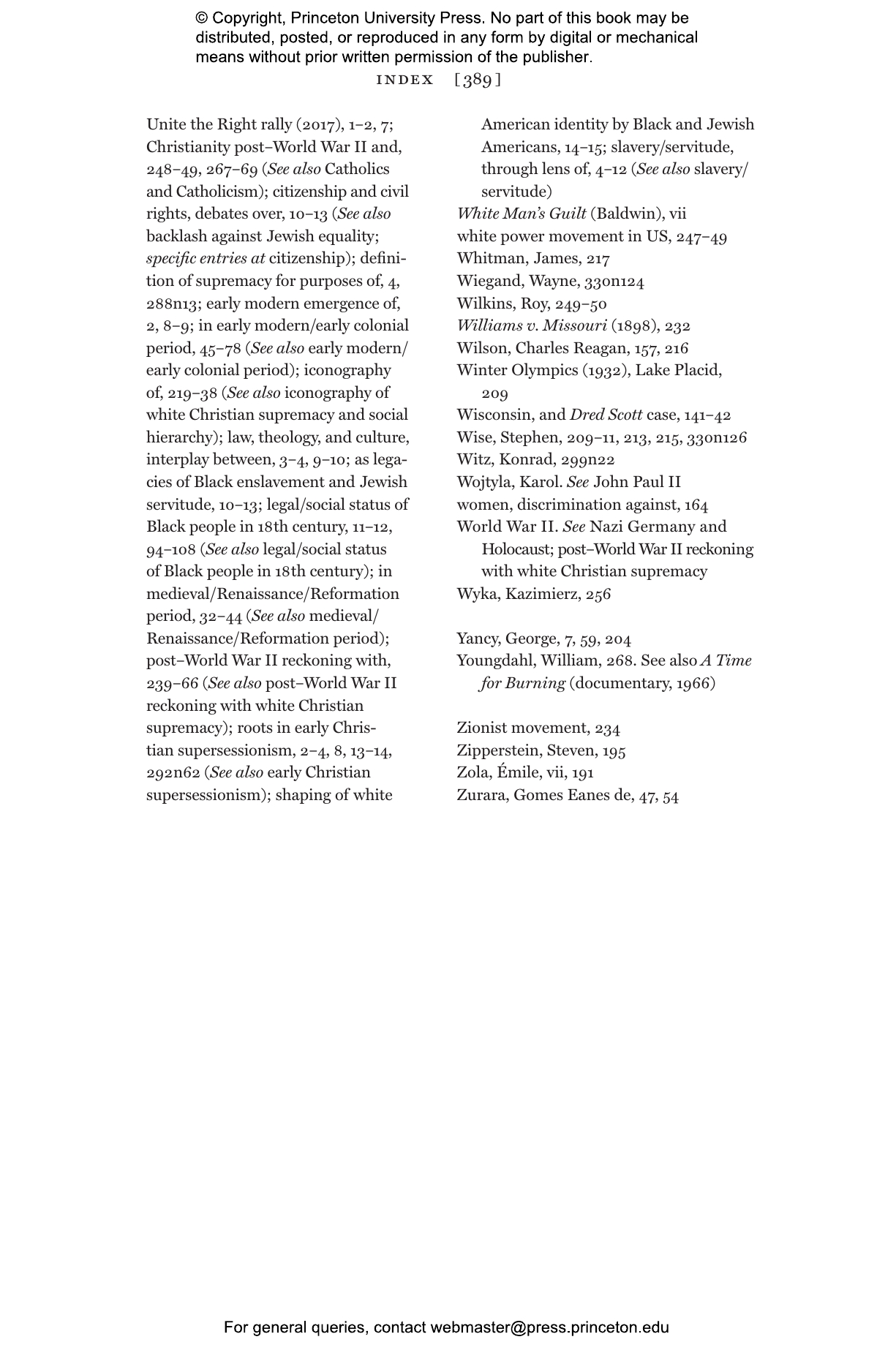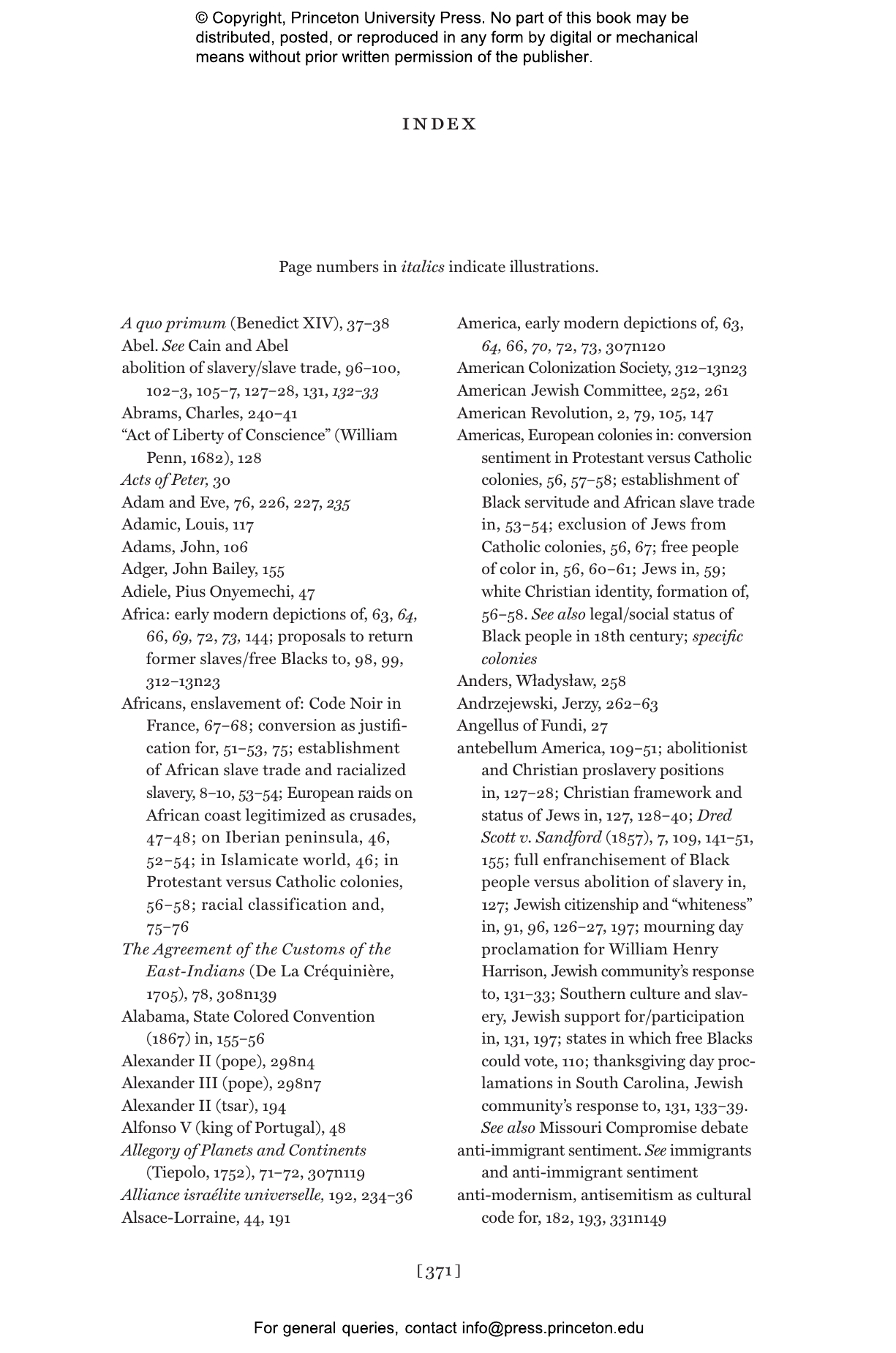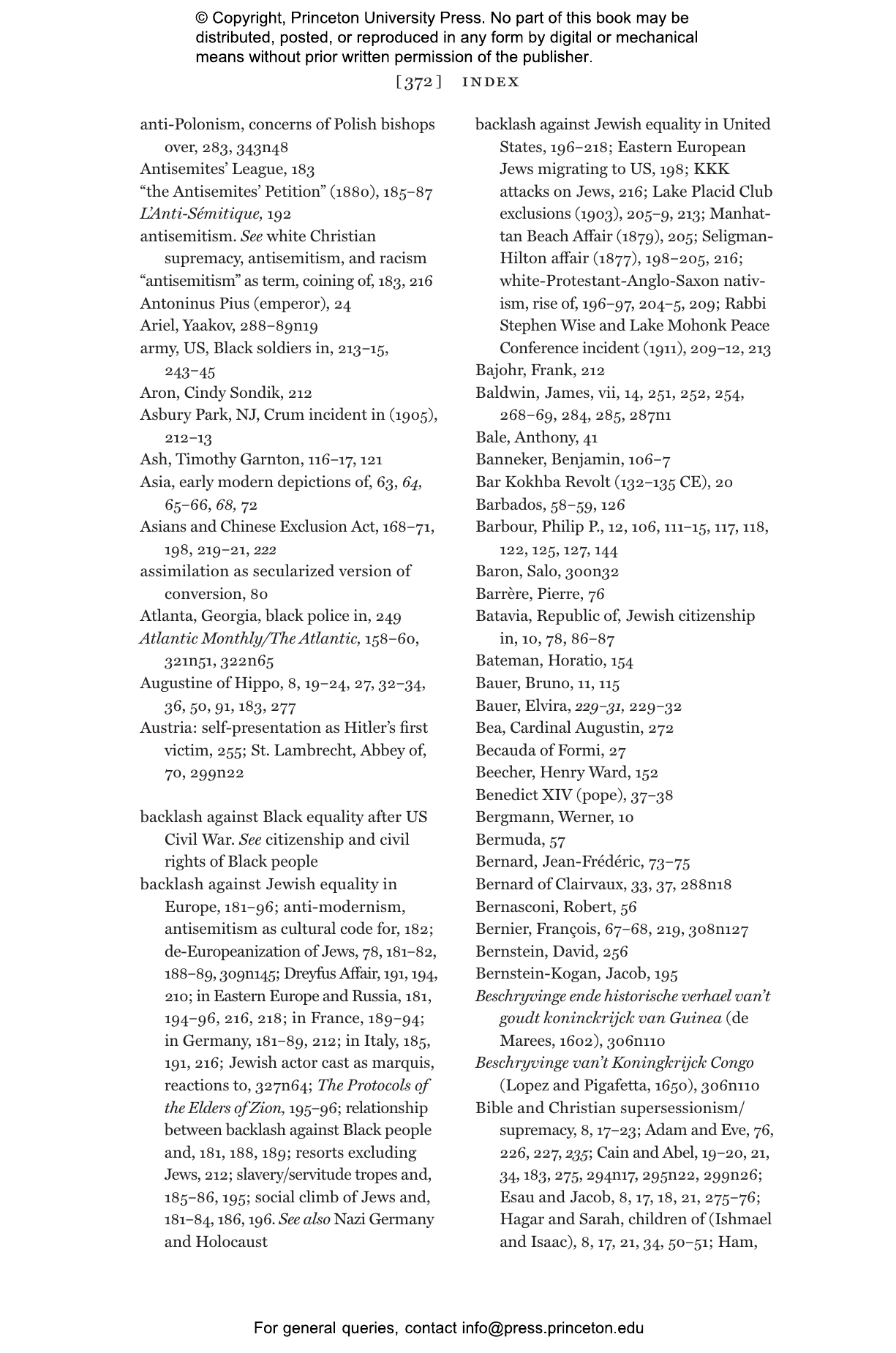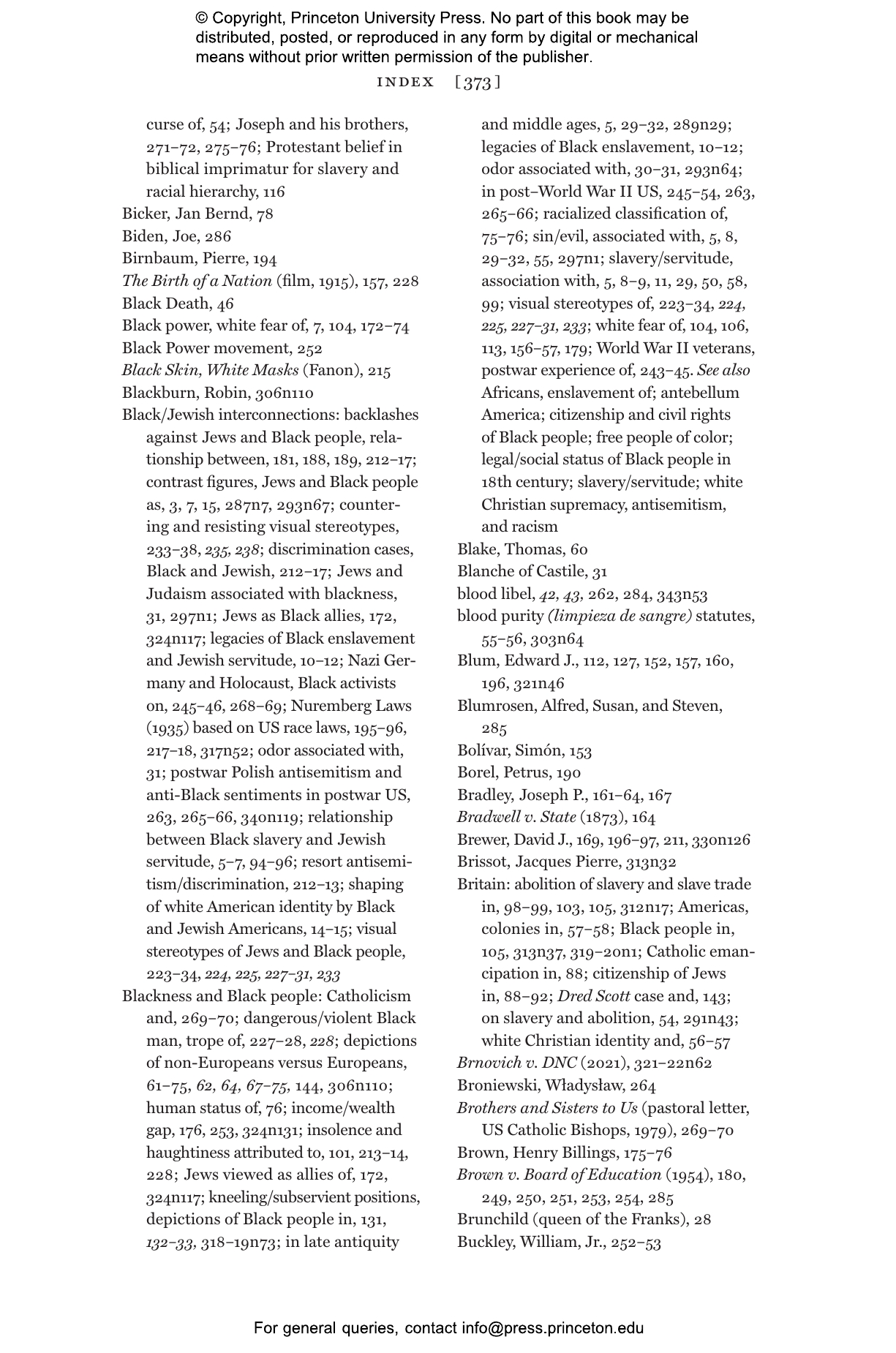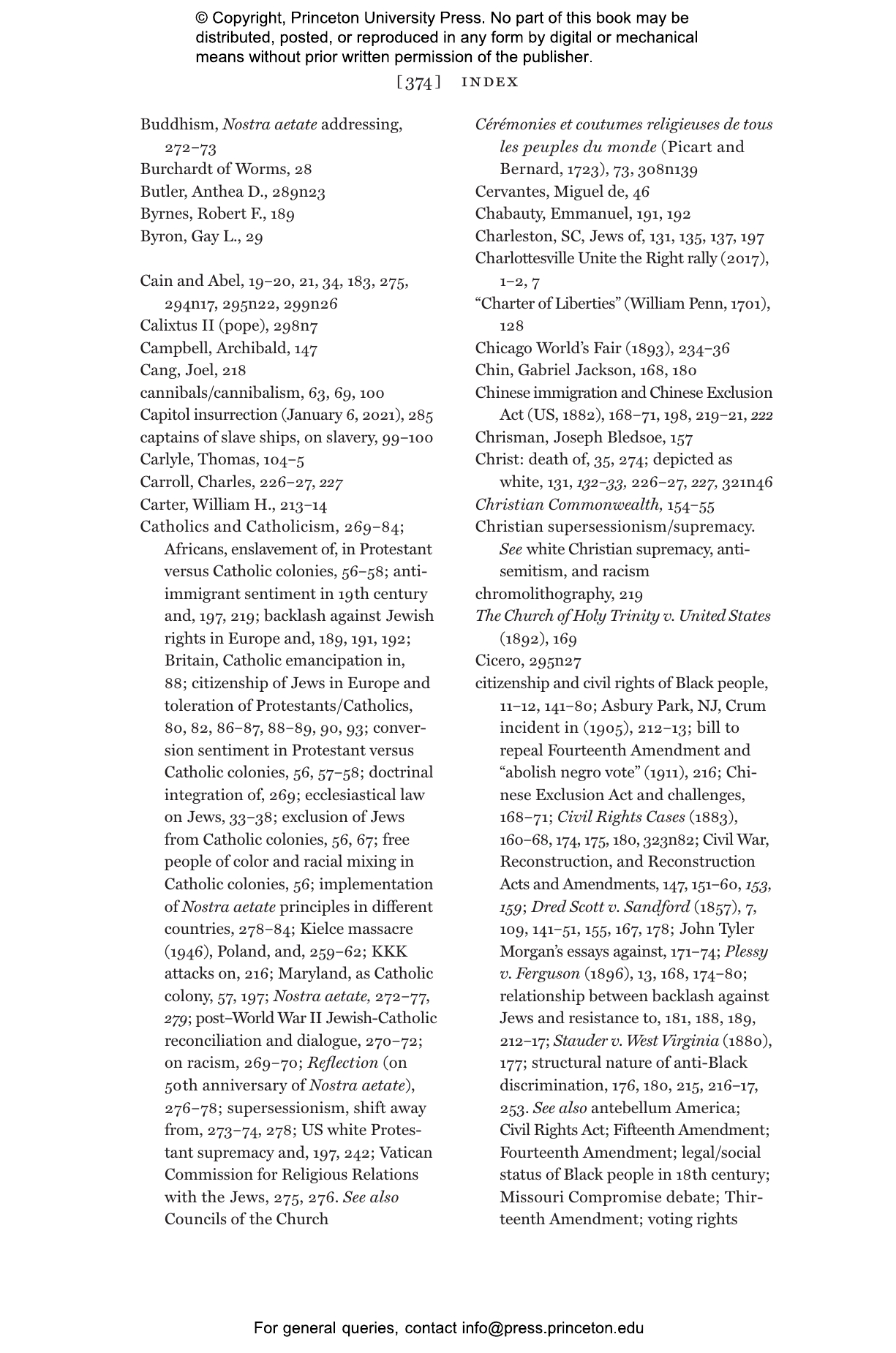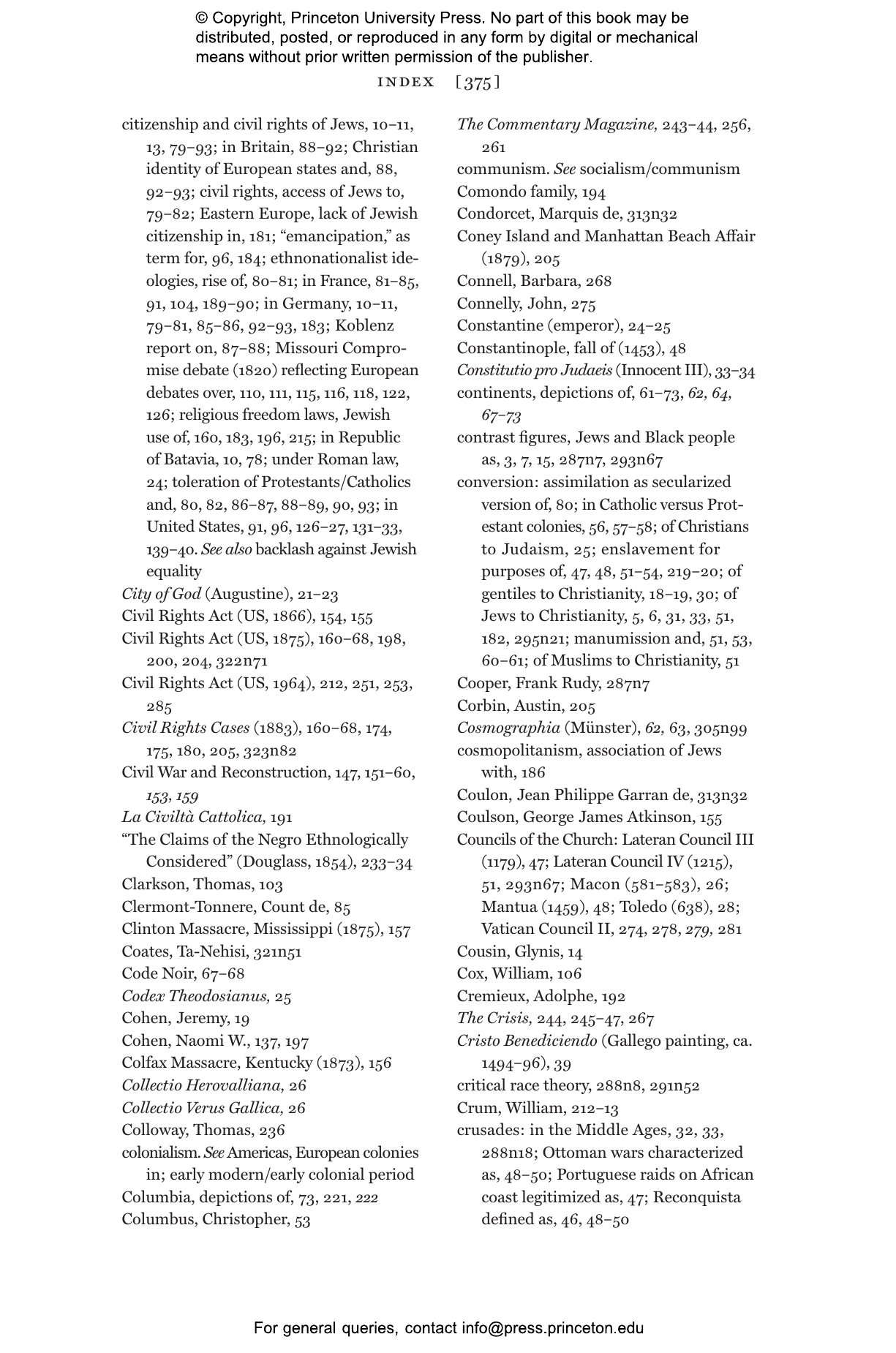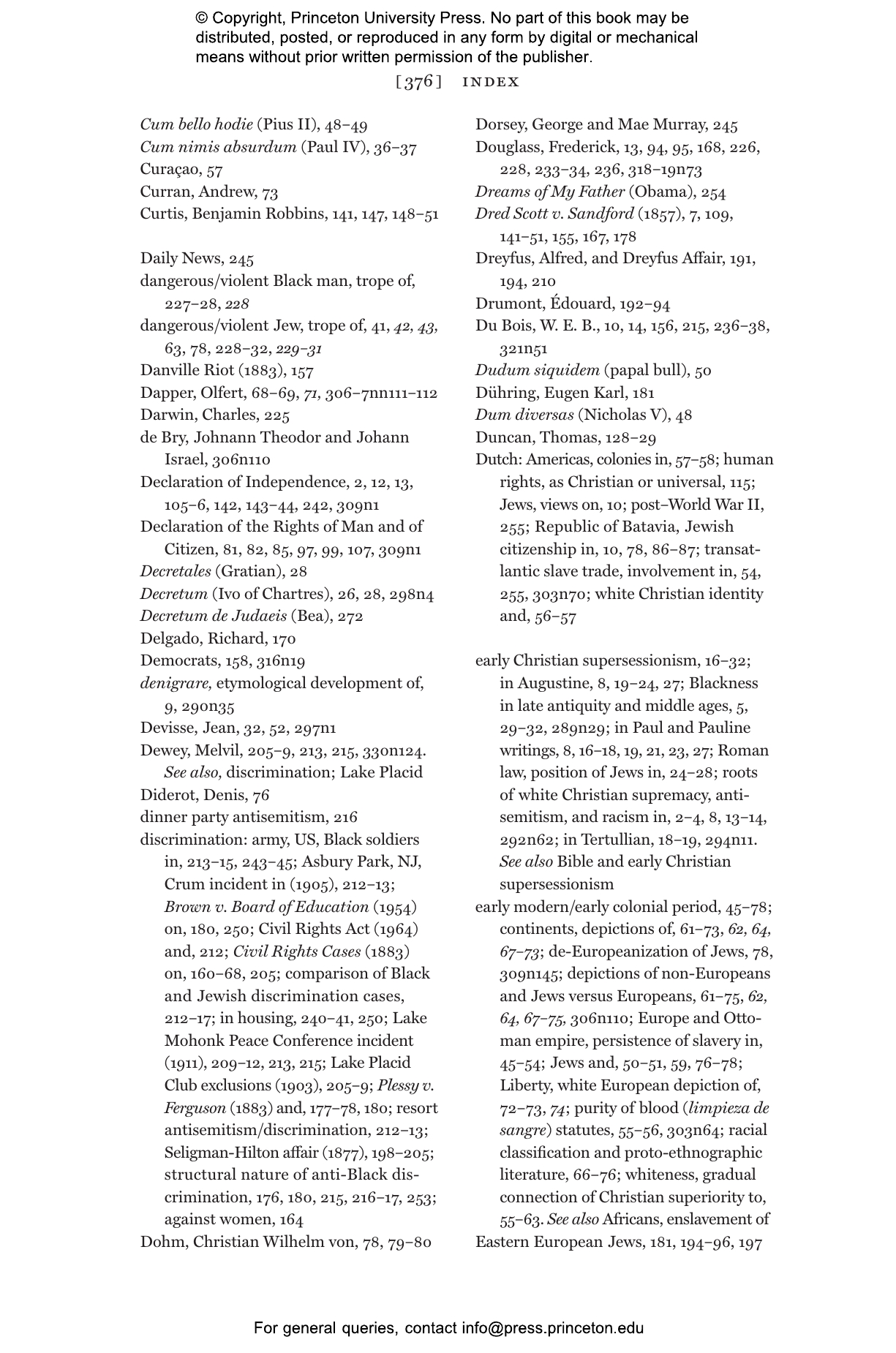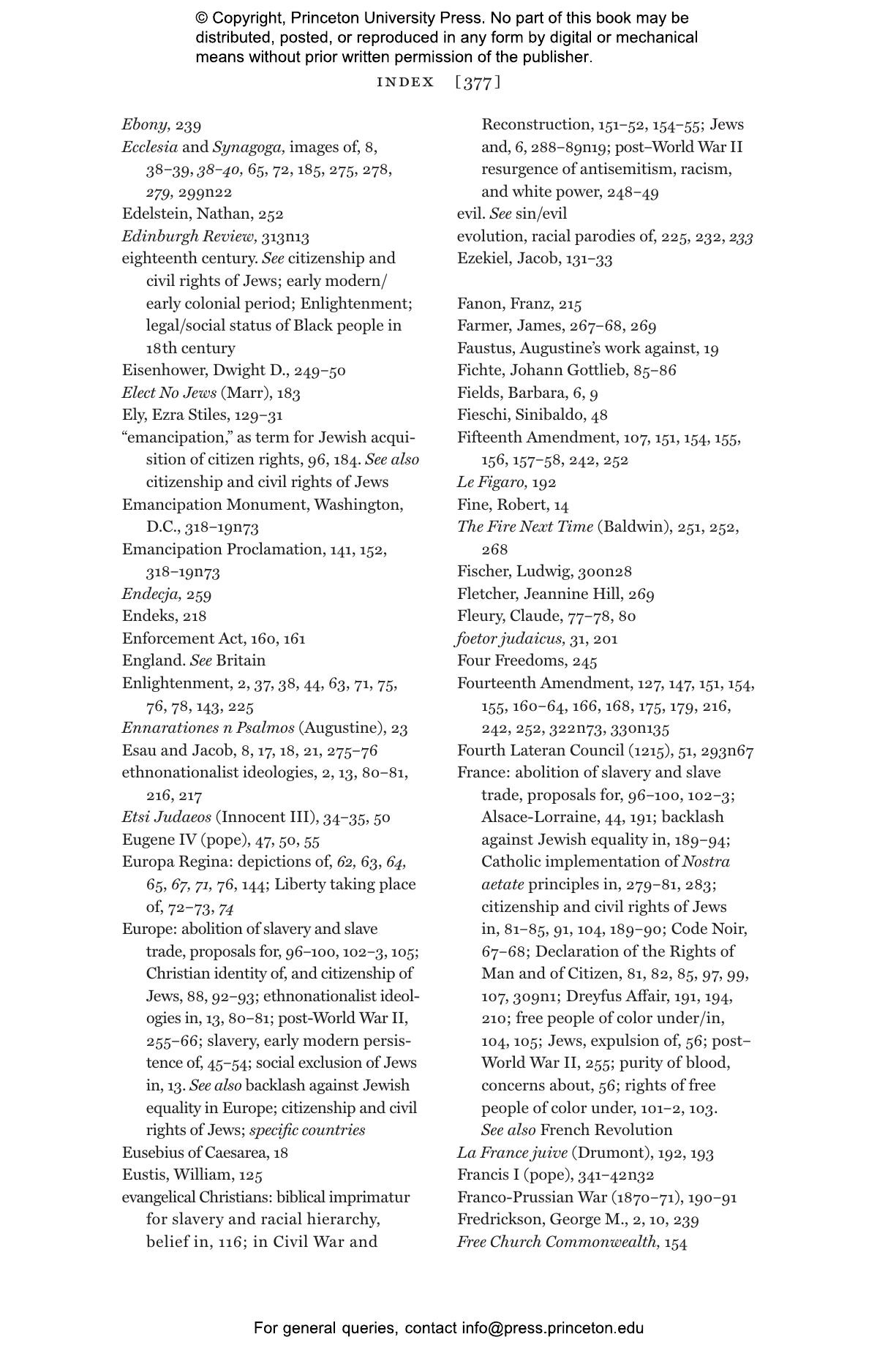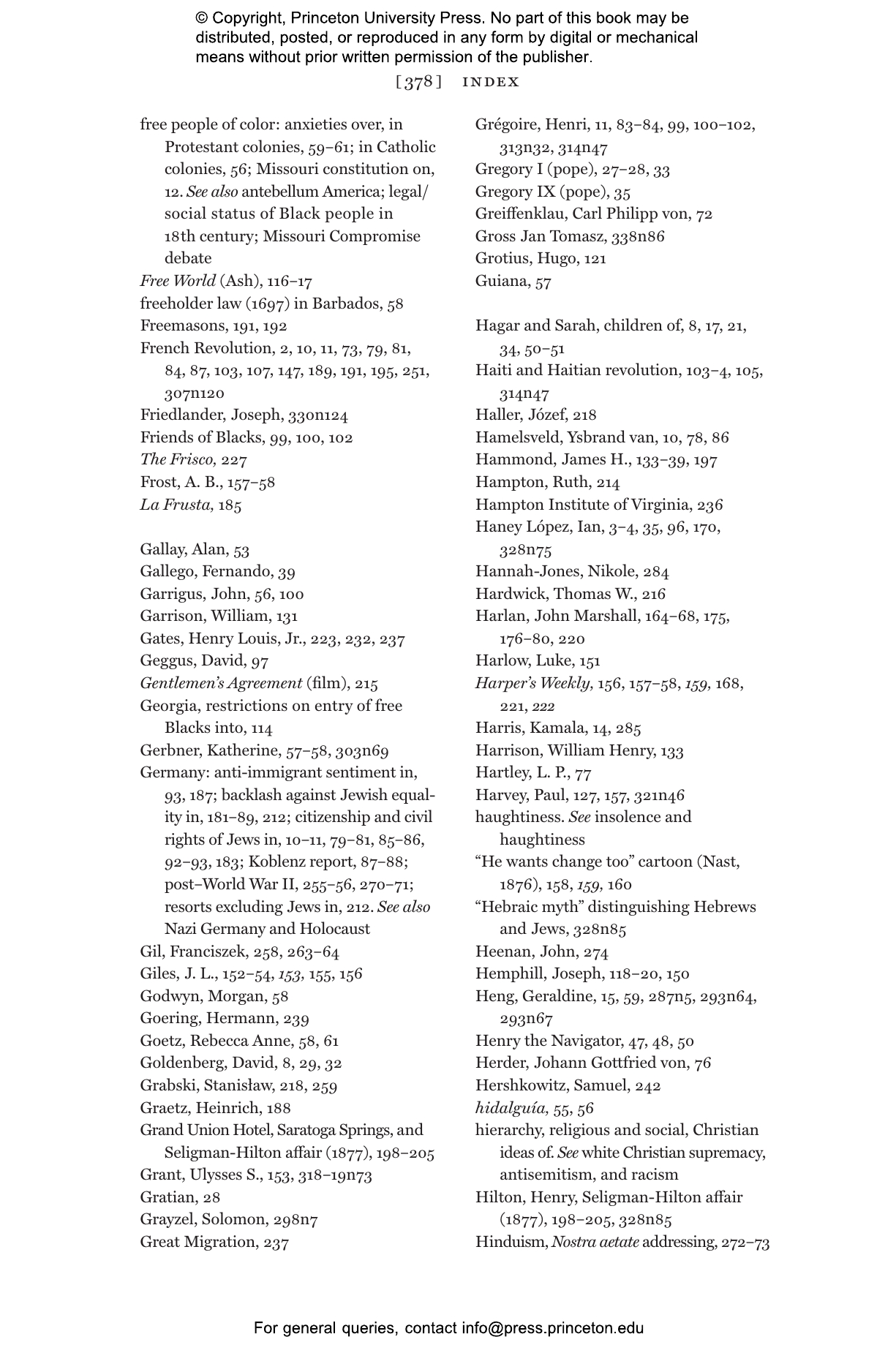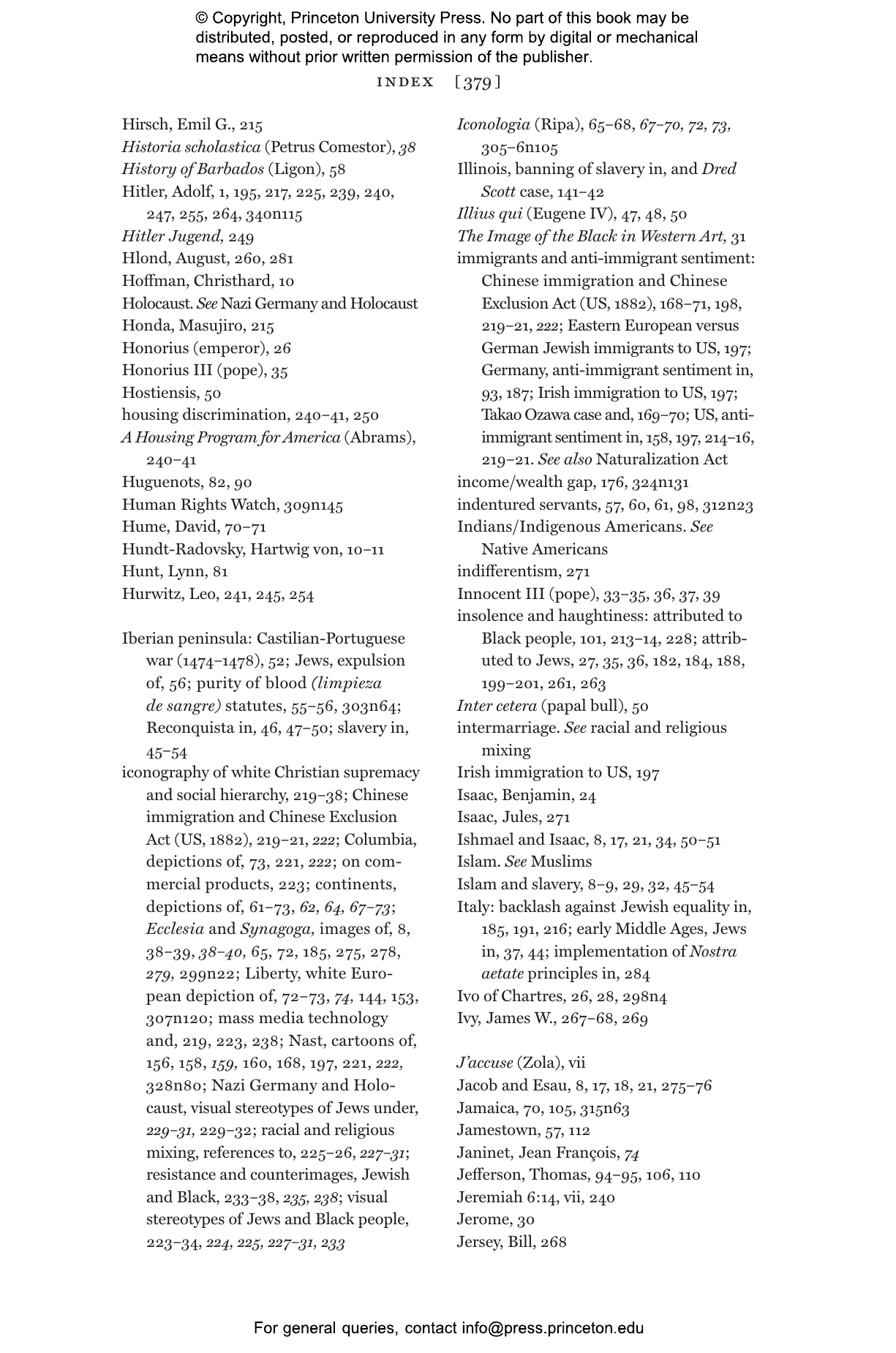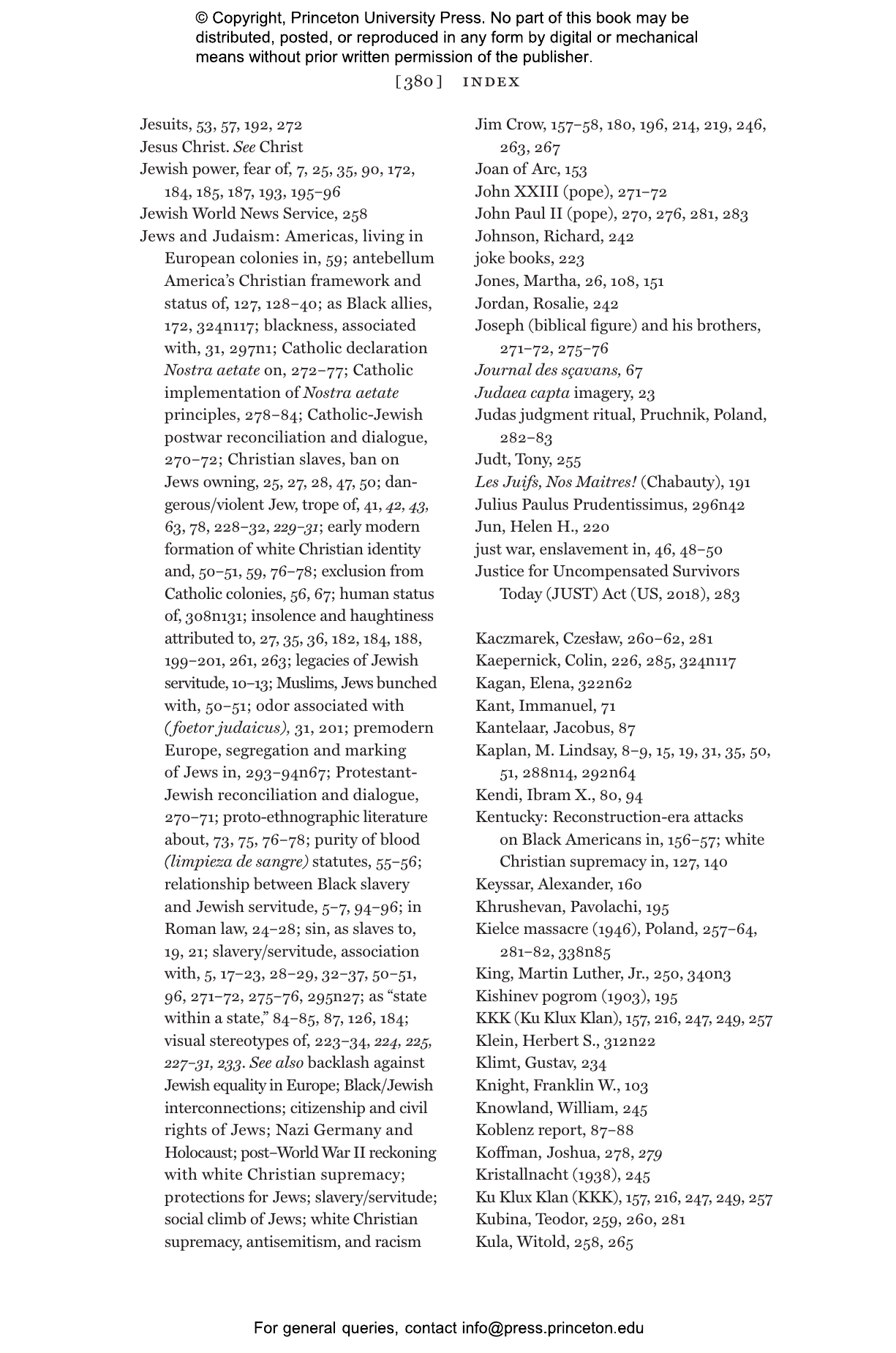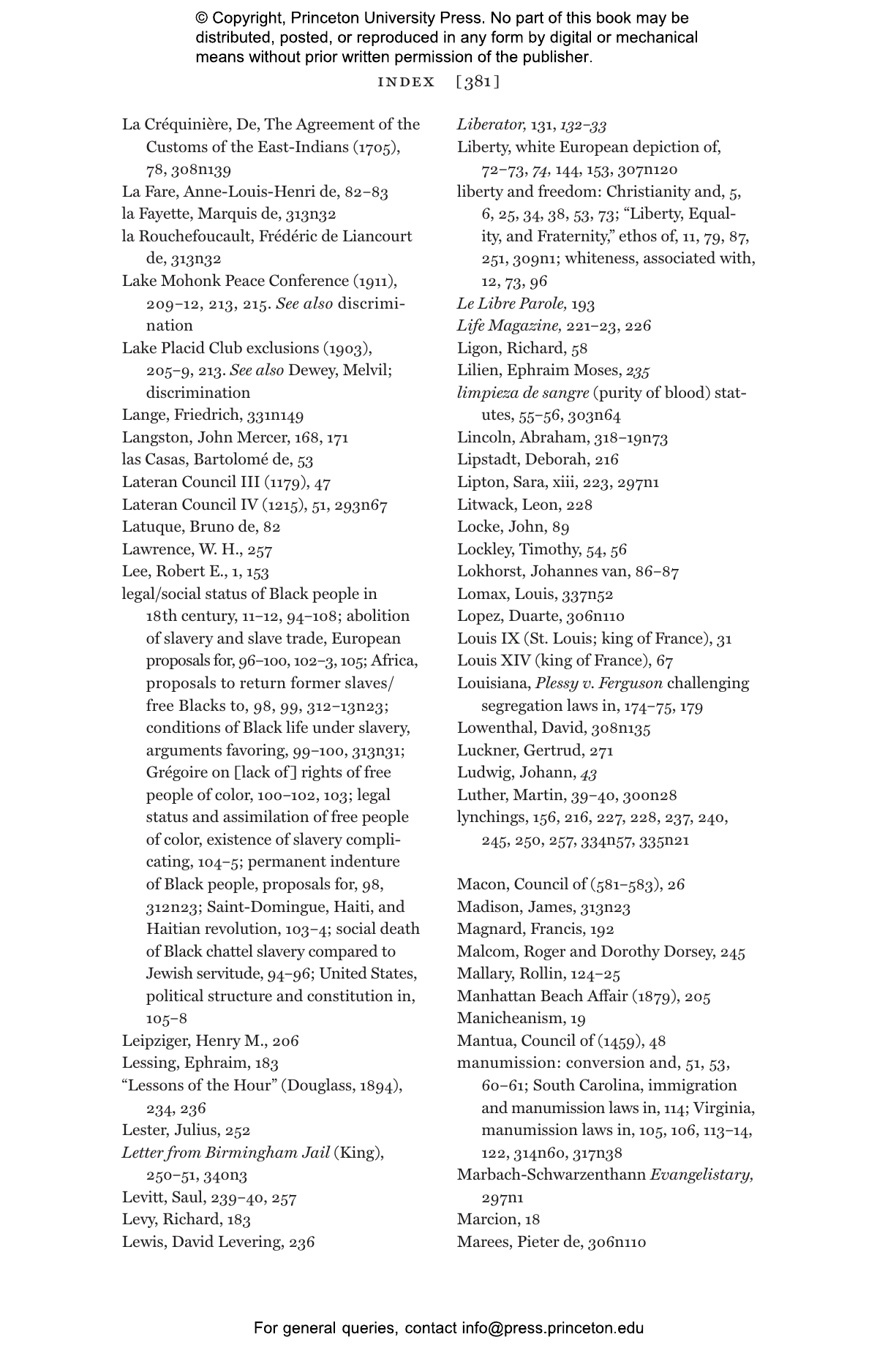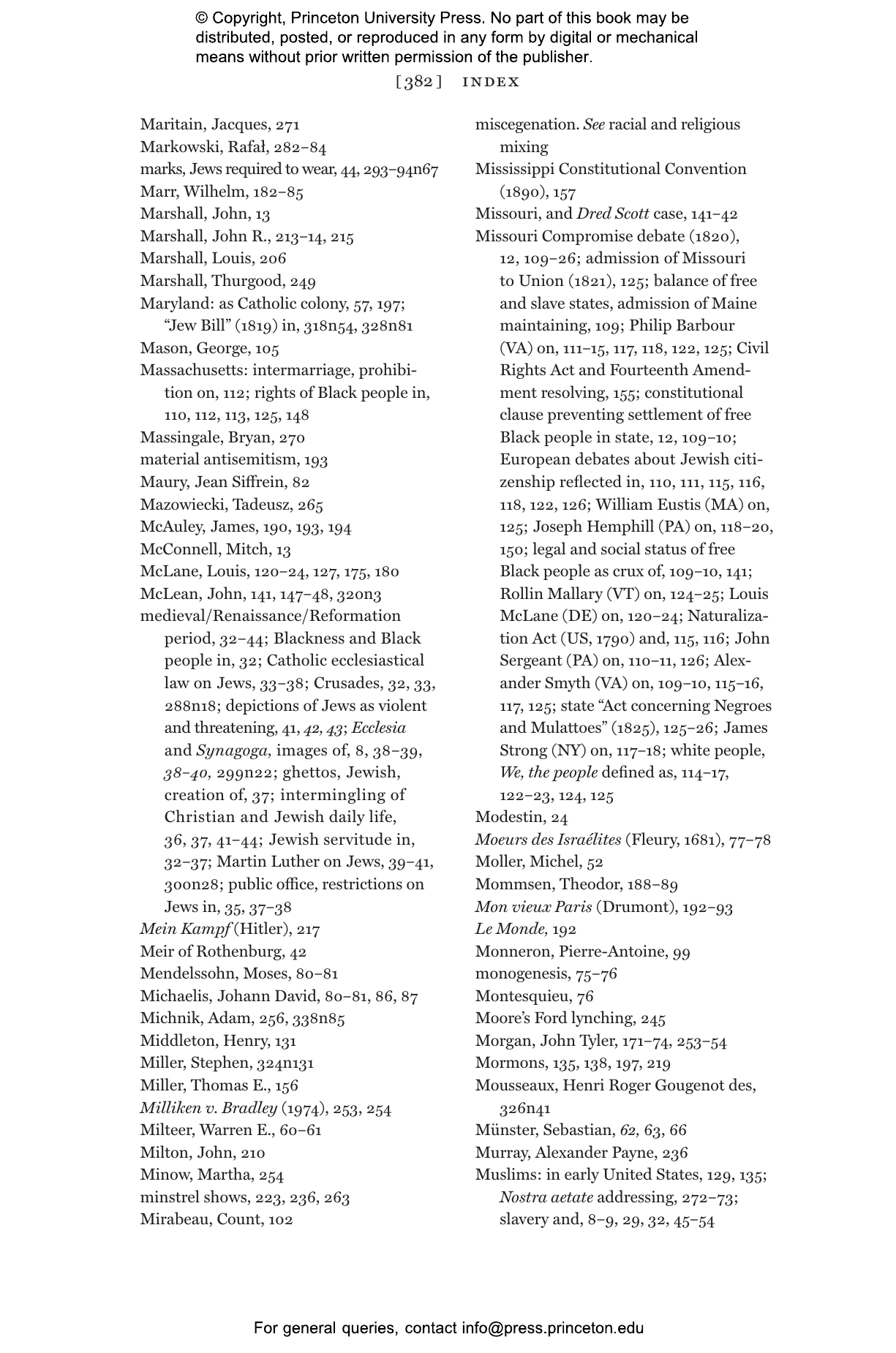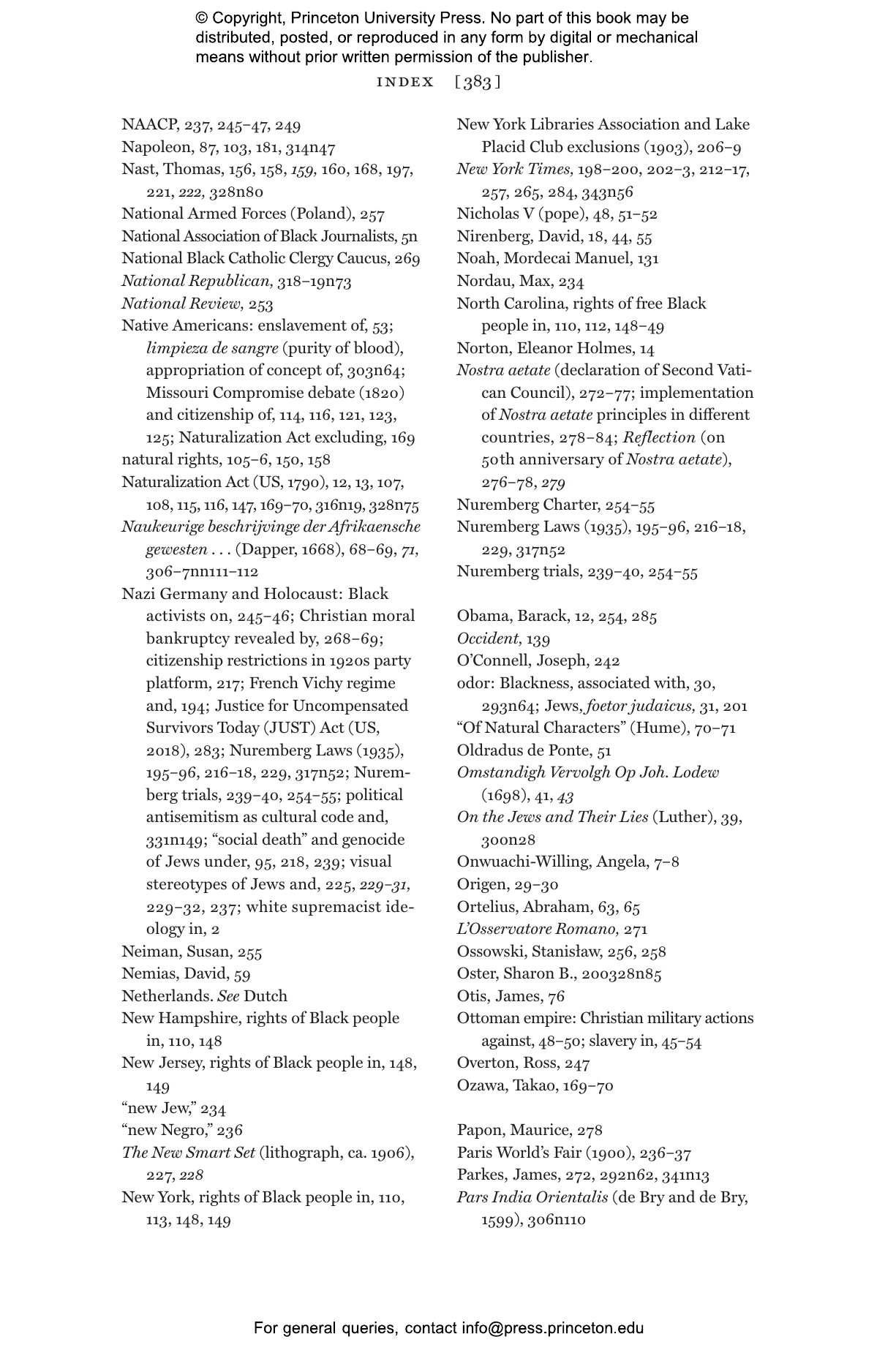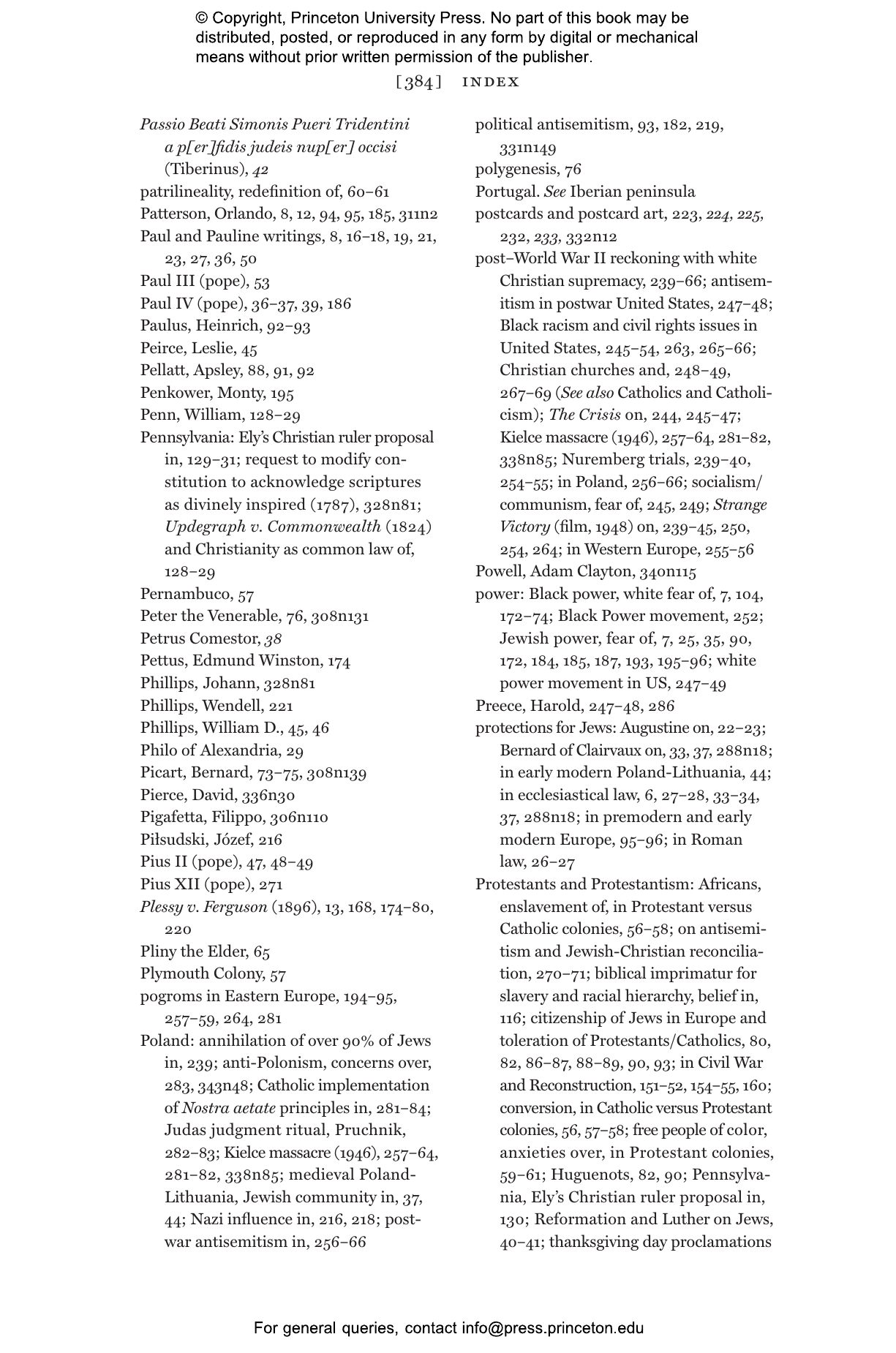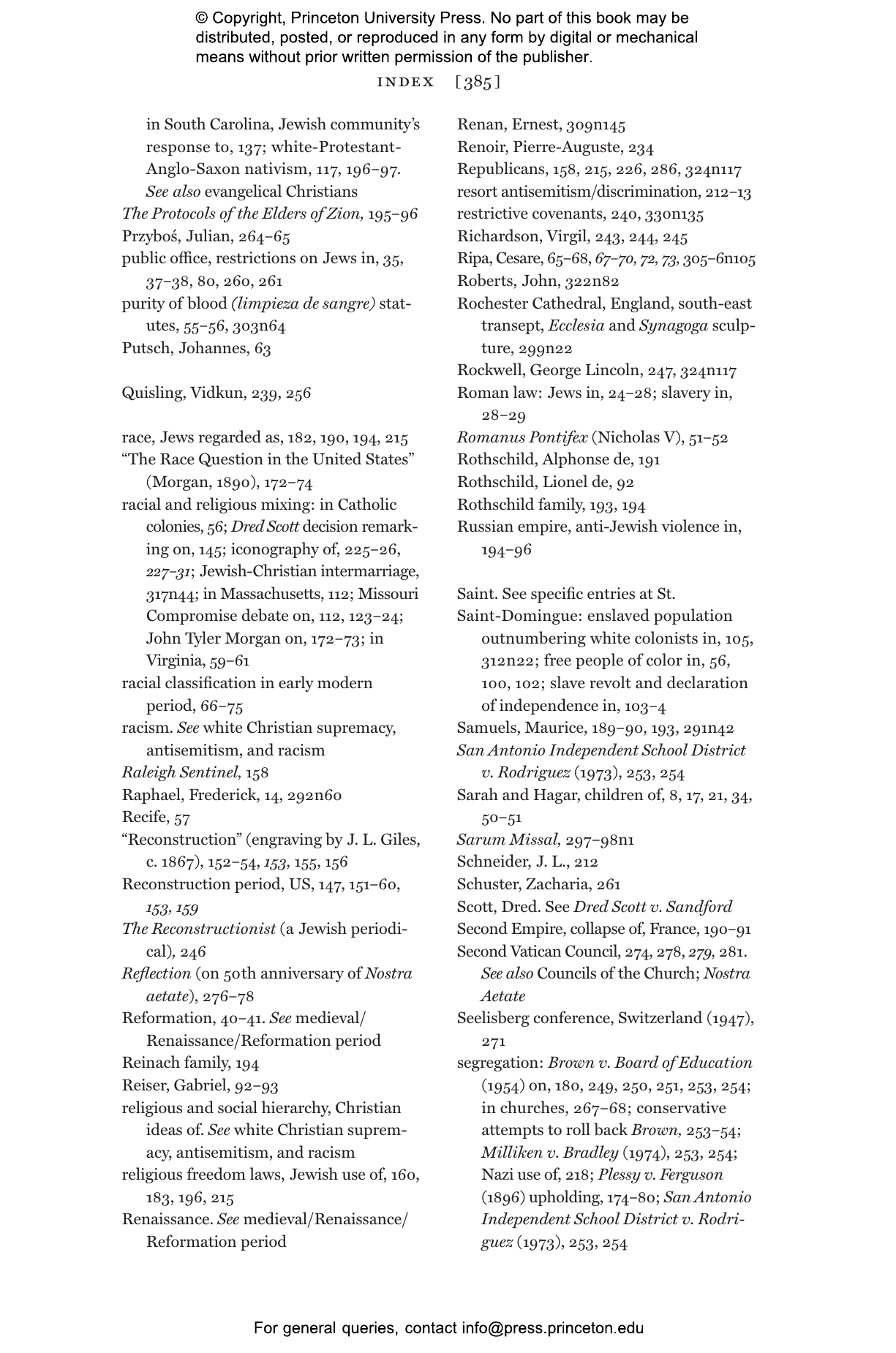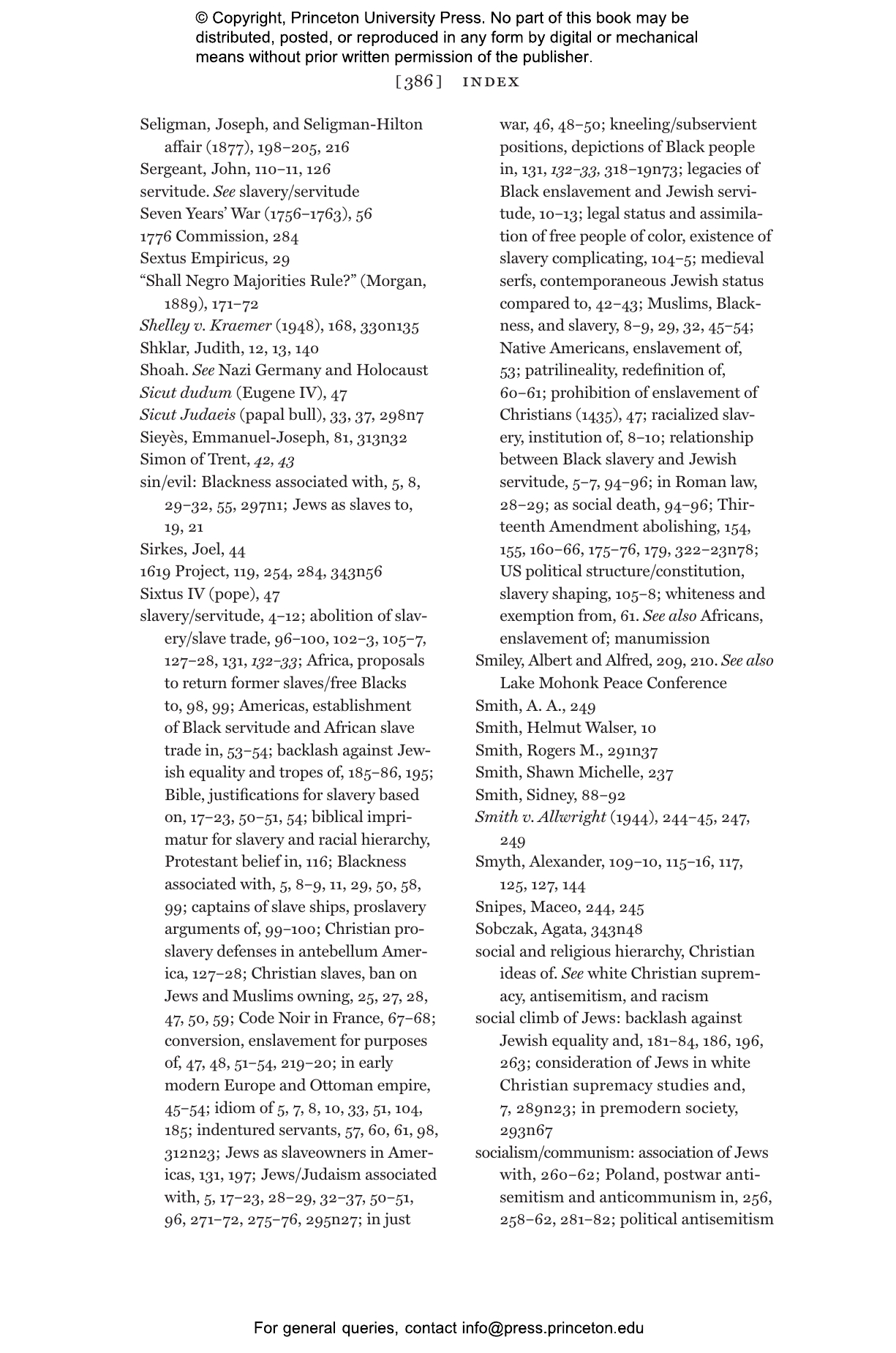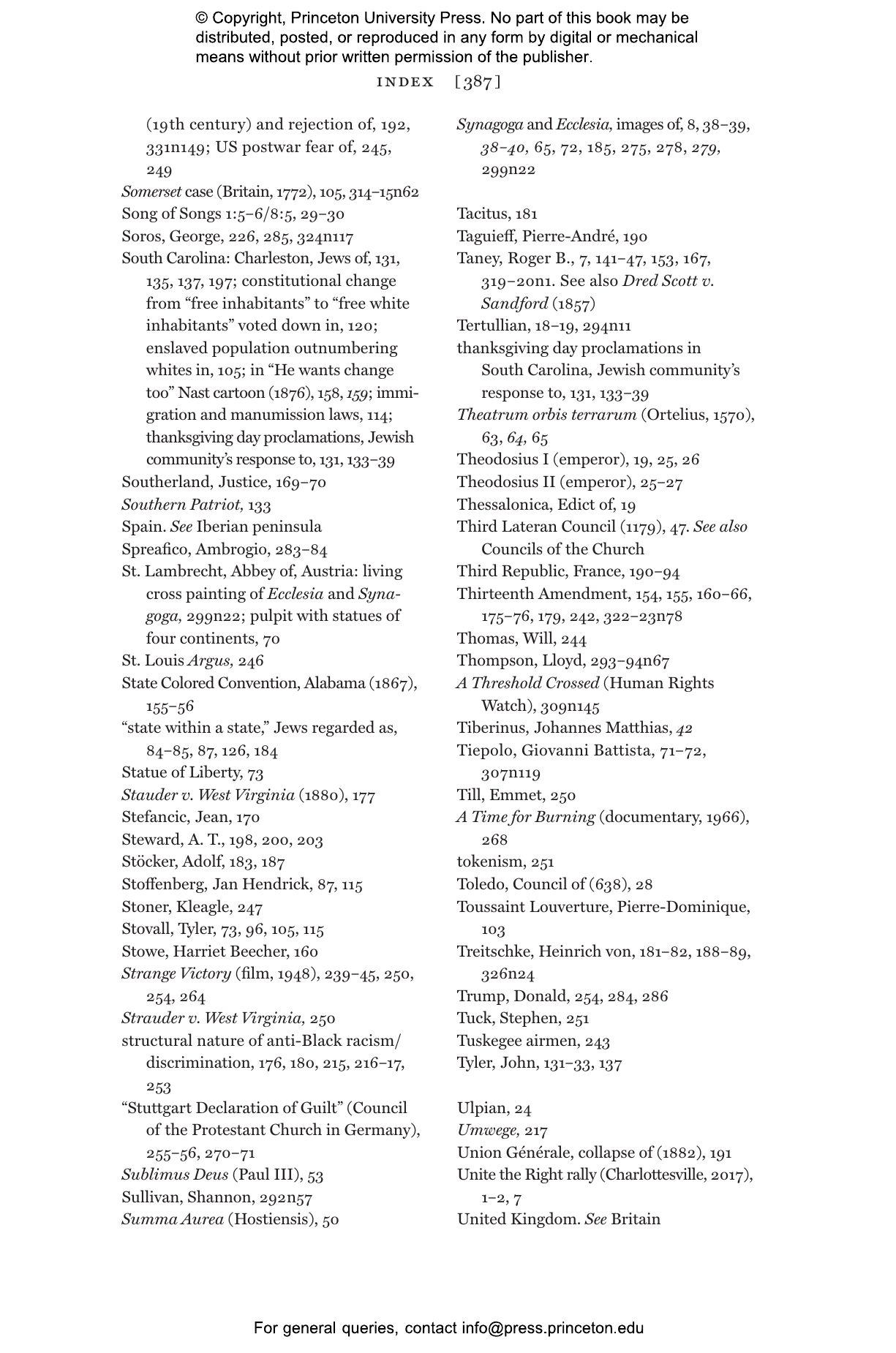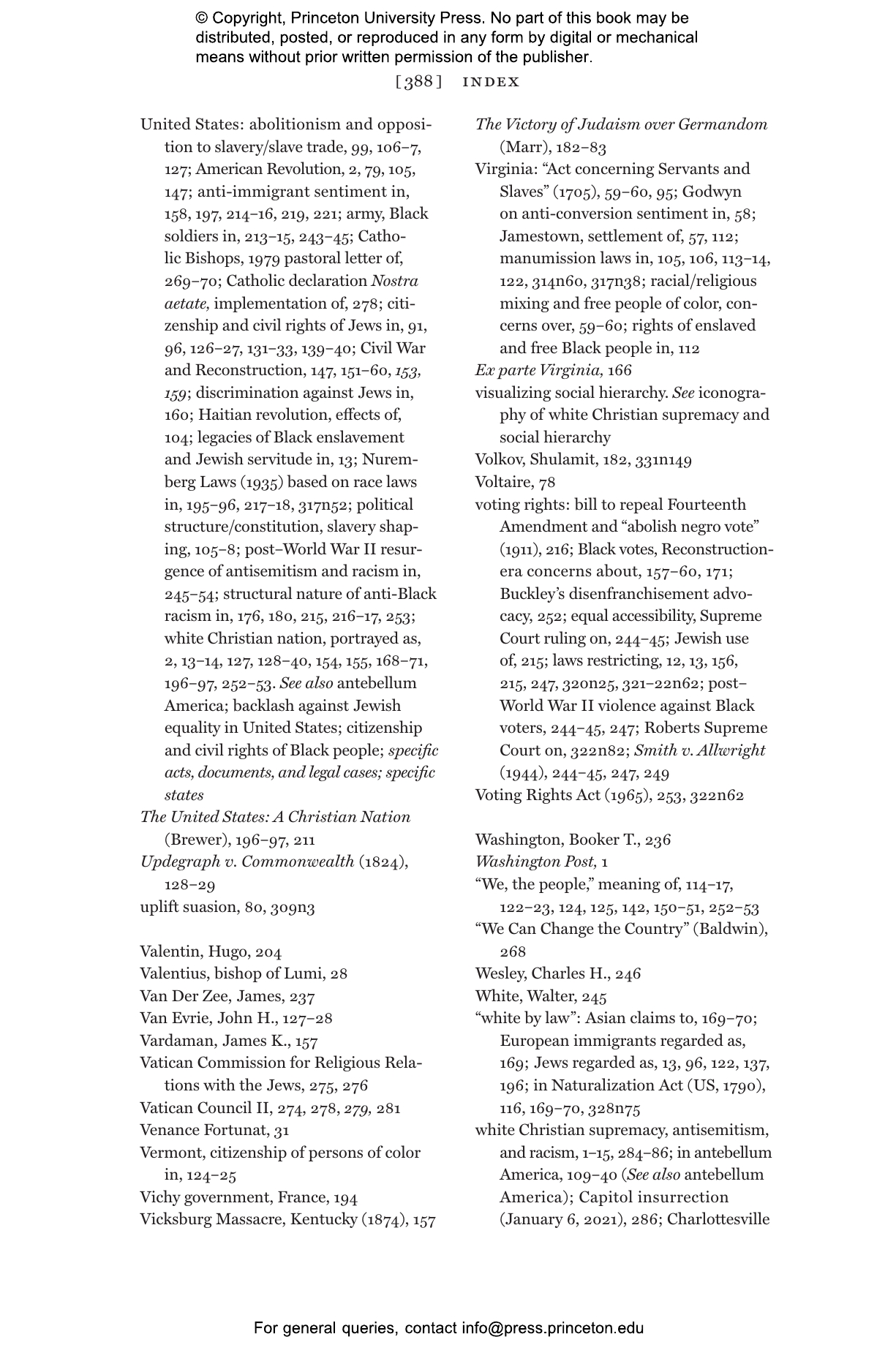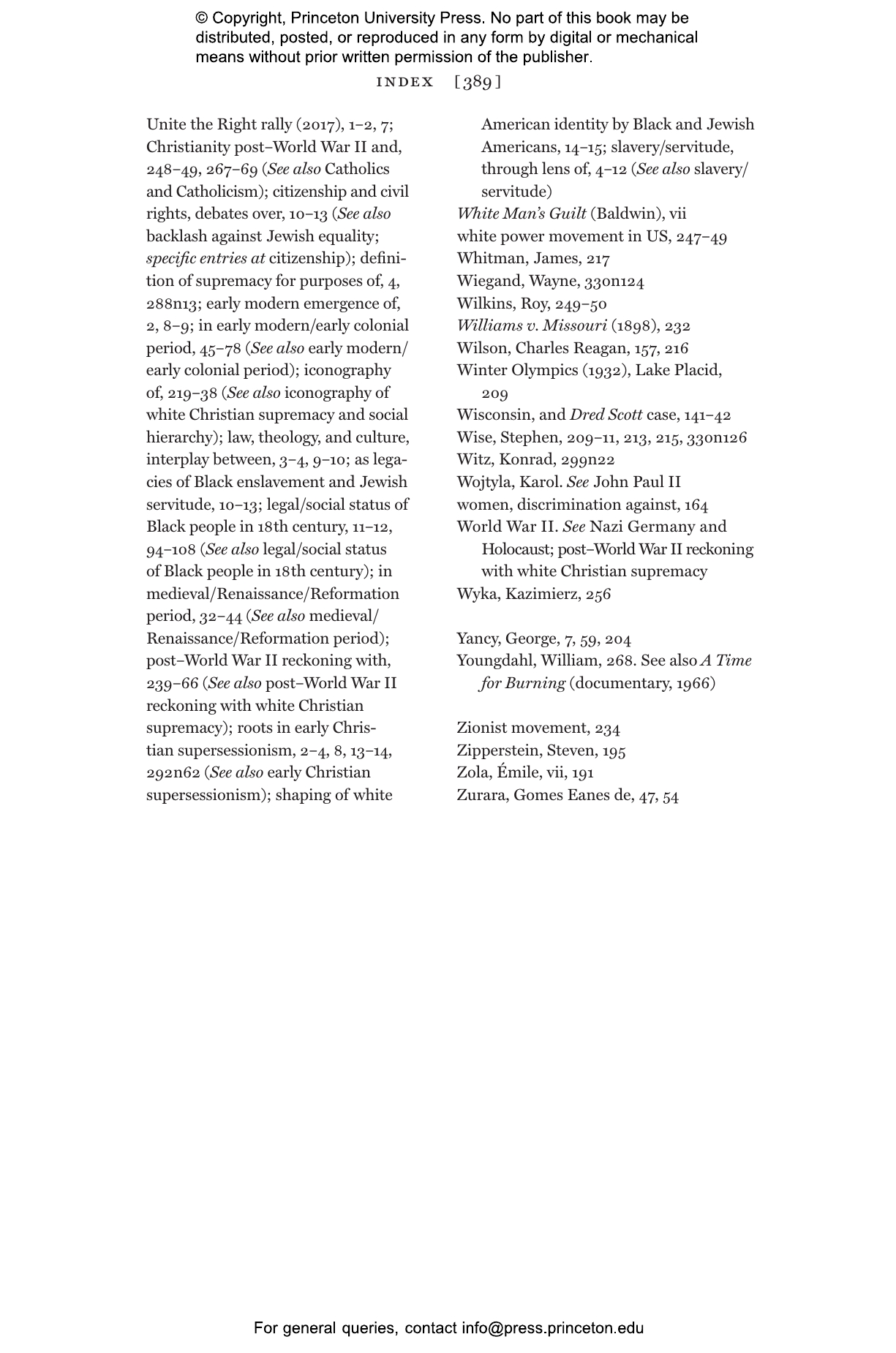Since the earliest days of Christianity, theologians expressed pervasive anxiety about Jews as equal members of society, and, with European expansion in the early modern period, that anxiety extended to people of color. This troubling legacy still haunts us today. Christian Supremacy demonstrates how theological and legal frameworks created by the church centuries ago laid the seeds of antisemitism and anti-Black racism and reveals why Christian identity lies at the heart of the world’s violent white supremacy movements.
In a powerful historical narrative spanning nearly two millennia, Magda Teter describes how Christian theology of late antiquity cast Jews as “children born to slavery,” and how the supposed theological inferiority of Jews became inscribed into law, creating tangible structures that reinforced a sense of Christian domination and superiority. With the dawn of European colonialism, a distinct brand of European Christian supremacy found expression in the legally sanctioned enslavement and exploitation of people of color, later taking the form of white Christian supremacy in the New World.
Drawing on a wealth of primary evidence ranging from the theological and legal to the philosophical and artistic, Christian Supremacy is a profound reckoning with history that traces the roots of the modern rejection of Jewish and Black equality to an enduring Christian heritage of exclusion, intolerance, and persecution.
"[Teter] draws incisive parallels between disparate time periods and parts of the world and fruitfully interweaves legal, religious, cultural, and political analysis. It’s a noteworthy look at the origins and mechanics of oppression."—Publishers Weekly
"In this accessible and comprehensive study, Teter traces the twisted historic origins of white supremacy and its centuries of suppressing the civil and political rights of Jewish individuals and people of color. . . . A disturbing read at times, but an important one, especially given the growth of the white supremacy movement in this era."—Library Journal
"Meticulous and nuanced."—Howard Cooper, Jewish Chronicle
"Intriguing. . . . A timely, brave intellectual stand."—Nathan Ron, European Legacy
"Steeped in primary sources, Christian Supremacy is informative and provocative."—Glenn C. Altschuler, Jerusalem Post
"Christian Supremacy is more than a deep history of European racism and the role of Christianity in perpetuating violence. It is an evocative call for Christians to closely examine our unconscious habits, our iconography, and the identities we proclaim. It is an invocation to recognize and remove the decay of centuries of hate before it once again becomes ‘a deadly social force.’"—Kathryn Julian, Christian Century
"An original, insightful contribution to the scholarship on the history of antisemitism and racism in America and Europe."—David Patterson, Journal of Church and State
"Christian Supremacy offers an occasion to reflect on the historical intersections between antisemitism and anti-Black racism not because they are the same but because they rhyme.... At a time when this allyship is so badly frayed, Teter’s book challenges us to think harder about what the legacies of Christian supremacy have bequeathed its victims."—Miri Rubin, New York Review of Books
“Christian Supremacy adds depth and nuance to today’s very important public debates about the origins and nature of racism and antisemitism and, most importantly, shows how the two have been linked over time. Teter looks into the deep roots of these two forms of hatred and locates them within the history of Christian teachings and white domination, providing a useful framework for understanding the struggle against these two different forms of hate as a common struggle. This is a valuable book for a public in real need of new tools for understanding some of our era’s most challenging structural problems.”—Lisa Moses Leff, author of The Archive Thief: The Man Who Salvaged French Jewish History in the Wake of the Holocaust
“Christian Supremacy is a provocative piece of scholarship that uncovers the misunderstood (and/or generally ignored) relationship between anti-Black racism and antisemitism. Moving seamlessly between biblical exegesis, legal history, and the twin histories of race and colonization, Teter has managed to capture the essence of two separate yet very much interrelated practices of dehumanization.”—Andrew S. Curran, coeditor of Who’s Black and Why? A Hidden Chapter from the Eighteenth-Century Invention of Race


